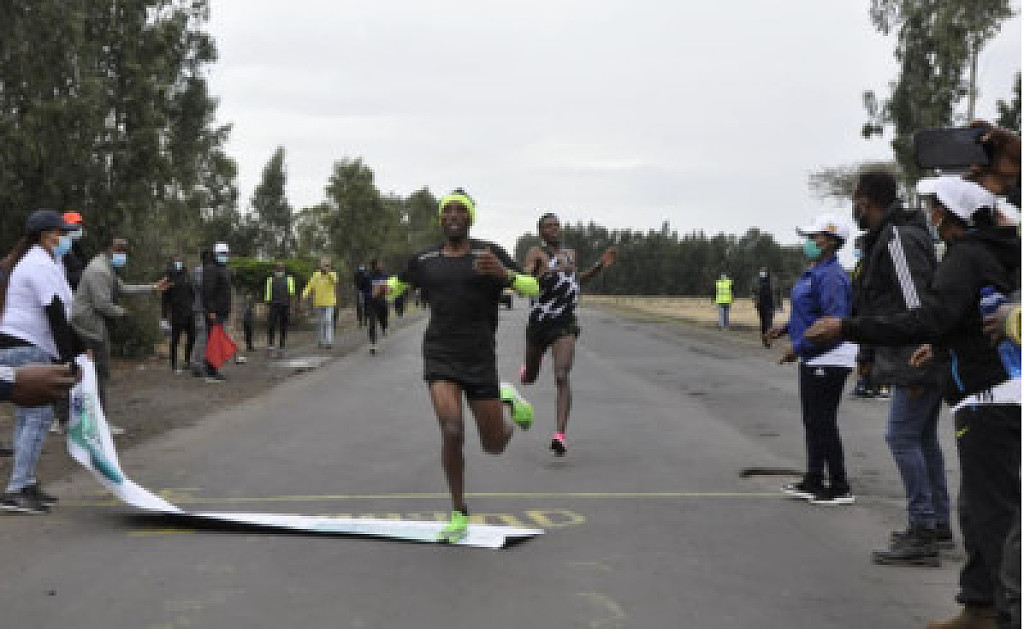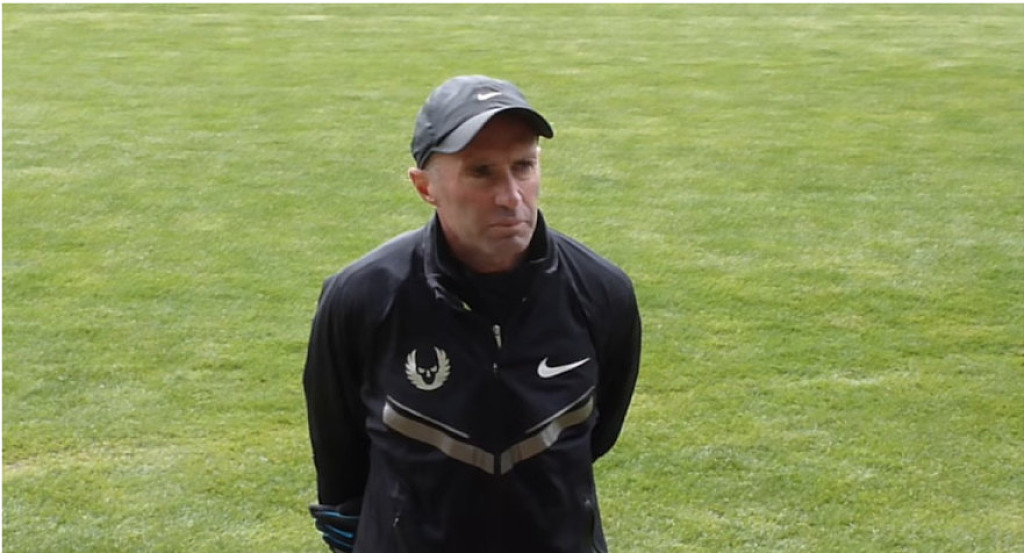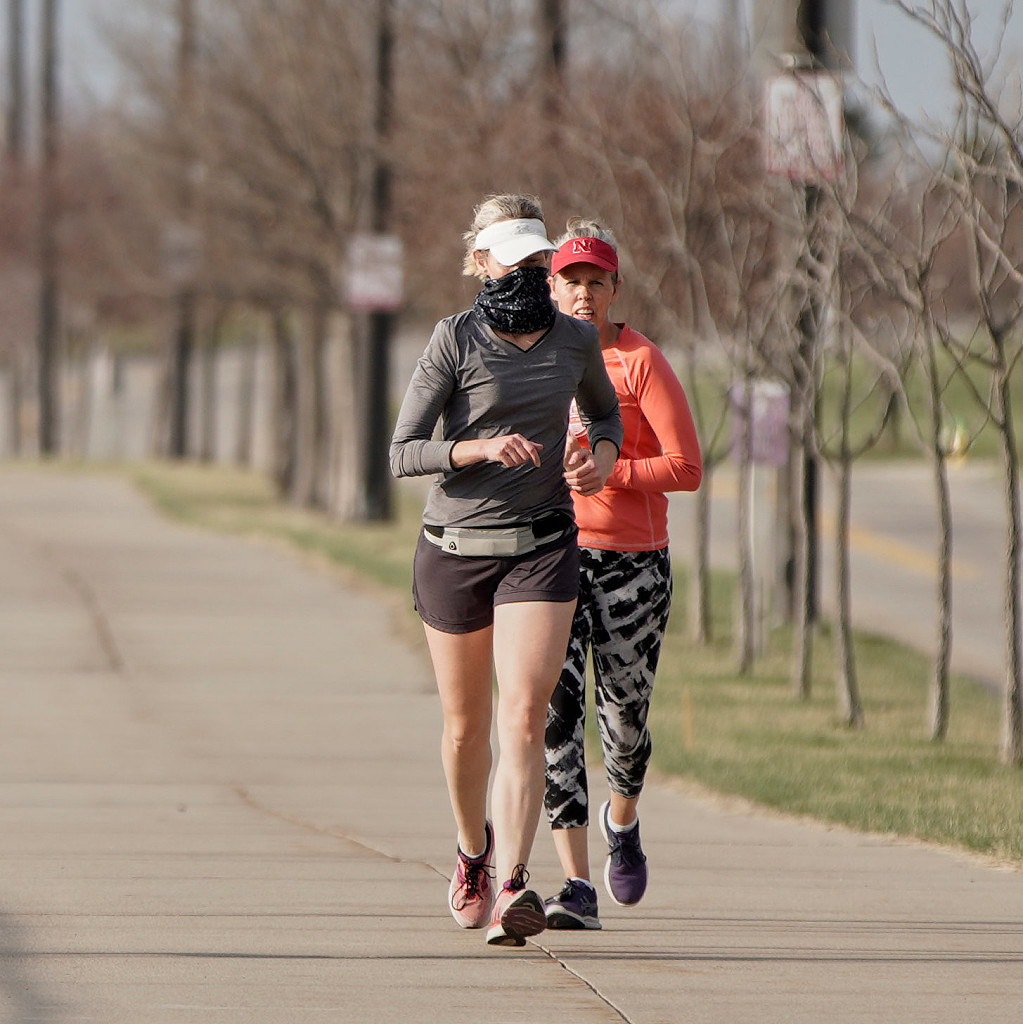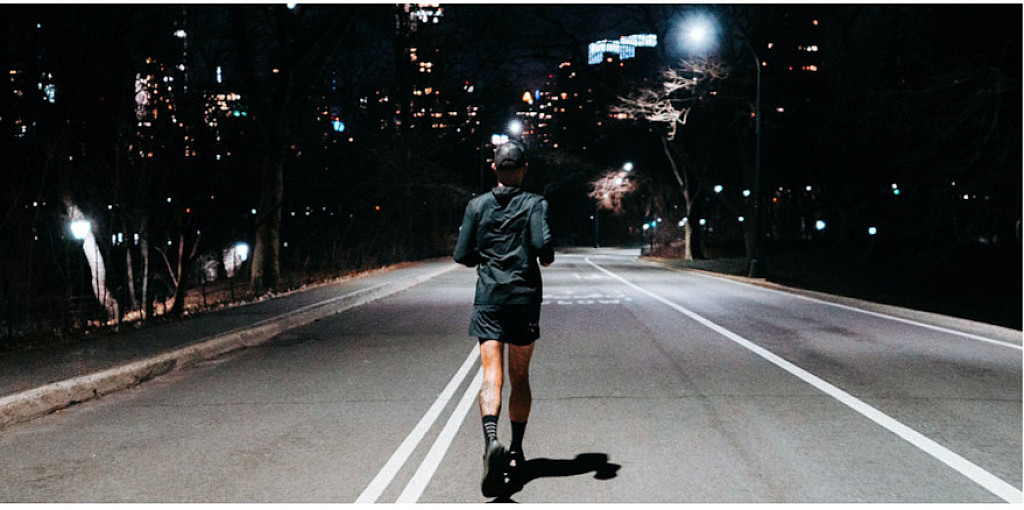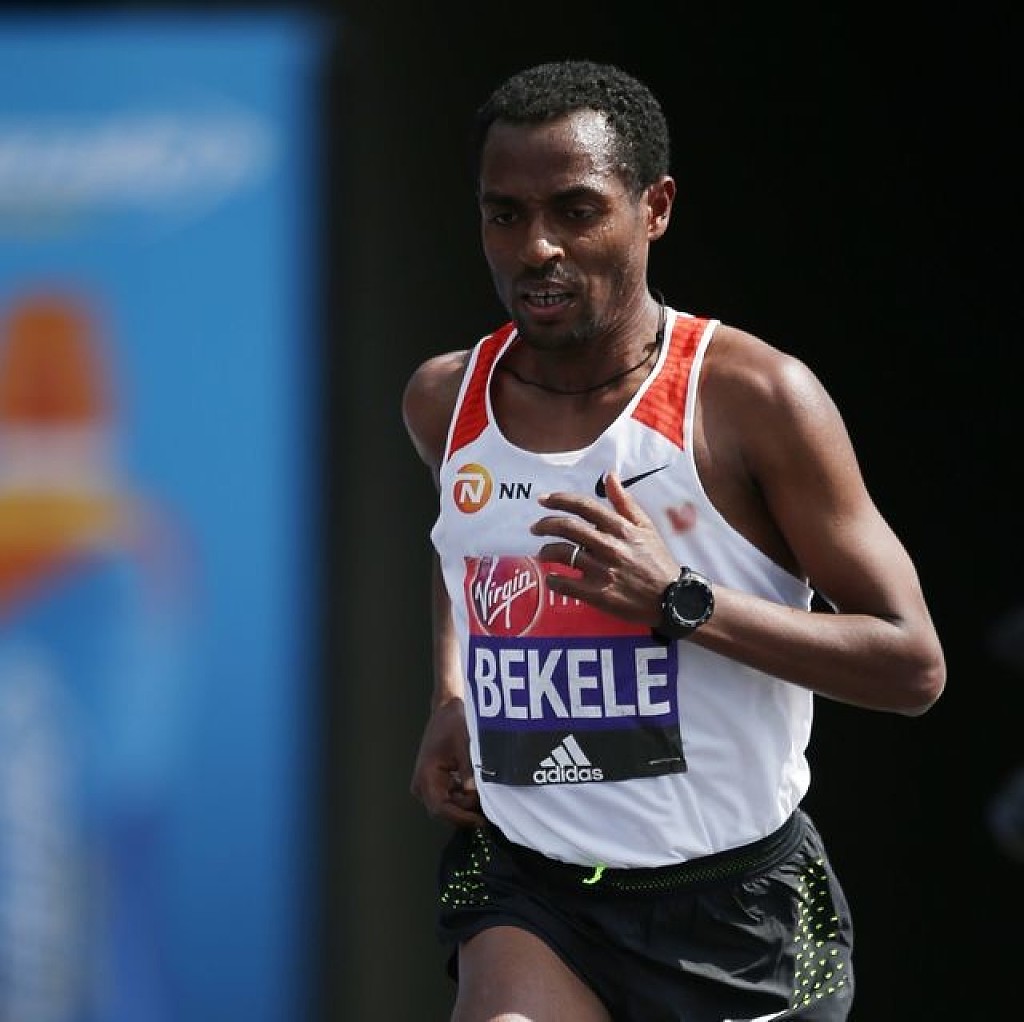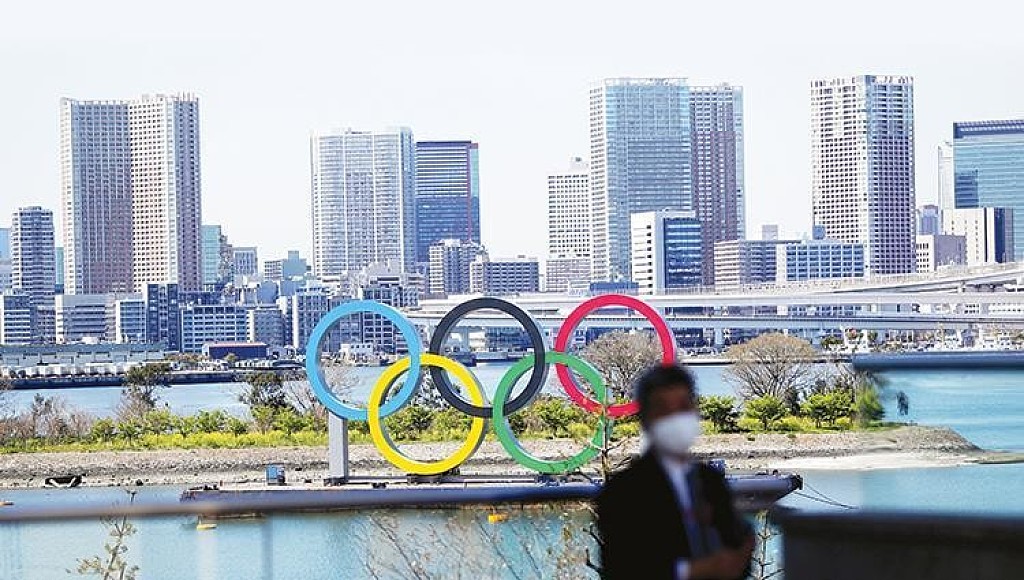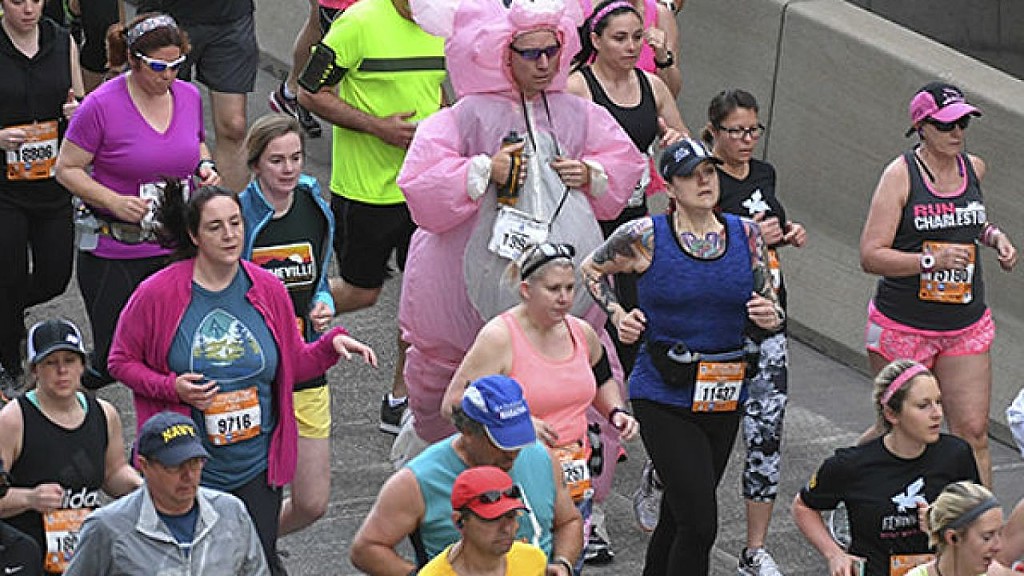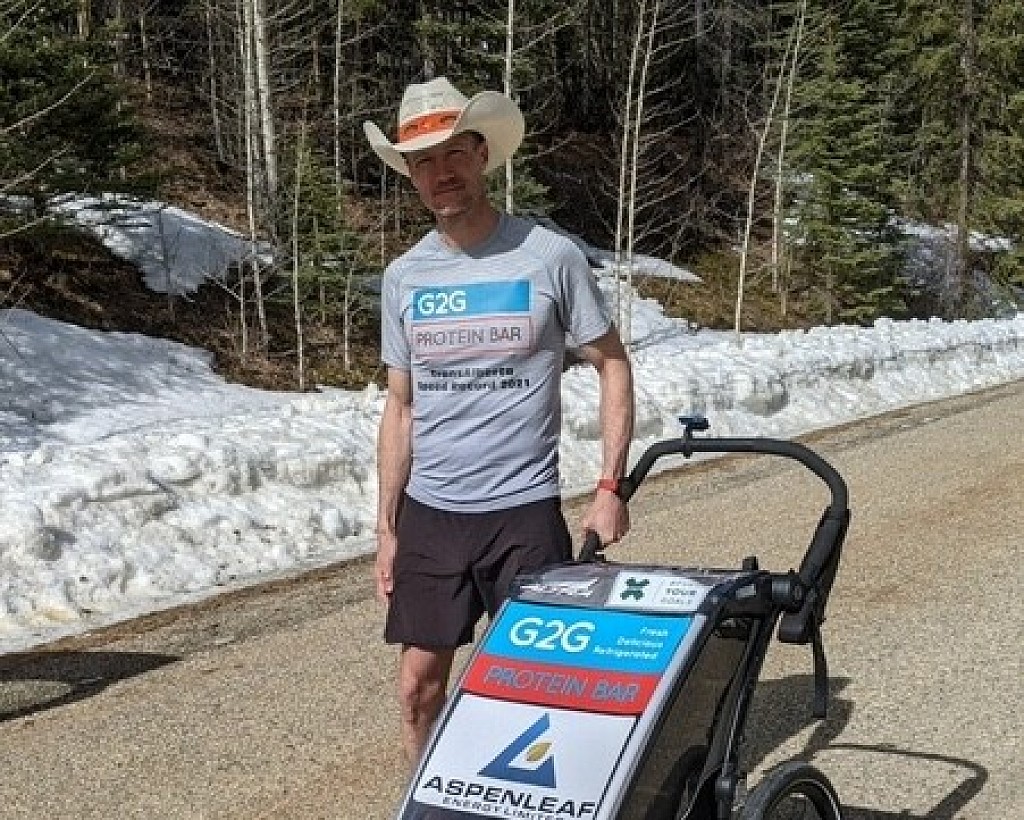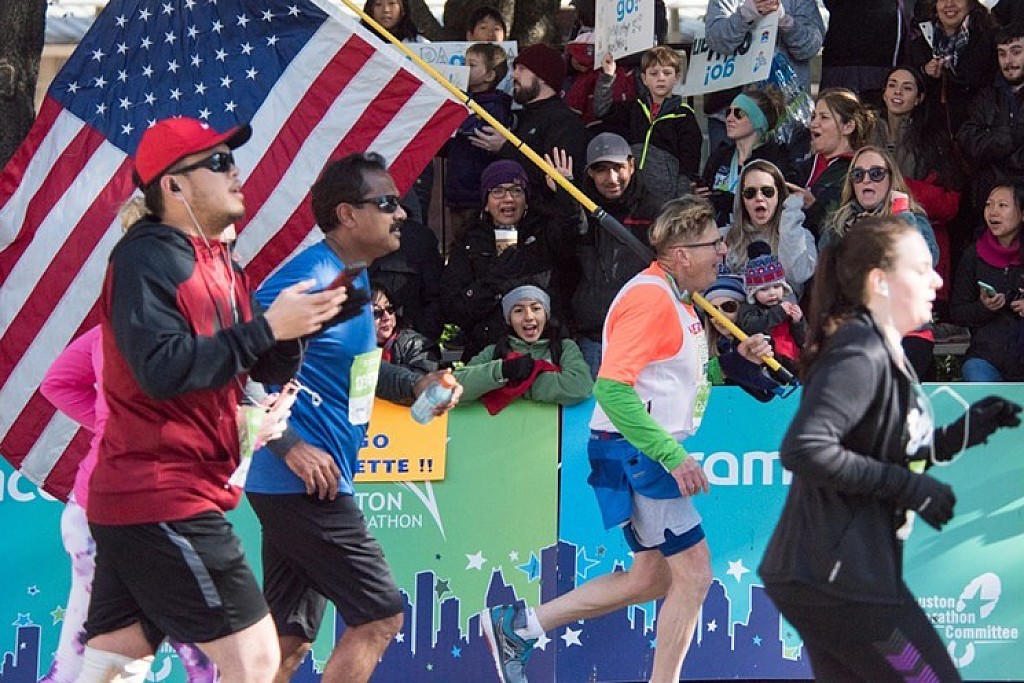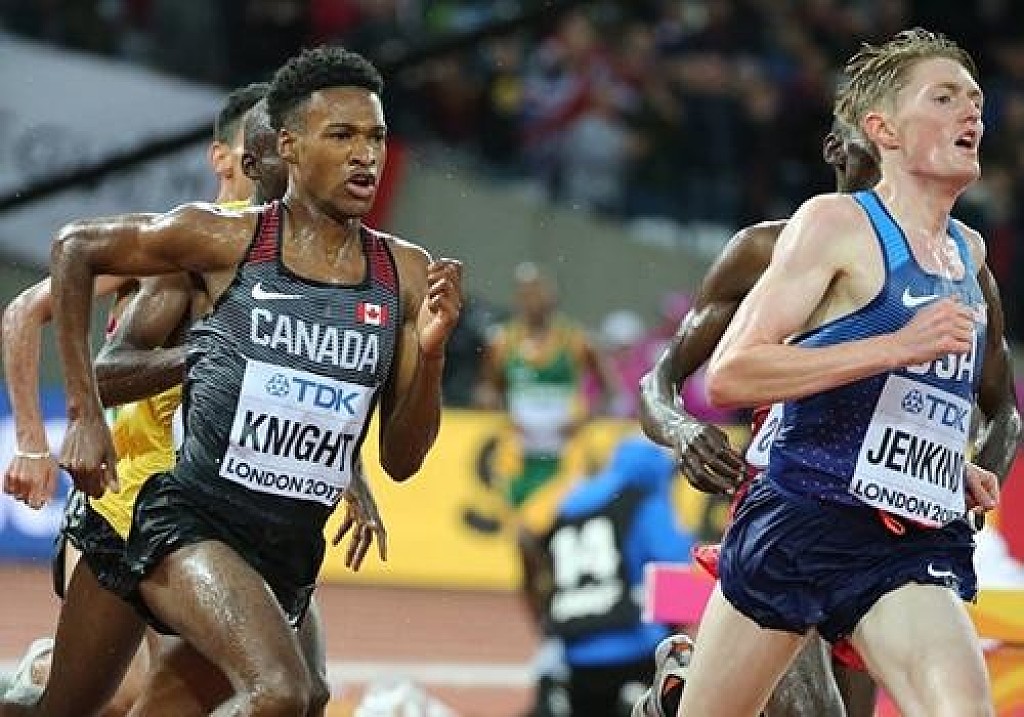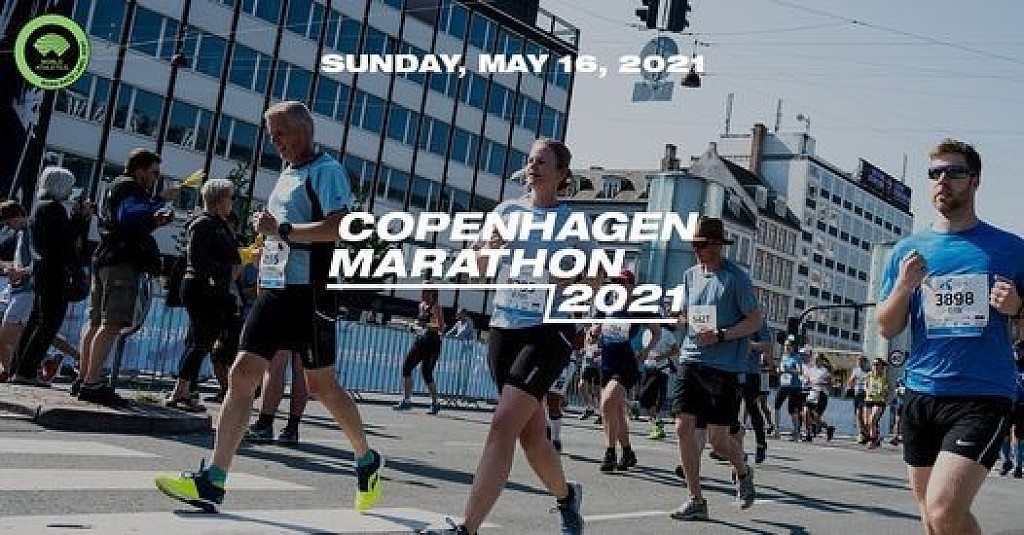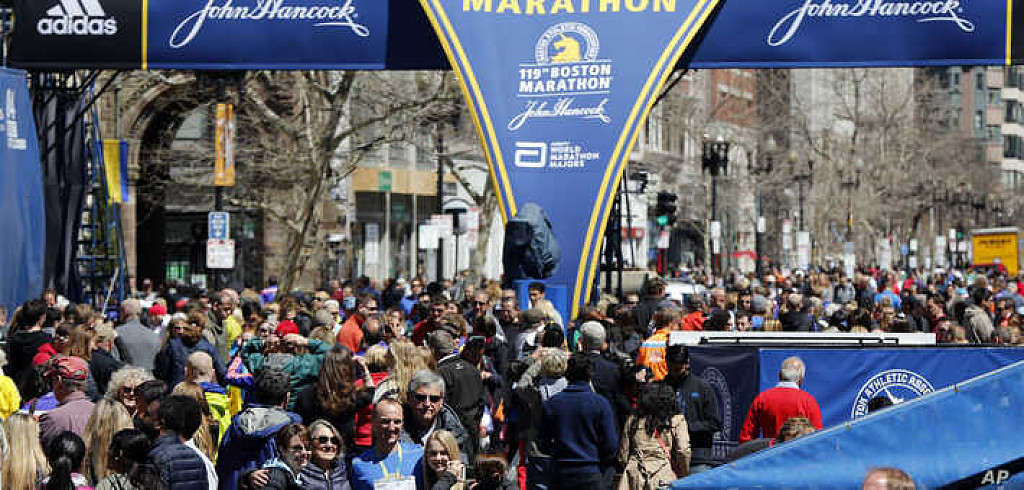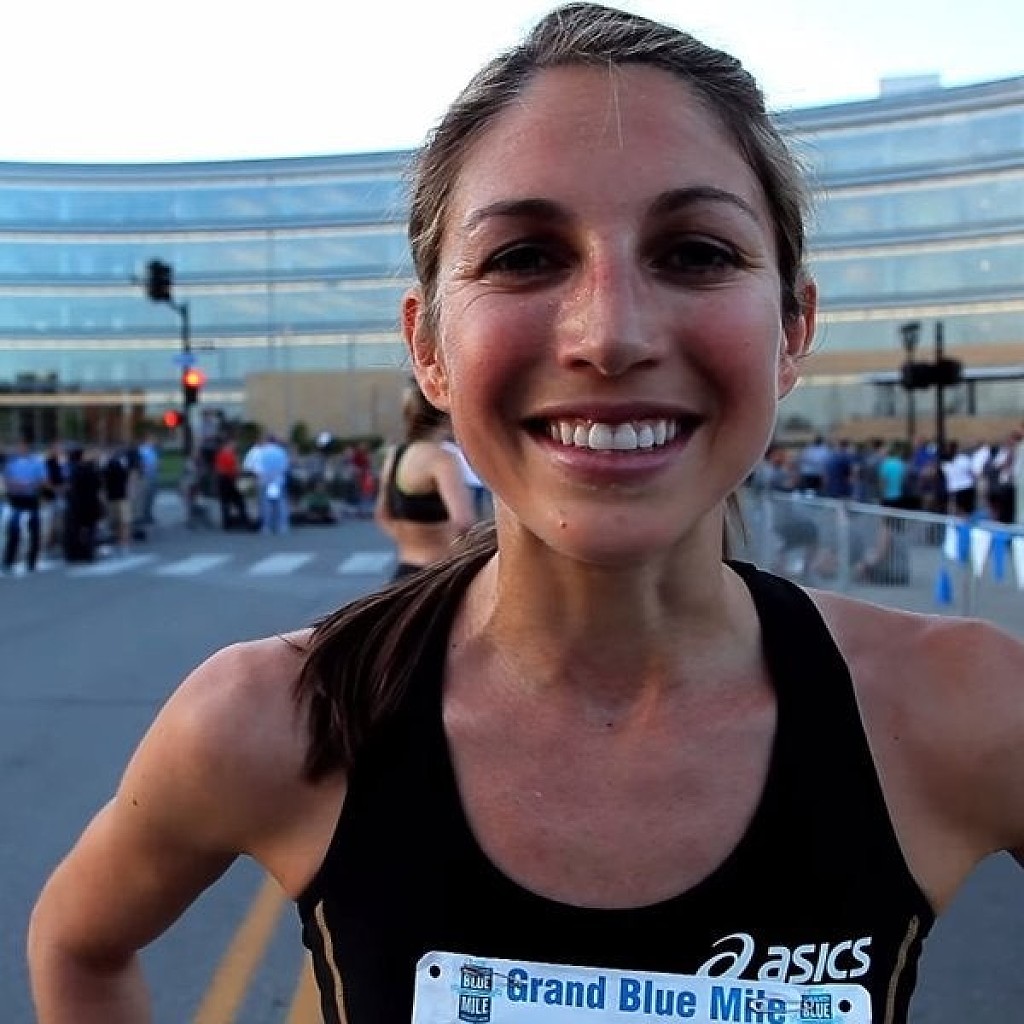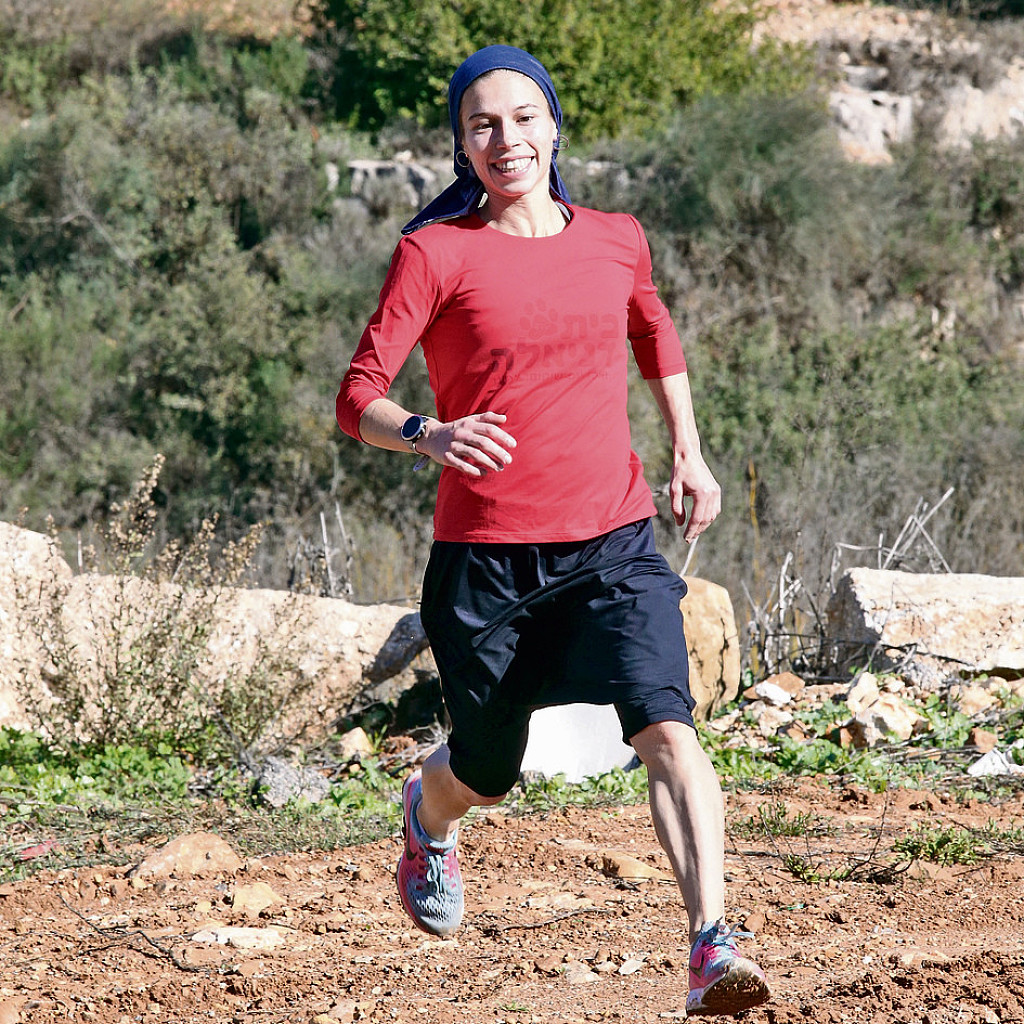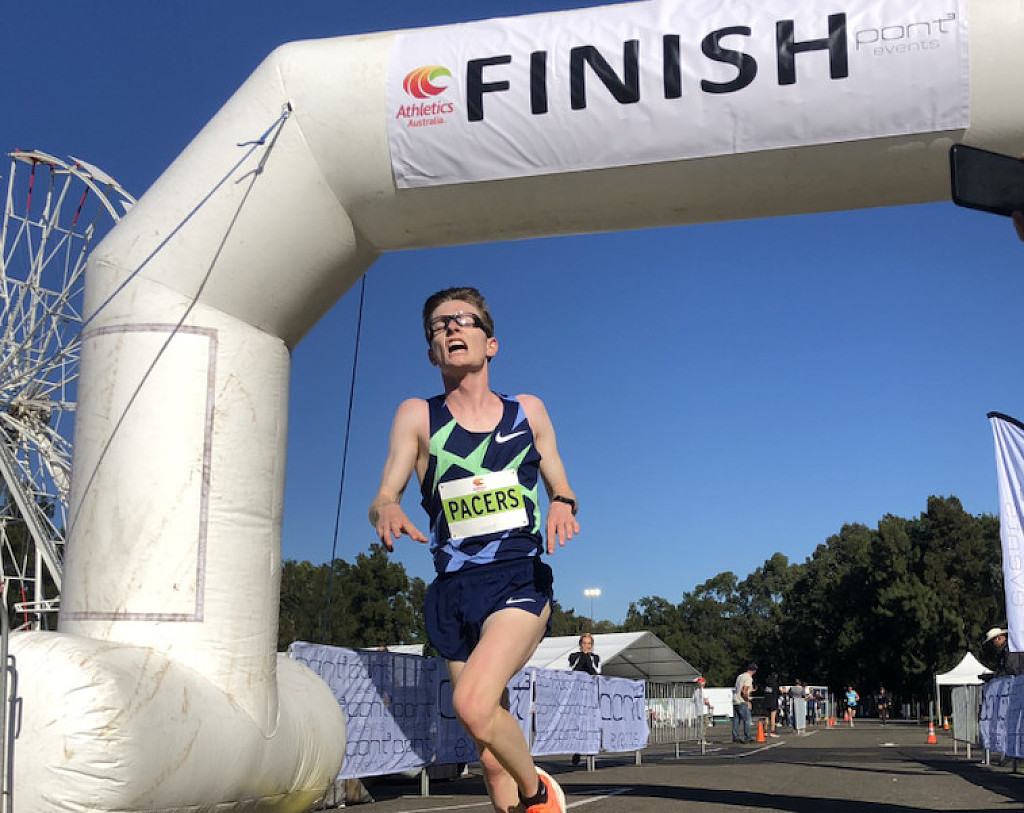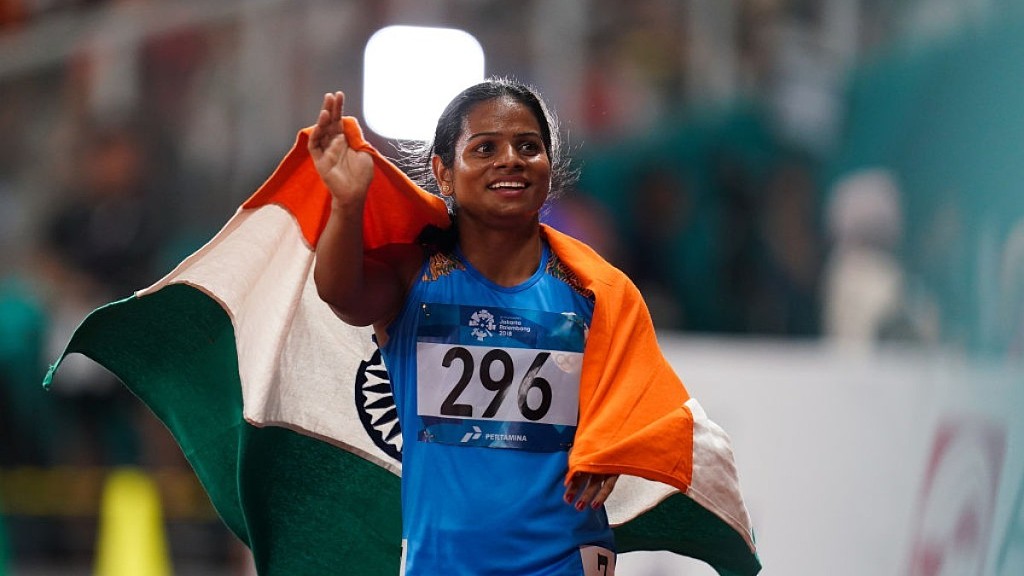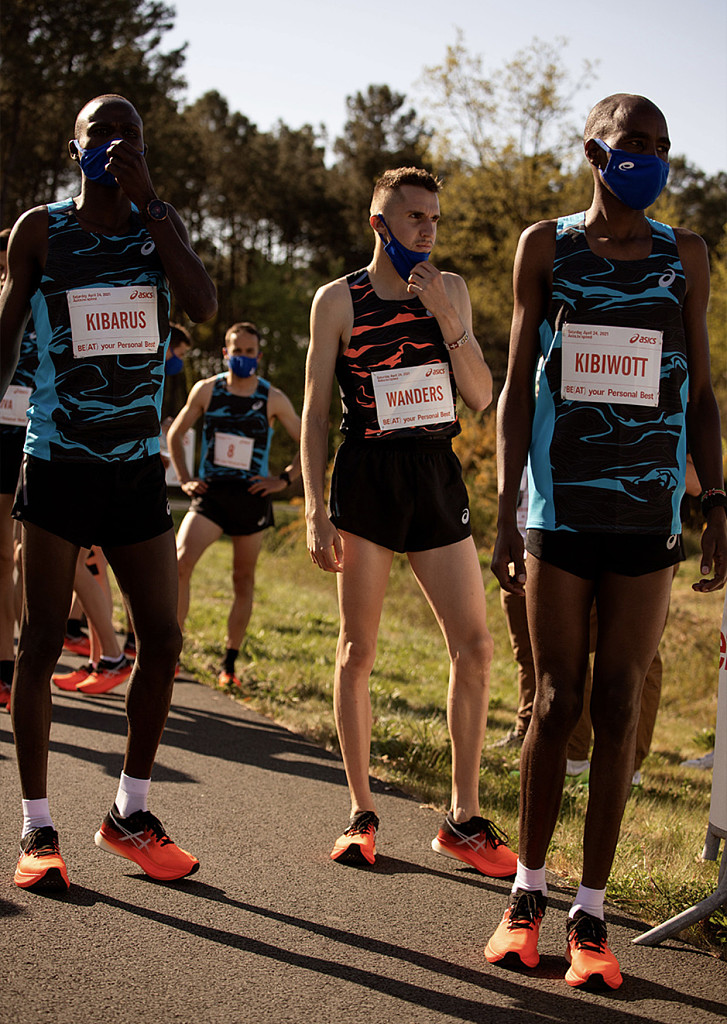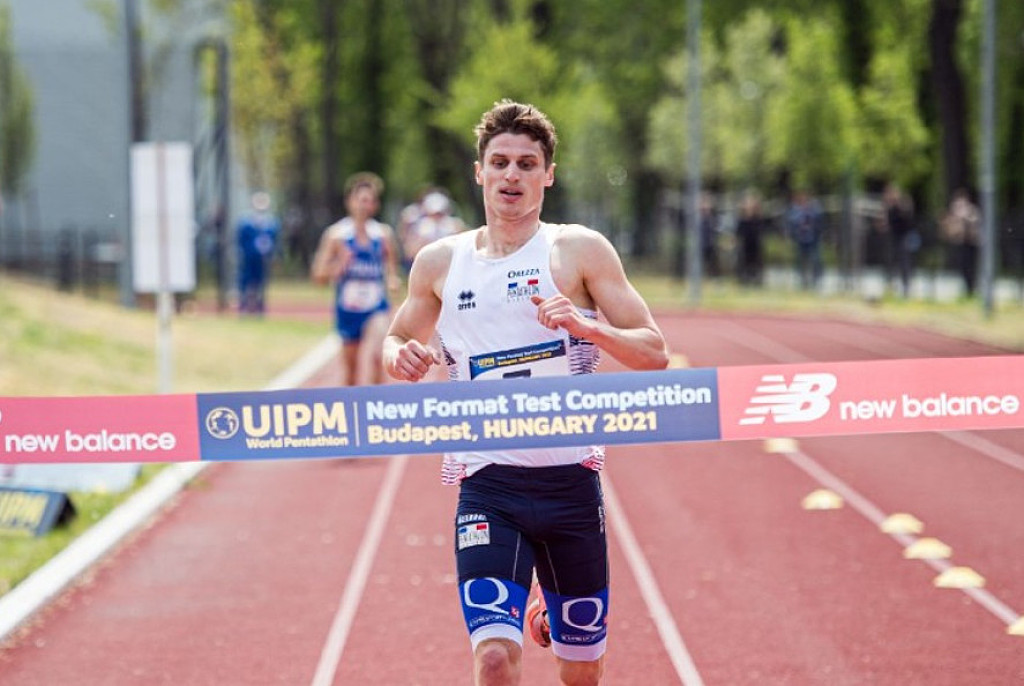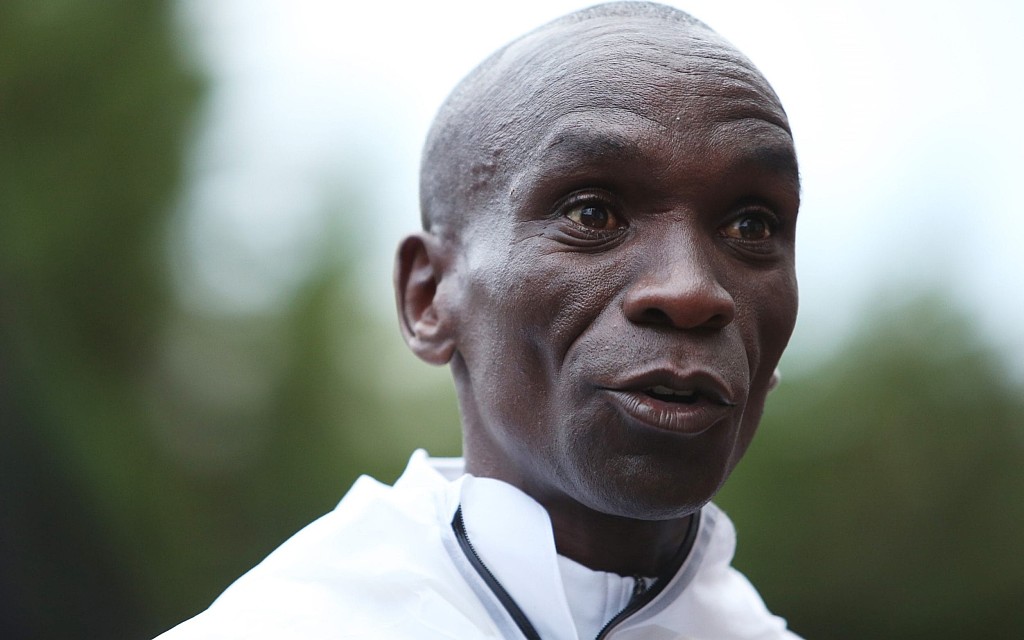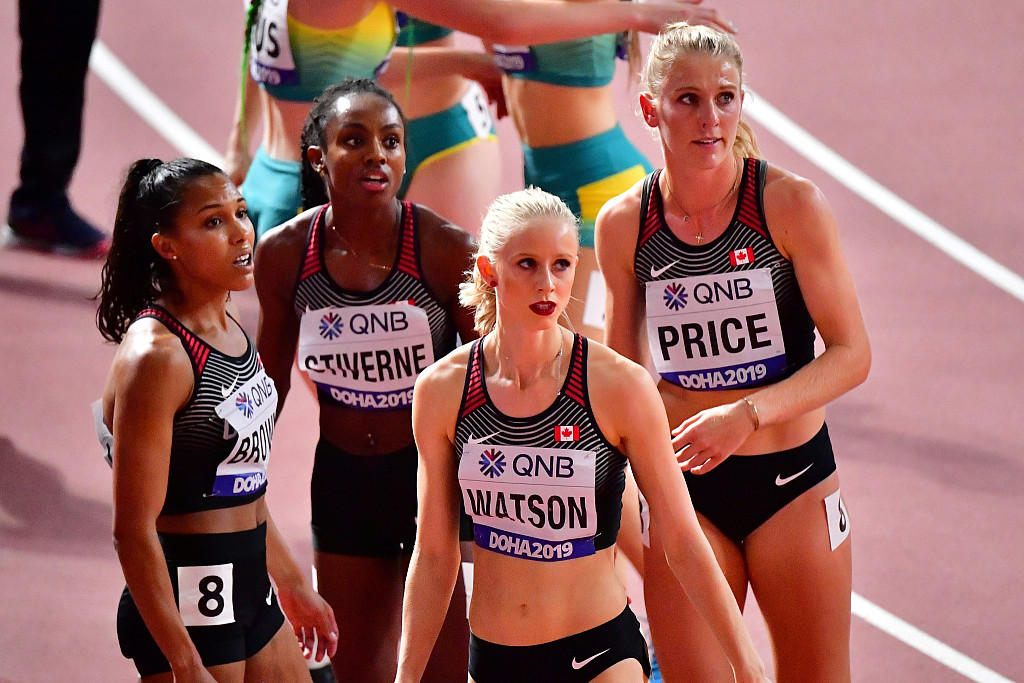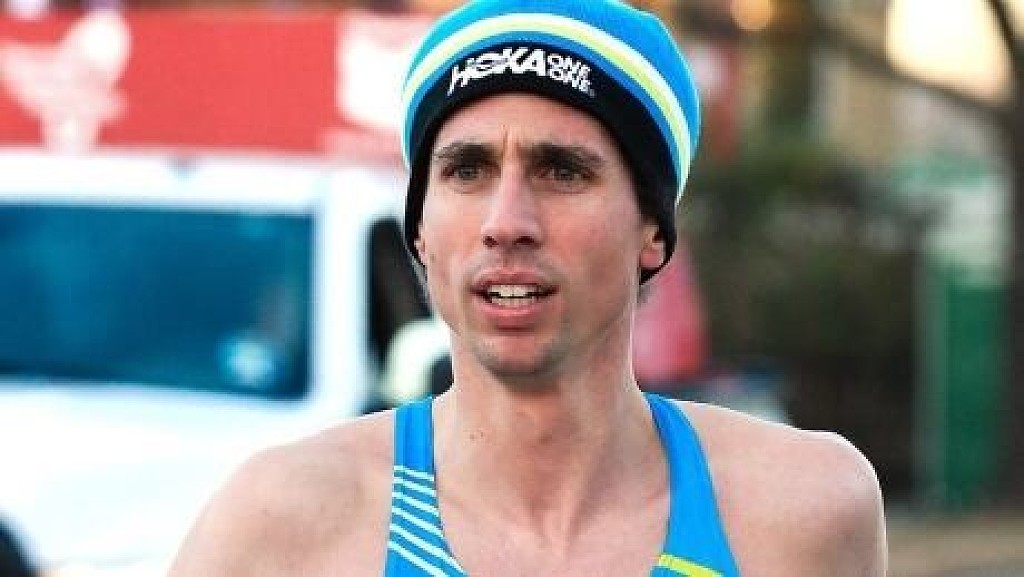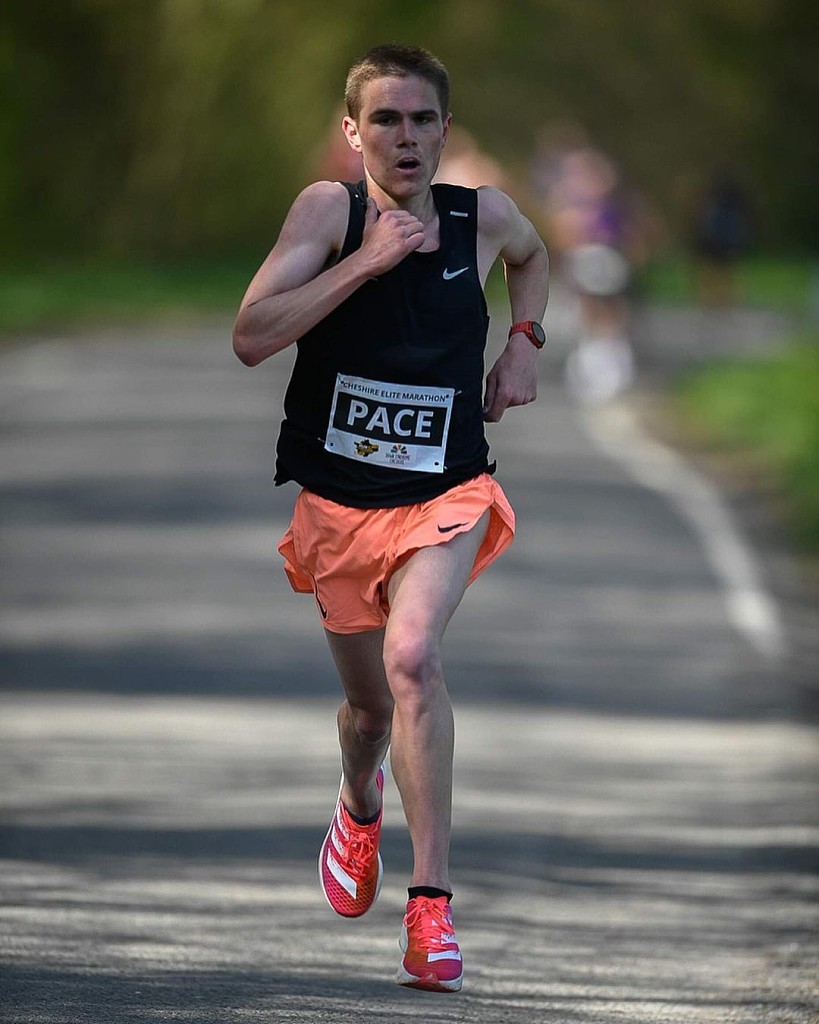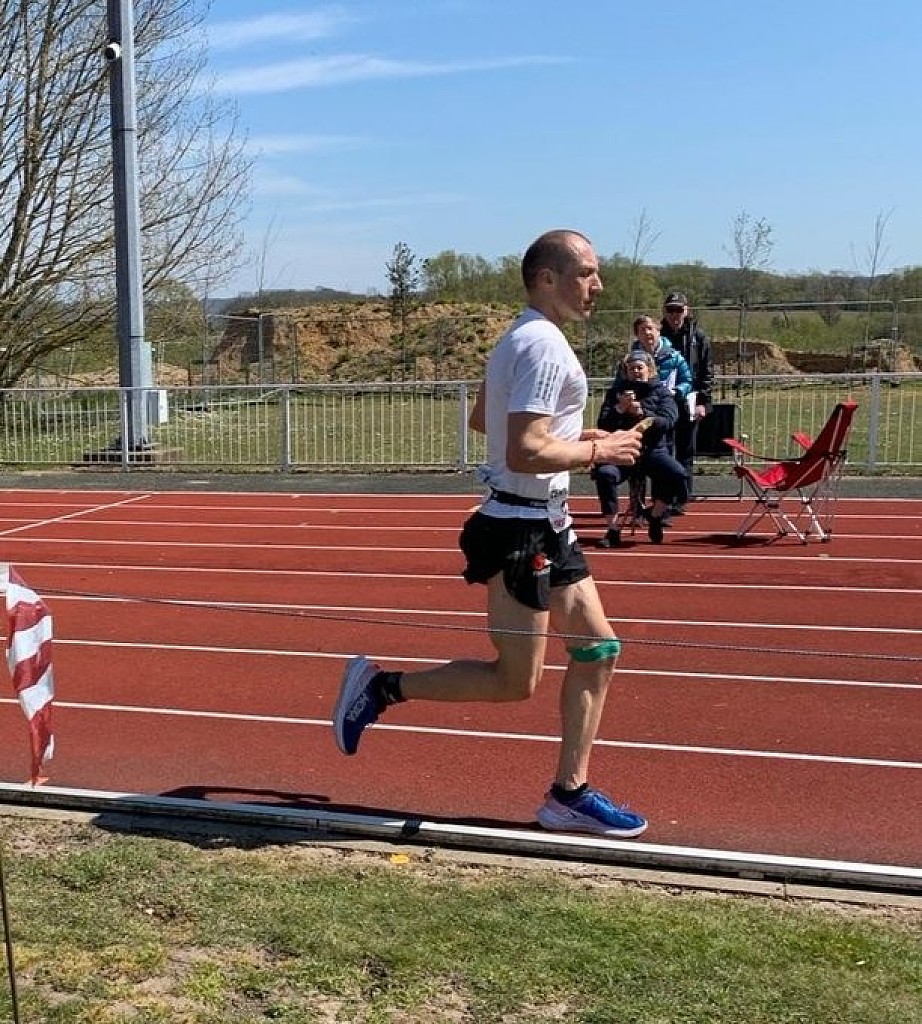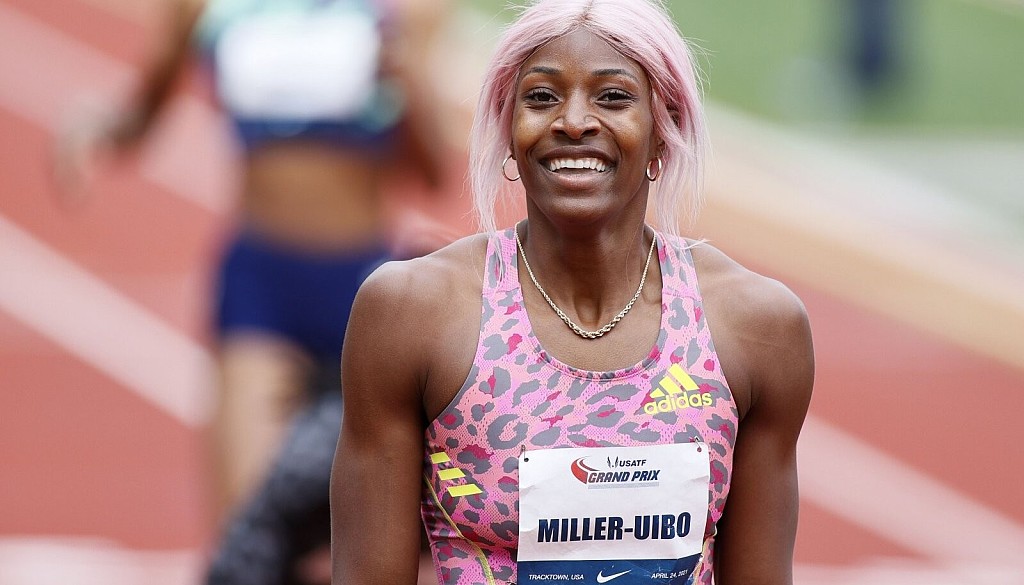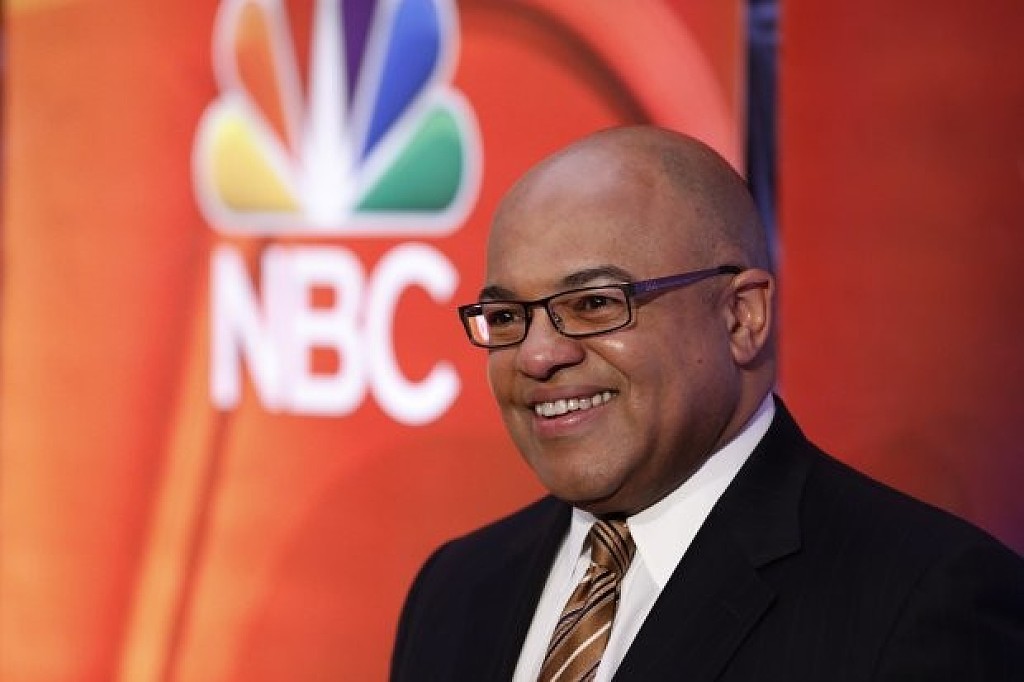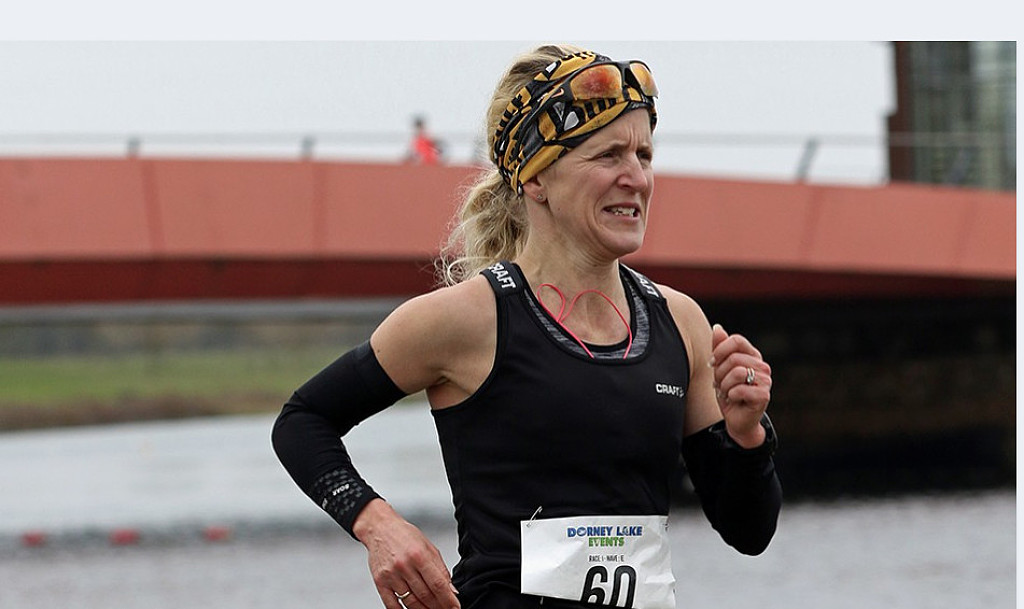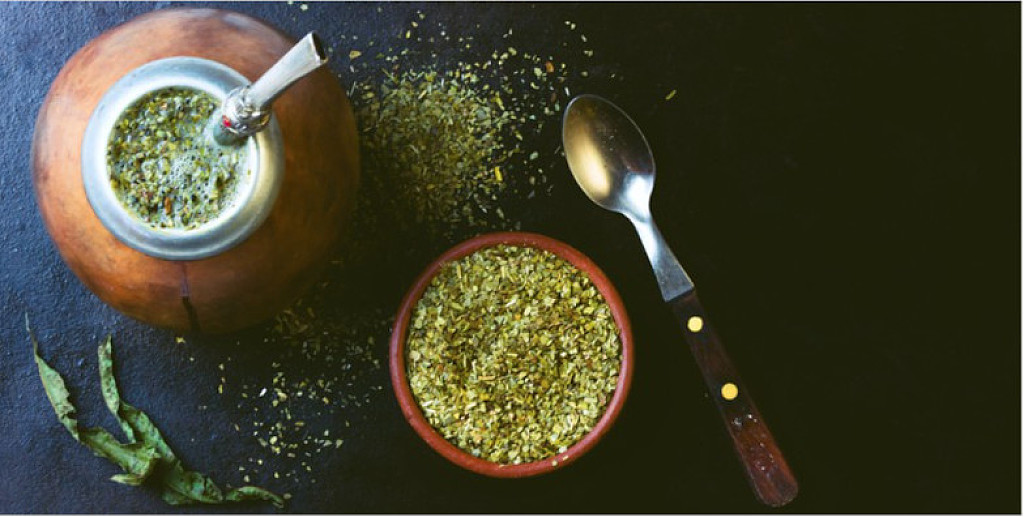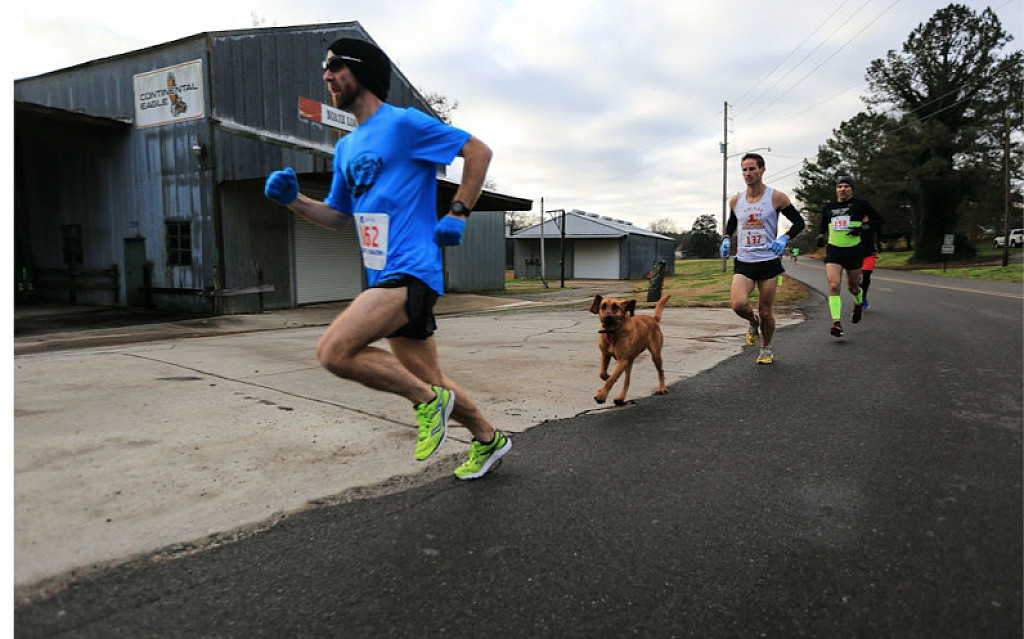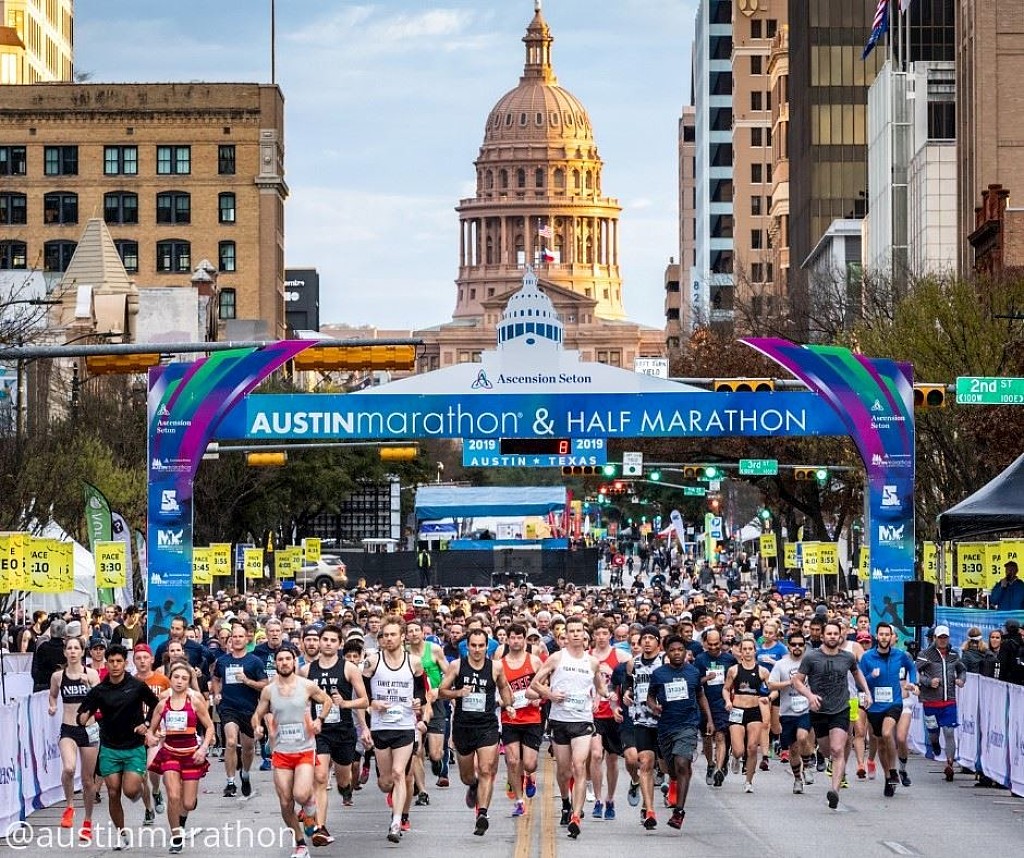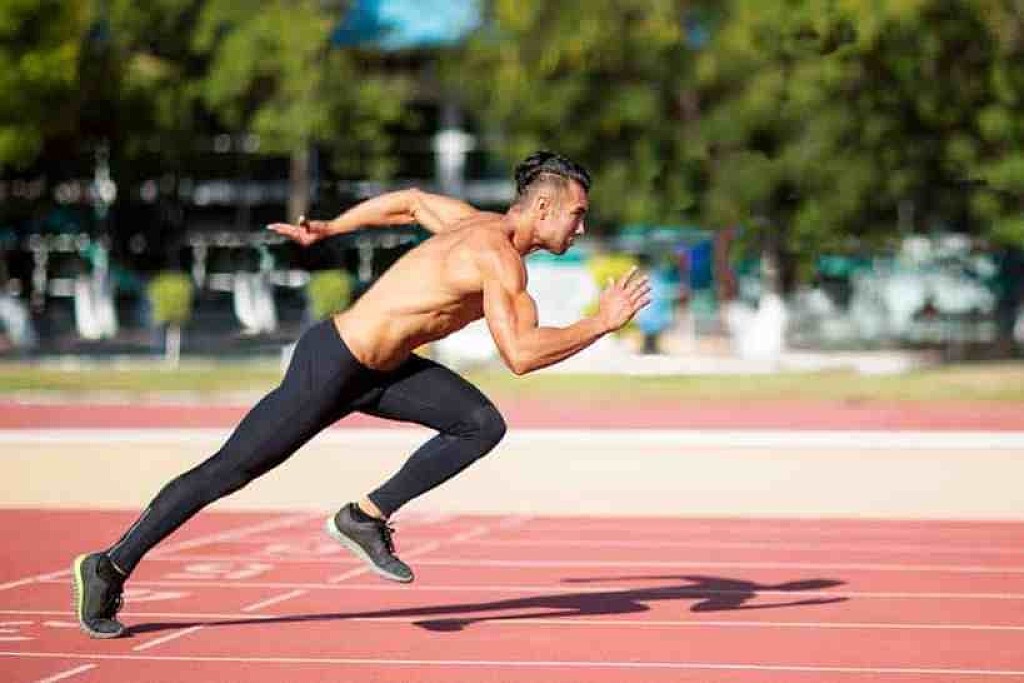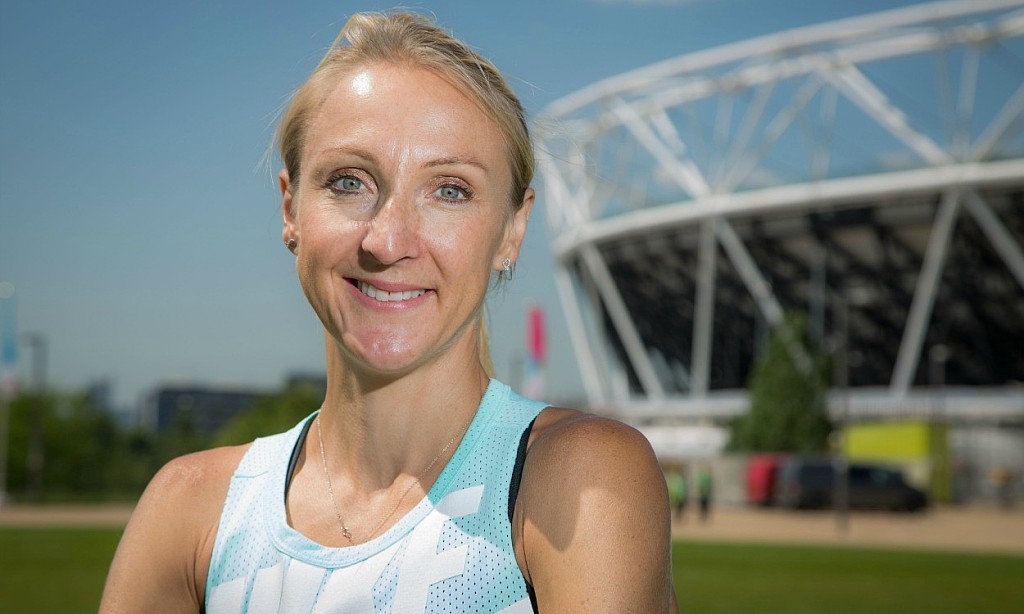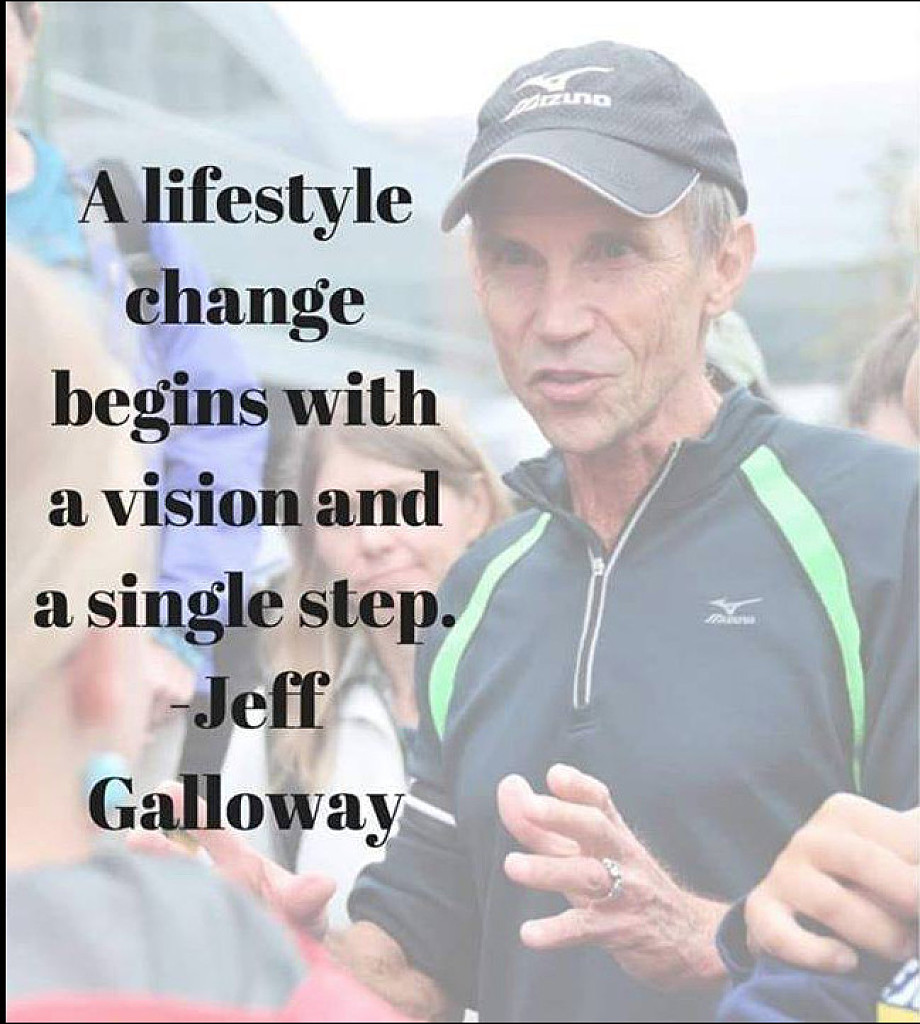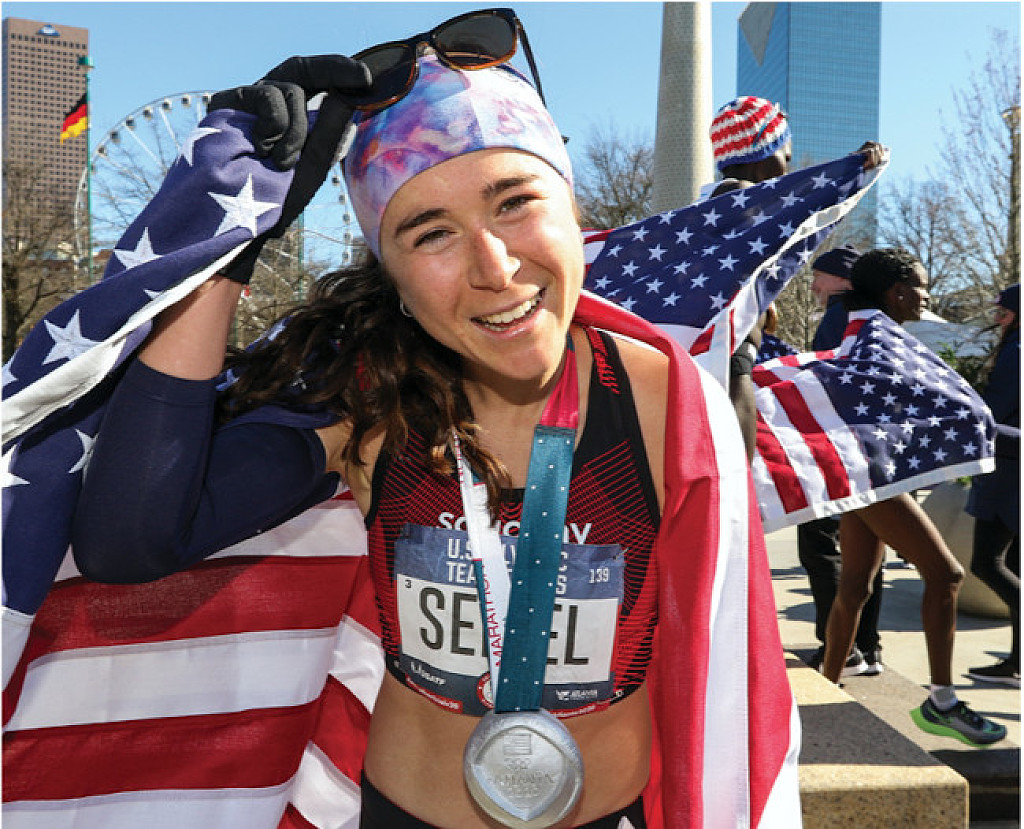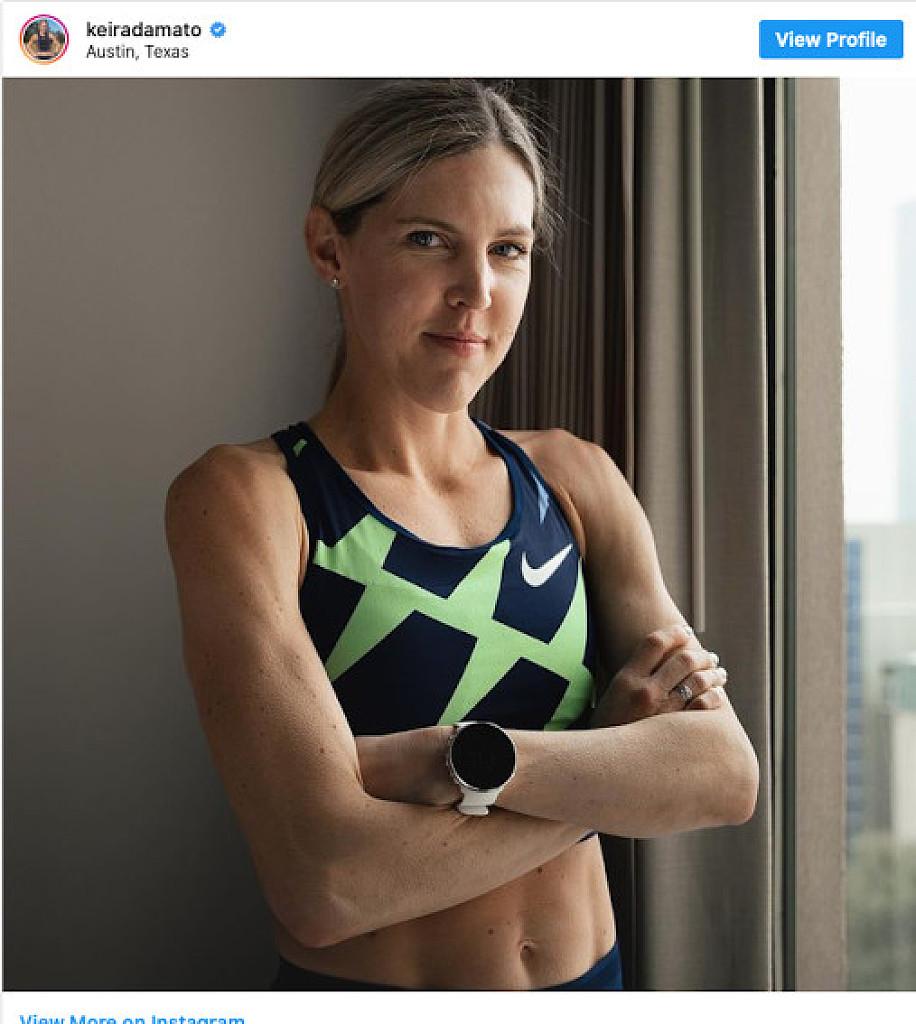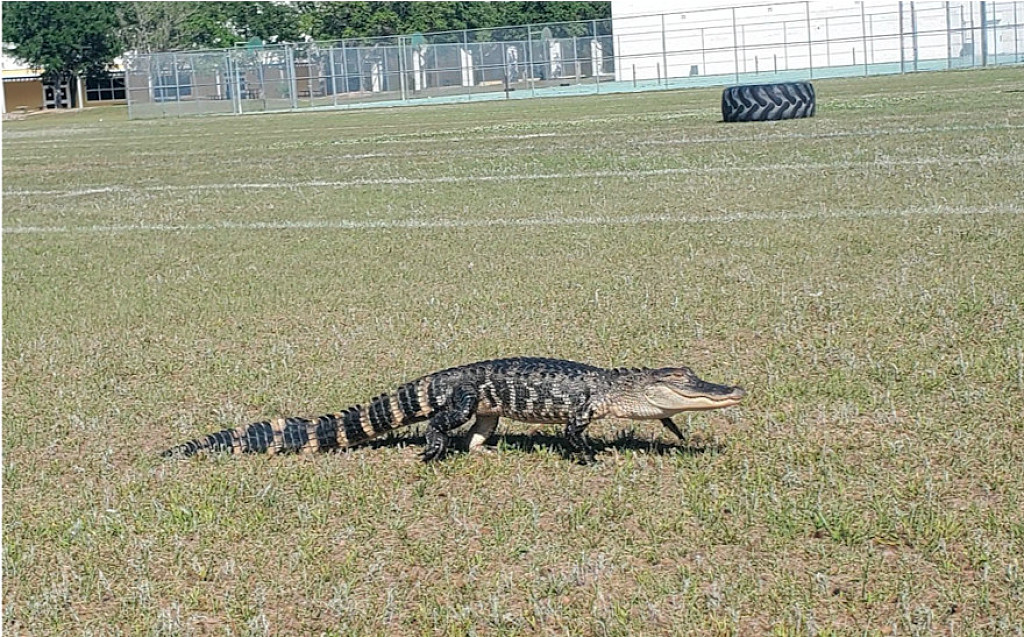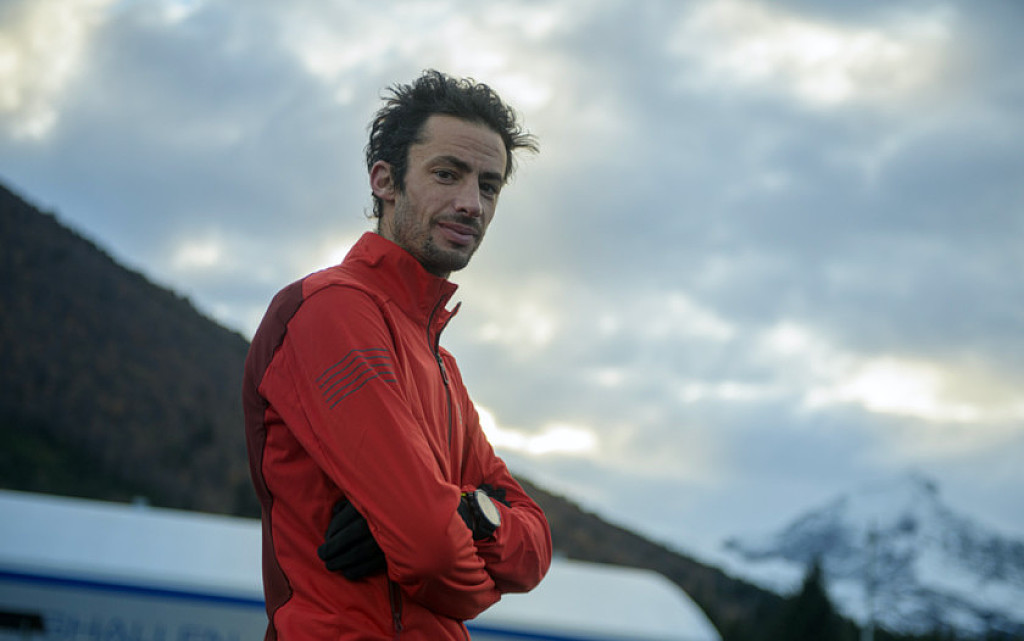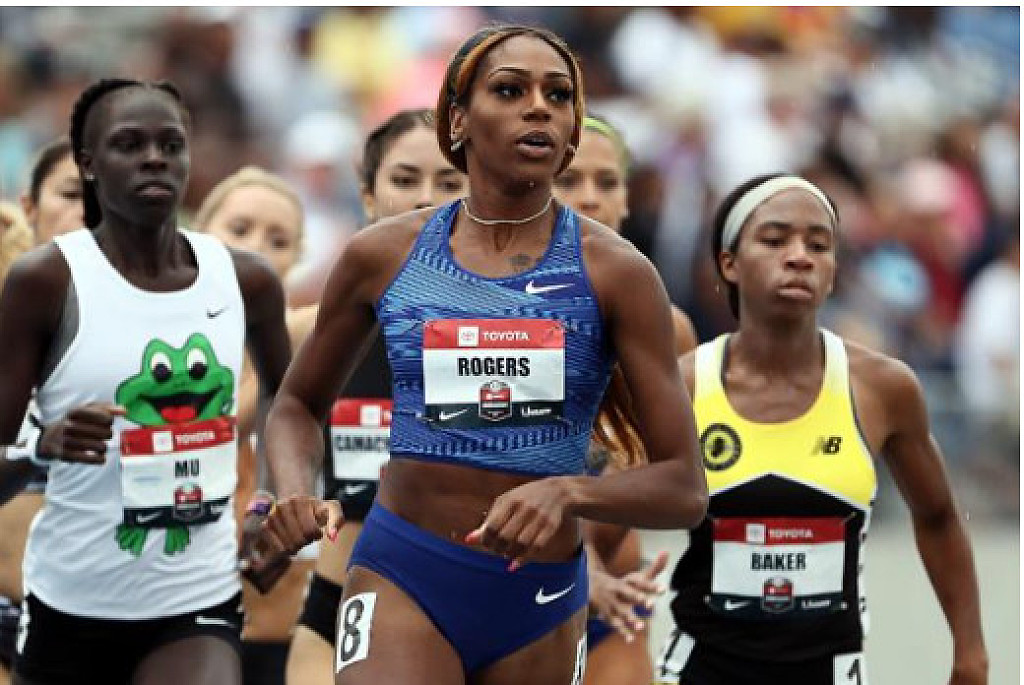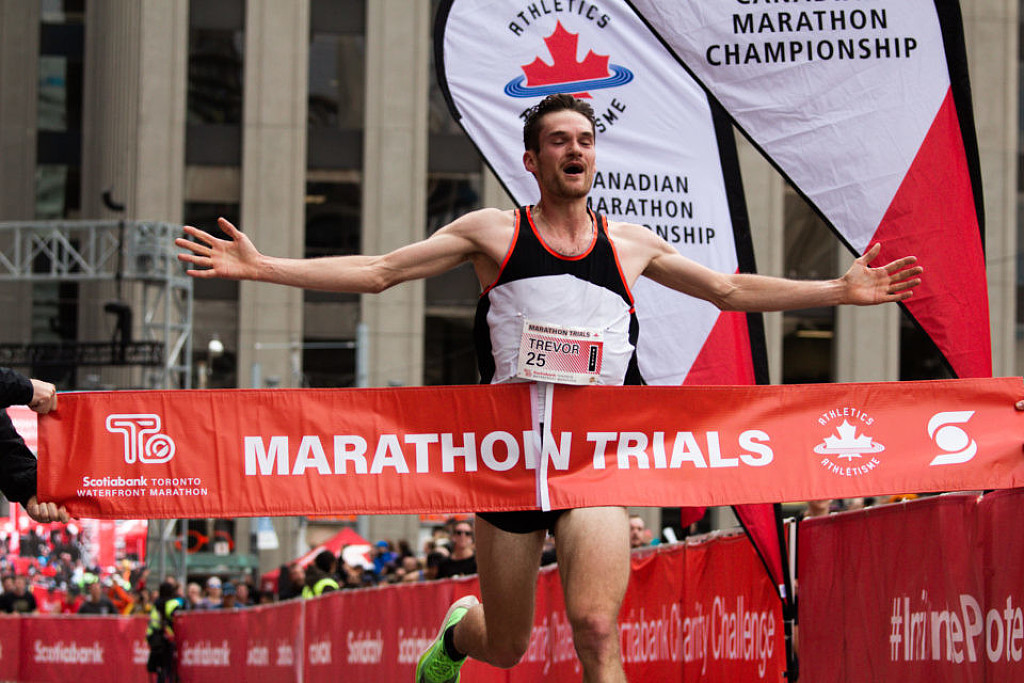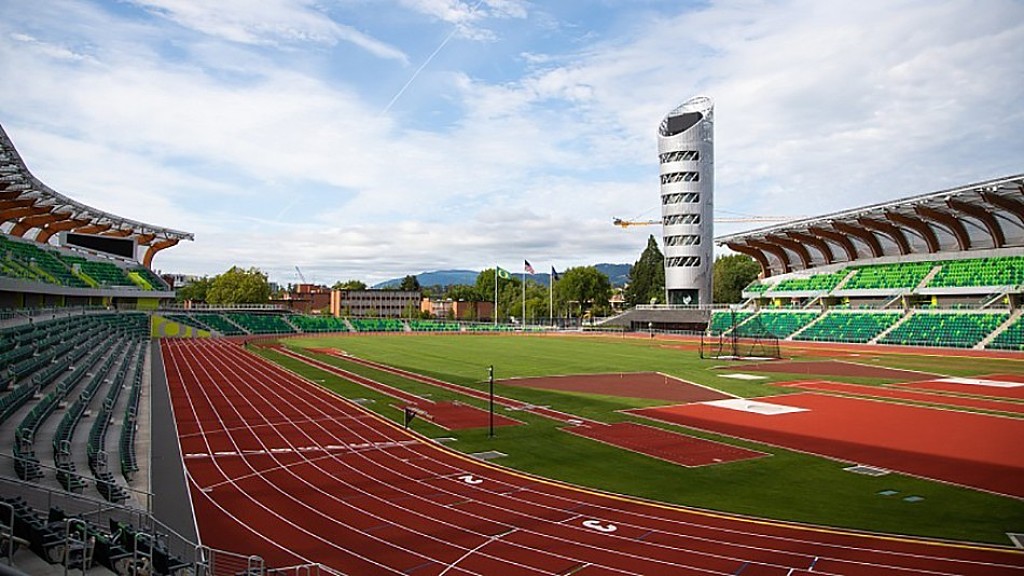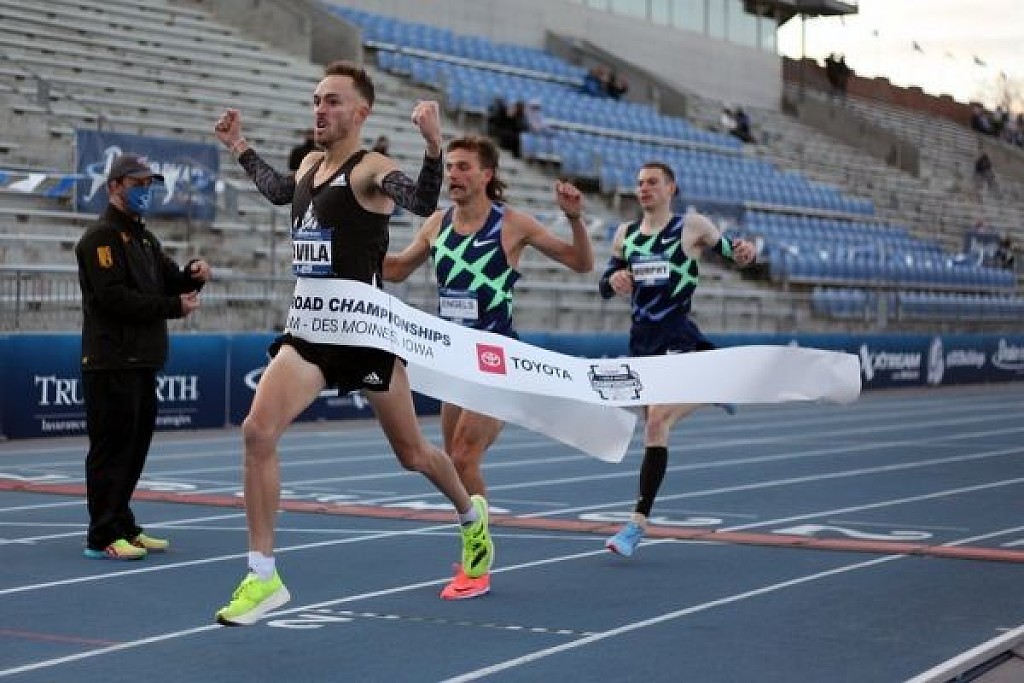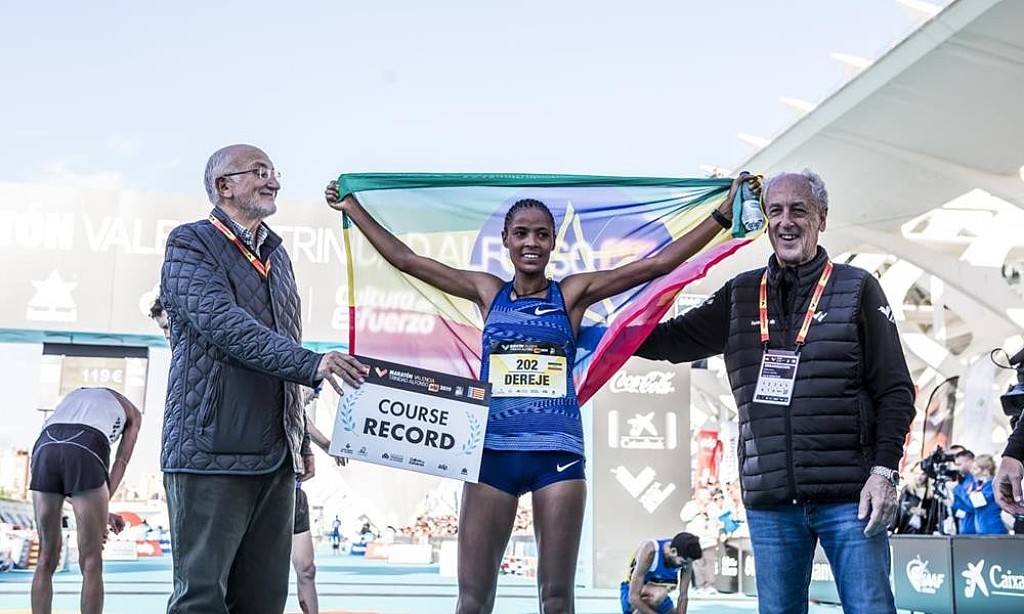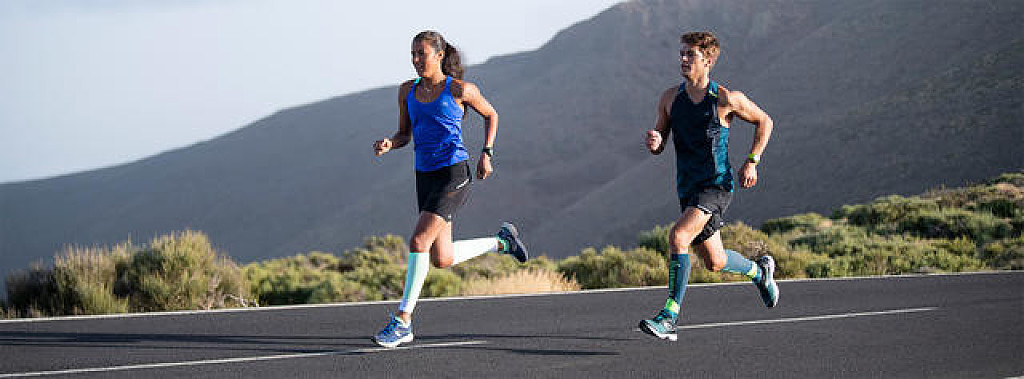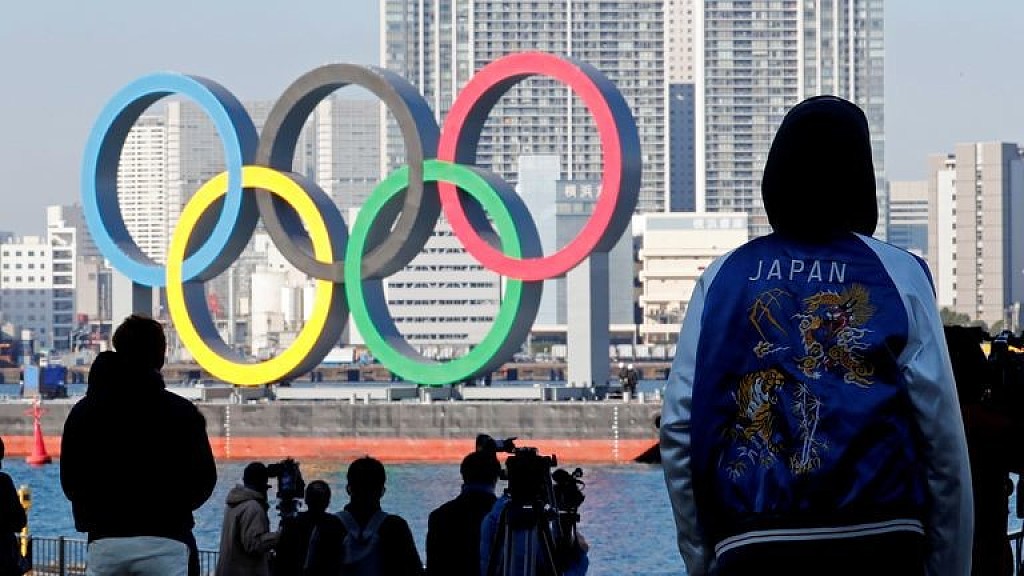Running News Daily
Running News Daily is edited by Bob Anderson. Send your news items to bob@mybestruns.com Advertising opportunities available. Train the Kenyan Way at KATA Kenya and Portugal owned and operated by Bob Anderson. Be sure to catch our movie A Long Run the movie KATA Running Camps and KATA Potato Farms - 31 now open in Kenya! https://kata.ke/
Index to Daily Posts · Sign Up For Updates · Run The World Feed
Shura Kitata and Tigist Girma Win Ethiopian Olympic Marathon Trials
The much-discussed 35k Ethiopian Olympic marathon trial race was held today in Ethiopia without Kenenisa Bekele. Unless the Ethiopian Athletics Federation changes course, your Ethiopian Olympic marathon team will consist of the top three finishers from each race.
Here are the top five results from each race along with the credentials of the finishers. Race results and photos are courtesy of the Ethiopian Athletics Federation Facebook page with translation via Teferi Debebe.
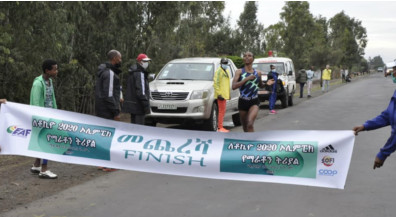
The times of the men have been updated based on an update to the facebook page. The first results had Kitata winning by 20 seconds which made no sense given the photo of the finish shows it was close.
Shura Kitata 1:46:15 – 24-year-old was winner of 2020 London Marathon last October, runner-up in NYC and London in 2018, winner of Frankfurt and Rome in 2017. 2:04:49 pb (2018).2. Lelisa Desisa – 1:46:16 – 31-year-old is past winner of Dubai (2013), Boston (2013, 2015), NYC (2018), and Worlds (2019). Only 35th in Valencia last December. 2:04:45 pb (2013).3. Sisay Lemma – 1:46:19 – 30-year-old has never won a major. 3rd is his best major finish (Tokyo and London 2020, Berlin 2019, Dubai 2017). Past winner of Frankfurt, Vienna, Warsaw and Ljubljana. 2:03:36 pb (2019).4. Chalu Deso – 1:46:34 – Age not listed. 9th in Dubai (2:06:29) and 6th in Valencia (2:04:53). Past winner of Porto (2019 – 2:09:08).5. Kinde Atanaw – 1:47:03 – 28-year-old won Valencia in 2019 (2:03:51 pb), DNF Valencia in 2020. No other marathon results.
*The Ethiopian site now lists the times as 1:46:14.53, 1:46:15.10, 1:46:18.21, 1:46:33.67, 1:47:02.53 so we rounded them all up to the next second per rules protocol but we imagine most outlets will list the lower time.
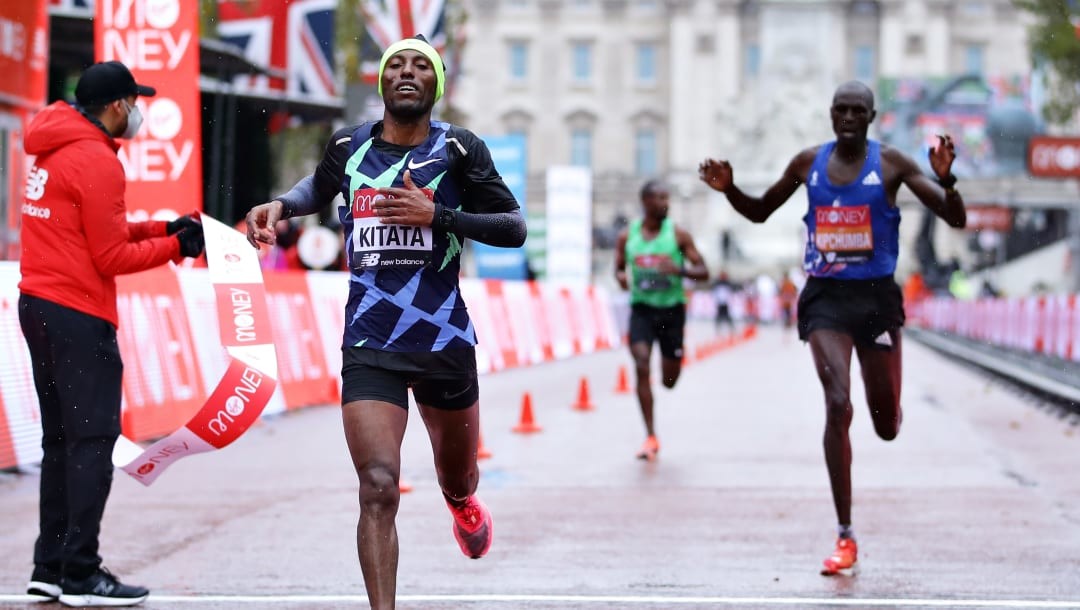
Women’s Results
1. Tigist Girma – 1:59:23 – 27-year-old has never won a major (best finish is 5th and that’s the only major she ever ran — Tokyo 2020) but has twice run 2:19. 2:19:52 pb from Amsterdam 2019. Has won 2 of her career 13 marathons.2. Birhane Dibaba – 1:59:45 – 27-year-old was runner-up in Tokyo last year (2:18:35 pb) and 9th in Valencia (2:23:07). Also ran 2:18:46 for 3rd in Valencia in 2019. 2015 and 2018 Tokyo champ.3. Roza Dereje Bekele 2:00:16 – 23-year-old won Valencia (2:18:30) and was 3rd in London in 2019. Won Dubai and was 2nd in Chicago in 2018. No results in 2020. 2:18:30 pb (2019 Valencia).4. Zeineba Yimer – 2:03:41 – 22-year-old has two carer marathon finishers, a 2:19:27 for 5th in Valencia in 2019 and a 2:19:54 that got her 4th in 2020.5. Ruti Aga – 2:04:28 – 27-year-old was 2019 Tokyo champ. Has finished in the top 3 five other times (runner-up in Berlin in 2017 and 2018 and Tokyo 2018 and 3rd in Berlin 2016 and New York 2019). 2:18:34 pb from 2018 Berlin.
(05/02/2021) ⚡AMPby Let’s Run
New Salazar documentary questions reasons for his 2019 suspension
Nike’s Big Bet, the new documentary about former Nike Oregon Project head coach Alberto Salazar by Canadian filmmaker Paul Kemp, seeks to shed light on the practices that resulted in Salazar’s shocking ban from coaching in the middle of the 2019 IAAF World Championships. Many athletes, scientists and journalists appear in the film, including Canadian Running columnist Alex Hutchinson and writer Malcolm Gladwell, distance running’s most famous superfan.
Most of them defend Salazar as someone who used extreme technology like underwater treadmills, altitude houses and cryotherapy to get the best possible results from his athletes, and who may inadvertently have crossed the line occasionally, but who should not be regarded as a cheater. (Neither Salazar nor any Nike spokesperson participated in the film. Salazar’s case is currently under appeal at the Court of Arbitration for Sport.)
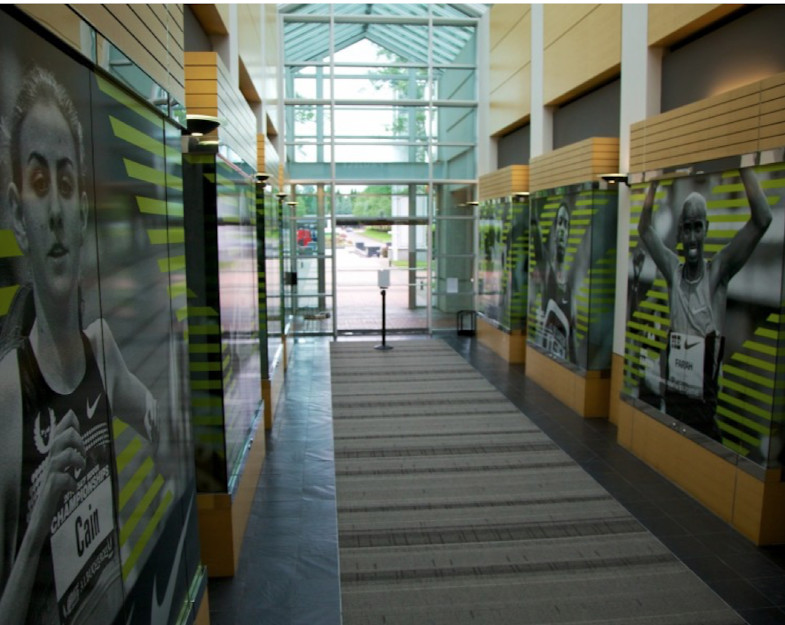
Salazar became synonymous with Nike’s reputation for an uncompromising commitment to winning. He won three consecutive New York City Marathons in the early 1980s, as well as the 1982 Boston Marathon, and set several American records on the track during his running career.
He famously pushed his body to extremes, even avoiding drinking water during marathons to avoid gaining any extra weight, and was administered last rites after collapsing at the finish line of the 1987 Falmouth Road Race.
Salazar was hired to head the Nike Oregon Project in 2001, the goal of the NOP being to reinstate American athletes as the best in the world after the influx of Kenyans and Ethiopians who dominated international distance running in the 1990s. It took a few years, but eventually Salazar became the most powerful coach in running, with an athlete list that included some of the world’s most successful runners: Mo Farah, Galen Rupp, Matt Centrowitz, Dathan Ritzenhein, Kara Goucher, Jordan Hasay, Cam Levins, Shannon Rowbury, Mary Cain, Donovan Brazier, Sifan Hassan and Konstanze Klosterhalfen.
Goucher left the NOP in 2011, disillusioned by what she saw as unethical practices involving unnecessary prescriptions and experimentation on athletes, and went to USADA in 2012. An investigation by the U.S. Anti-Doping Agency followed on the heels of a damning BBC Panorama special in 2015, and picked up steam in 2017.
When Salazar’s suspension was announced during the World Championships in 2019, he had been found guilty of multiple illegal doping practices, including injecting athletes with more than the legal limit of L-carnitine (a naturally-occurring amino acid believed to enhance performance) and trafficking in testosterone – but none of his athletes were implicated. (Salazar admitted to experimenting with testosterone cream to find out how much would trigger a positive test, but claimed he was trying to avoid sabotage by competitors.)
That Salazar pushed his athletes as hard in training as he had once pushed himself is not disputed; neither is the fact that no Salazar athlete has ever failed a drug test. Gladwell, in particular, insists that Salazar’s methods are not those of someone who is trying to take shortcuts to victory – that people who use performance-enhancing drugs are looking for ways to avoid extremes in training.
That assertion doesn’t necessarily hold water when you consider that drugs like EPO (which, it should be noted, Salazar was never suspected of using with his athletes) allow for faster recovery, which lets athletes train harder – or that the most famous cheater of all, Lance Armstrong, trained as hard as anyone. (Armstrong, too, avoided testing positive for many years, and also continued to enjoy Nike’s support after his fall from grace.)
Goucher, Ritzenhein, Levins and original NOP member Ben Andrews are the only former Salazar athletes who appear on camera, and Goucher’s is the only female voice in the entire film. It was her testimony, along with that of former Nike athlete and NOP coach Steve Magness, that led to the lengthy USADA investigation and ban.
Among other things, she claims she was pressured to take a thyroid medication she didn’t need, to help her lose weight. (The film reports that these medications were prescribed by team doctor Jeffrey Brown, but barely mentions that Brown, too, was implicated in the investigation and received the same four-year suspension as Salazar.) Ritzenhein initially declines to comment on the L-carnitine infusions, considering Salazar’s appeal is ongoing, but then states he thinks the sanctions are appropriate. Farah, as we know, vehemently denied ever having used it, then reversed himself.
It’s unfortunate that neither Cain, who had once been the U.S.’s most promising young athlete, nor Magness appear on camera. A few weeks after the suspension, Cain, who had left the NOP under mysterious circumstances in 2015, opened up about her experience with Salazar, whom she said had publicly shamed her for being too heavy, and dismissed her concerns when she told him she was depressed and harming herself. Cain’s experience is acknowledged in the film, and there’s some criticism of Salazar’s approach, but Gladwell chalks it up to a poor fit, rather than holding him accountable.
Cain’s story was part of an ongoing reckoning with the kind of borderline-abusive practices that were once common in elite sport, but that are now recognized as harmful, and from which athletes should be protected.
Gladwell asserts that coaches like Salazar have always pushed the boundaries of what’s considered acceptable or legal in the quest to be the best, and that the alternative is, essentially, to abandon elite sport. It’s an unfortunate conclusion, and one that will no doubt be challenged by many advocates of clean sport.
(05/02/2021) ⚡AMPby Running Magazine
Here's What To Know About Recycling Your Running Shoes
It probably won't surprise you, a runner, a definite wearer of shoes, to learn that the shoe industry is massive (producing 24.2 billion pairs a year, massive). Also unsurprising is that with its size comes a monster amount of waste as consumers continue to buy and ditch pair after pair.
The life cycle (from material processing, manufacturing, logistics, and eventual waste) is estimated to create 30 pounds of carbon emissions for each pair of running shoes.

Running brands aren't oblivious to the problem and seem to grasp that runners are caring more and more about the environment, but aren't willing to compromise on the quality of their footwear. In fact, that's where a lot of the dissonance comes into play. To truly reduce the carbon footprint of the sneaker industry, runners need to one day rely on fewer, yet more durable shoes.
But no shoe brand wants us to buy fewer shoes. Which means, it's up to them to find another way. And this April, just in time for Earth Day, many brands are launching new (or beefing up old) footwear recycling.
Currently, 85 percent of textiles are not recycled, with the average person throwing away 70 pounds of clothing and other textiles annually.
In general, recycling shoes is a complex process and depending on the materials in the shoe it might not be possible. "Footwear is difficult to recycle because most shoes are made using multiple, mixed materials which are often stitched or glued together," says Shaye DiPasquale a publicist for the recycler TerraCycle.
"There is not a lot of physical recycling of footwear that goes on," says Eric Stubin, president of Trans-Americas Textile Recycling. The majority of 'recycled' shoes and clothes are shipped places to be reused. Stubin's company processes about 10 million pounds of post-consumer textile waste from clothing, shoes, and accessories every year.
Take polyurethane foam, a material researchers from Northwestern University only recently figured out how to upcycle. "Polyurethane foam waste has historically been landfilled and burned or down-cycled for use in carpeting," said William Dichtel, who co-led the research. "Our latest work effectively removes air from polyurethane foams and remolds them into any shape. This could pave the way for industry to begin recycling polyurethane foam waste for many relevant applications." Polyurethane, which is sometimes used in the midsole of shoes does not melt even in extreme heat. Previously, it could only be shredded or compressed in ways that make the material not durable enough for other uses.
In general, when clothing is recycled it tends to go to one of these four different end destinations:
Reused and repurposed as secondhand clothing (45%)
Recycled and converted into items like reclaimed wiping rags for industrial and residential use (30%)
Recycled into post-consumer fiber for home insulation, carpet padding, and raw material for the automotive industry (20%)
Landfills (5%)
Perhaps the most notable and lauded shoe recycling program is Nike's Reuse-A-Shoe, which is available at select Nike stores. Through the program any brand of athletic shoe is collected to be turned into a Nike Grind product-tracks, courts, walkways, and playground floors made from ground sneakers. Stubin considers the Nike Grind program to be the most "robust and viable program for footwear."
Earlier this month, the sandal company Teva announced its partnership with TerraCycle through a program it's calling TevaForever. For no additional cost, customers who sign up receive a pre-paid shipping label to send their worn sandals to TerraCycle. Their goal is to also turn the used sandals into running tracks, playgrounds, and more.
TerraCycle's footwear Zero Waste Box is an option that anyone can order and fill with shoes to be recycled. According to DiPasquale the shoes will either be manually or mechanically separated into fabrics, metals, fibers, organics, and plastics. The fabrics are reused, upcycled, or recycled. The metals are smelted for reuse elsewhere. Wood or paper fibers are recycled or composted. And the plastics are melted down and turned into pellets, flakes, or other usable formats to be molded into new products or packaging.
But what if you could buy a shoe with a promise that it will be recycled, rather than looking for a solution on the back end? On, the Swiss shoe company has recently launched its Cyclon shoe subscription which promises to be a closed-loop system. For a fee of $29.99 per month you are delivered the shoes, made of castor beans. When the shoes reach the end of their life, you let On know and they will send you a new pair along with everything you need to ship the old pair back to be recycled into new products.
Because of the concept, On was awarded the 2021 ISPO Product of the Year as well as a Sustainability Achievement award.
And on Earth Day, Salomon will begin selling its Index.01 shoe in the U.S., which is already available in Europe. Like On's concept, it promises to be a circular life-cycle shoe. As long as consumers send it back, partners of Salomon will recycle the TPU and polyester into raw materials for use in other products. In Europe specifically, the TPU will be recycled into Salomon ski boots.
What about socks? An oft-forgotten item that is more than likely to end up in the landfill. Smartwool has just announced its new partnership with Material Return starting April 21. Like Nike Grind, this program involves collecting old socks (can be any brand or material, but must be clean) to be ground up and used in other products. This is your chance to get rid of those lonely single socks that, let's be honest, won't ever find their match. Find a donation center here.
4 Other Ways to Donate or Recycle Your Shoes
Donating your shoes so someone else can get use out of them is probably the best thing you can do with that old pair.
Stubin's biggest piece of advice when donating your shoes: Don't judge your shoes too harshly. "A good pair of shoes, even if a runner deems them no longer useful, can likely find a second life," he says.
Even if the charity you donate to can't re-sell the shoes to a consumer, they can still sell it to a recycler. "So if a Goodwill sells clothing to Trans-Americas, we pay them for that material. There's a market price for that material," says Stubin.
Programs like One World Running and Soles4Souls (a popular choice among running stores) collect and distribute shoes and other clothing to people who need them. To date the Soles4Souls program has found second use for over 56 million pairs of shoes. Find a donation center near you here.
Soles4Souls partners with a lot of other high profile donation programs. The North Face's Clothes the Loop program, for example, will send your shoes to that recycling leader.
[Editor's Note: You can also join our Soles4Souls shoe drive! Get all the details here and help us put your old sneakers to good use.]
Also announced this month, Nike will soon start accepting lightly worn, good condition shoes into its refurbished program for resale in 15 authorized stores. You can also check with your local running store to see if they offer any sort of similar takeback program.
Extending the life of a garment by one year can reduce its carbon footprint by 25 percent, according to the Thredup fashion footprint calculator. "So footwear that lives on and finds a second life for two to three years, conceivably reduces the carbon," says Stubin.
Recycling vs. trashing shoes is only a small fraction of the problem. Most of the carbon emissions related to running shoes happens in the manufacturing process. At the end of the day, the best thing that can be done is to buy less and make the products we do own last longer. But, as with every environmentally charged movement, we have to start somewhere and demand forward progress and innovation, while doing our part as individuals.
(05/02/2021) ⚡AMPby Women’s Running Magazine
5 Steps to becoming a runner
Want to start running? You'll be in good company, considering almost 60 million Americans regularly hit the road, trail, or tread, according to Statista research.
Though running is one of the most accessible forms of exercise out there, becoming a runner can be a little more complicated than just lacing up and putting one foot in front of the other. (Unless you don't care about burning lungs, aching legs, and shin splints, that is.)
Whether you've never run a full mile, want to finish your first 5k, or are ready to train for a half-marathon, these training, fueling, and injury-prevention tips will make you a better runner than ever—and yes, even help you enjoy every step.
1. Don’t be afraid to start with walking.
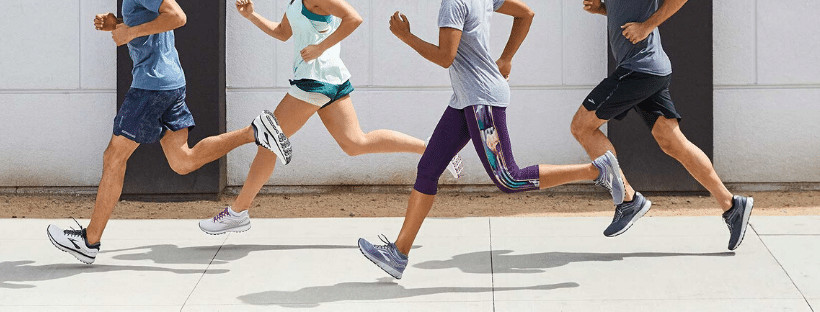
If you’ve never laced up your sneaks for a run before, ease into a consistent cardio routine by walking for about 20 minutes, three times a week, says Colleen M. Brough, DPT, director of the Columbia University RunLab.
From there, progress your walks into run-walk interval workouts, Brough recommends. Start with 20 minutes four times a week, then bump the time up to 30 to 35 minutes.
“Run-walk intervals help minimize the risk of injury and can make the process of starting out more enjoyable and less daunting,” says Megan Roche, MD, running coach for Strava. “Increasing the number and duration of running intervals versus walking intervals is a great way to progress over time.”
As you get more comfortable, alternate between 60 seconds of running and walking—and eventually work your way up to a non-stop run.
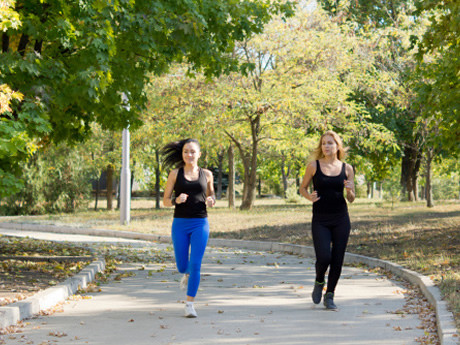
2. Use your breath to find your pace.
Sure, you might know how to run, but knowing what kind of pace you can hold is a whole other story.
New runners almost always start running too fast and then burn out, says Brandon T. Vallair, USA Track & Field Certified Level 1 Coach and owner of Run for Speed in Dallas.
Though you might associate the word "running" with speed, give yourself permission to slow it down.
To control your tempo, use the “talk test” and maintain a speed at which you can easily converse or sing, suggests Vallair. If you're gasping for breath, slow down. If you can belt out the chorus to a Bruno Mars song on your iPod, pick it up a bit.
"The idea is to finish each run wanting to do a little bit more or go a little bit faster," says Leivers. "It makes it easier to get out there the next time, because you feel like there's more to accomplish."
3.- Focus on minutes instead of miles.
How you measure your runs is totally up to you, but thinking in time instead of distance may be less daunting.
After all, setting out to run for 30 minutes gives you more wiggle room to have a bad day or take it slow than vowing to run three miles.
4.- Progress smartly and safely.
If you have your eyes set on a race (especially a half-marathon or longer), you'll (of course!) need to dial up your distance. However, it's key to do so slowly.
First, designate just one run each week as your long run, says Leivers. While you can add a mile or two to that run over time, keep the rest of your runs the same.
Leivers's number-one rule: Increase your total weekly mileage every other week by no more than the number of days per week you run. For instance, if you run three days a week, you can increase your mileage by three miles every other week.
And number two: Keep your long run to no more than half your weekly total mileage to prevent overdoing it during any single outing. So, if you run 10 miles a week, that long run should be five miles or less.
5.- Mix up your runs.
Once you can run for about 30 minutes straight, you can start adding intervals—which will help you improve your overall pace by switching up the stimulus on your body—to your routine, says Brough.
Plus, “switching up workouts is a great way to keep the fun rolling," says Roche.
Two ways to try intervals:
Hill strides: Run uphill for 20 to 30 seconds, then jog downhill or on flat road until recovered.
Speed intervals: Alternate between one minute at about 75-percent effort and one minute of easy jogging.
Sprint intervals: Alternate between one minute of all-out sprinting and five minutes of easy jogging.
(05/01/2021) ⚡AMPby Women´s Health
New CDC Guidelines Say You Don’t Have to Wear a Mask When Running Outdoors
Don’t leave your mask at home, though. Even outside, there are situations where you may still need it.
The Centers for Disease Control (CDC) announces new guidelines that state you don’t need to wear a mask outdoors if you’re running on your own or with members of your household, except in certain crowded settings and venues.
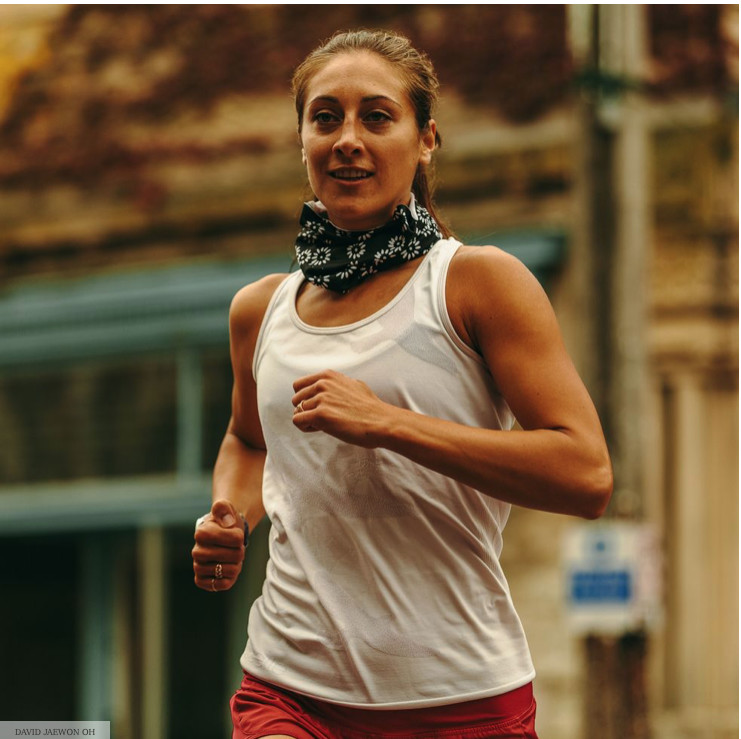
The guidelines also state that both vaccinated and unvaccinated people should continue wearing a mask during indoor activities including going to the gym or to a workout class.
While you don’t need to wear a mask or face covering when running outside, it’s best to still bring one with you in the case of an emergency or unplanned event.
Yearning for a run without worrying about a mask? The time has come.
According to new guidelines from the Centers for Disease Control (CDC), you don’t need to wear a mask outdoors if you’re walking, running, biking, or hiking on your own or with members of your household, whether you’re fully vaccinated or not, except in certain crowded settings and venues.
Additionally, those who are fully vaccinated can go mask-free when attending small, outdoor gatherings, even if there are unvaccinated people in attendance, and dine at outdoor restaurants with friends from multiple households.

Previous guidance advised wearing a mask in any public setting, even outdoors, unless you were exercising solo in an area where you could maintain ample distance from others.
In a chart ranking the safety of numerous activities, the CDC now indicates that running or walking outside is among the safest activities you can do right now. Most other activities, particularly those held indoors (including going to the gym or to a workout class), should prompt mask-wearing—but that fully vaccinated people wearing masks have a much lower risk level of catching or transmitting COVID-19 than unvaccinated people.
Finally, there are other safety measures to keep in place when running, such as staying home when you feel sick and maintaining physical distancing when possible.
Can you head out for a run and leave your mask behind?
Not quite—it’s still worth carrying one with you on the run, even if you’re fully vaccinated, in the case of an emergency or unplanned event (like needing to stop in a store for food or drink), or in case you find yourself in a larger gathering than you’d anticipated, including in group runs and races. Consider tucking the mask into a pocket or your waistband to have it handy, or wear a buff that can easily be pulled up around your neck.
“While mask requirements have been updated, it is still prudent to keep your mask on hand at all times,” Vivek Cherian, M.D., internal medicine physician affiliated with the University of Maryland Medical System, told Runner’s World. “If you are running or biking, you can absolutely enjoy that mask-less, whether you’re vaccinated or not. However, it is always advisable to have it for a busy trail or having to go inside a store.”
If you’re on a group run or at a race, Cherian added that it’s important to be mindful of the vaccination status of others around you. If not everyone is vaccinated, or you are not sure, he advised that it’s best to wear a mask because it is still a possibility that you could be an asymptomatic carrier of COVID, despite having received the vaccine.
Are gyms safe for indoor training?
Participating in an indoor, high-intensity exercise class is listed as “least safe” on the CDC’s updated guidelines for those who are unvaccinated, but safe for the fully vaccinated. However, everyone in that class should still be wearing a mask, the CDC suggests.
At this time, home workouts are still your best bet for keeping up your fitness routine and helping to ensure your own health and the health of those around you. Gyms are open in most states—with caveats. Many require masks, distancing, smaller class sizes, reserved time slots, and even a switch to outdoor training. But, before you go, it’s important to weigh the risks and know how the virus is spreading in your community. (You can find a directory of state health departments here.)
“If you have to do an indoor workout with others in the gym, make sure you’re masked up with the best filtering, best fitting mask(s) you’ve got,” Matt Ferrari Ph.D., associate professor of biology in the Eberly College of Science, and a researcher with the Center for Infectious Disease Dynamics at Penn State, told Runner’s World previously.
And, no matter where you sweat, you should remember to wash your hands regularly, especially after your workout for an added layer of precaution.
When are you considered to be fully protected from COVID-19 after receiving a vaccine?
Two weeks after the second shot of the Pfizer or Moderna vaccines, or two weeks after the Johnson & Johnson vaccine.
This is a developing situation. For the most up-to-date information, check resources like the Centers for Disease Control and Prevention (CDC) regularly. This story will be updated as new information becomes available.
(05/01/2021) ⚡AMPby Runner’s World
Ultrarunner documents 100-mile Central Park FKT with short film
American ultrarunner Robbie Balenger set an FKT (fastest known time) in New York City’s Central Park on March 21, running nearly 100 miles in just over 18 hours. The Central Park Loop Challenge follows a roughly 10K route around the park, and it involves running as many laps as possible in one day. Balenger beat the previous record by five laps, and he documented his 98-mile run with a short film. The Central Park Loop Challenge marks Balenger’s first official FKT.
The record Balenger set out to beat in Central Park belonged to Aaron Zellhoefer, who ran 11 laps in just over 14 hours in June 2020. Balenger smashed that record, running five laps farther than Zellhoefer did and reaching the 100-mile mark. A big challenge with the Central Park Loop is the fact that the park is only open from 6 a.m. to 1 a.m. This means runners don’t have a full day to complete their FKT attempts, and the challenge officially begins at 6:05 a.m. and ends at 12:55 a.m. (although runners can start anytime between these hours).

That window works out to a little under 19 hours for runners attempting the Central Park Loop Challenge, and Balenger used almost all of the allotted time in his run. The rules of the challenge (which are listed on fastestknowntime.com) also state that only whole laps of the park count, and even if a runner covers 9K in their final lap, it won’t be included in their result. If two runners happen to run the same number of laps, the tie is decided by their times, and the faster result wins the FKT. In Balenger’s case, he ran much farther than anyone else before him, so no tie-breaker was needed.
Balenger notes that while he has run many ultra challenges before (in 2019, he ran 5,000 kilometres across the U.S.), he had never gone nearly as far in one shot as he did in his near-100-miler in Central Park. In his mini-documentary of the FKT attempt, Balenger also discusses his diet and how he completes all of his ultra-endurance adventures as a vegan. “It’s the best thing that I can do for my body to perform at my highest level,” he says.
Balenger’s diet and training clearly work very well for him, as he averaged 6:49 per kilometre over the 18-hour challenge. To learn more about his plant-based lifestyle and running career, click here, and to see his documentary, either watch the above video or head over to YouTube.
(05/01/2021) ⚡AMPby Running Magazine
The Latest, Best, and Most Scientific Hydration Strategies for Runners
Summer is just around the corner, race calendars are filling back up, and interest in ultra-marathon and ultra trail races is booming. In other words, it's time to think about optimal hydration practices again. And to get everything right this time - once and for all.
Fortunately, Larry Armstrong, PhD, is here to serve as our guide. Armstrong has ranked among the world experts in endurance hydration for 40 years, and has just written a new summary paper titled "Rehydration During Endurance Exercise: Challenges, Research, Options, Methods."
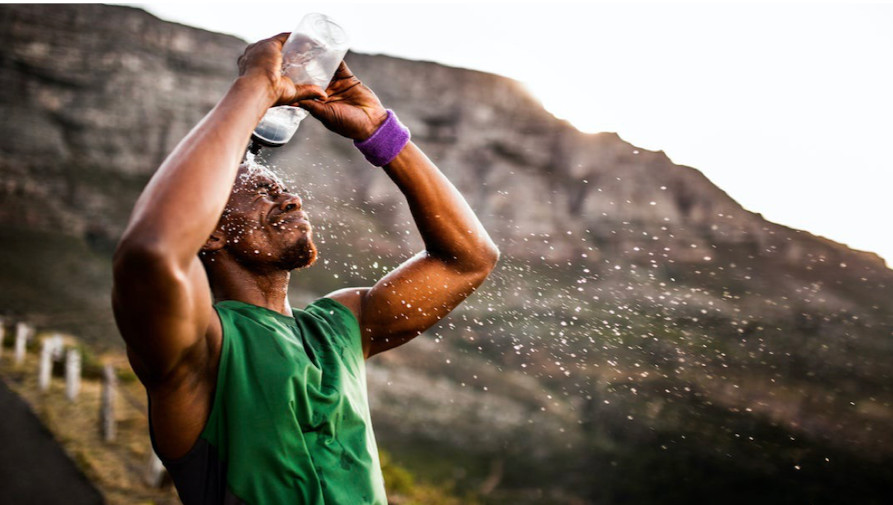
A lifetime runner himself, Armstrong understands that marathoners want practical hydration advice, and not just scientific gobbledygook. We've had enough of that through the decades, especially as it has changed in ways both subtle and substantial.
Drink Some, Not Too Much
Don't feel bad if you're confused about the best hydration strategies before a race. So are a lot of other runners. Armstrong's new paper clarifies the muddy issues, delivering the latest and most evidence-based data.
Temperature has a major impact on sweat rate, which nearly doubles between a marathon run at 45 degrees Fahrenheit and one run at 68. Additionally, the faster you run, the more you sweat per hour. (Although a 2:30 marathoner and a 5-hour marathoner will sweat about the same total amount over 26.2 miles.) Typically, the more you weigh, the higher your sweat rate. Genetics plays a role as well, partially determining your relative sweat rate and the amount of salt in your sweat.
A new threat appeared in the mid-1980s with the first reports of marathon runners who drank too much, leading to hyponatremia (low salt level in the blood). Severe hyponatremia, while rare among runners, can lead to seizures and even death.
It has generally been observed most often in women runners (possibly because of their small body size), in runners who exercise more than 4 hours at a time, and in runners with inherent high sweat rates and high sodium content in their sweat. Cases of hyponatremia seem to have dropped in the last decade, as runners have realized they should not drink as much as possible.
To avoid both dehydration and hyponatremia, marathoners need to find a smart middle ground. You don't want to drink too little, and you definitely don't want to drink too much. There's the challenge we all face.
The goal, which some runners have been slow to accept, is to plan for and accept modest dehydration. It's not a personal hygiene failing like BO or bad breath; it's the smartest way to run. Here's a little jingle I just invented, keep it in mind: "1-2-3, it's all for free."
In other words, you can lose up to 3% of your body weight in marathons, and it won't cause any harm. In fact, you might save time, as you walk and slurp less at fluid stations.
Based on Larry Armstrong's hydration guidelines, here are and nine specific tips and five ways to plan for your race (two of which are bad ideas).
9 Specific Hydration tips
Hydration Tip 1: Experiment with any and all hydration methods during training, and before using them in competition. Try to train in the conditions you will face on race day.
Hydration Tip 2: Measure body weight before and after an endurance run to get an estimate of your water loss per hour. Use this to inform your race-day hydration strategy.
Hydration Tip 3: During exercise, consume fluids at a rate less than 700mL/hr (that's about 24 ounces). Several exercise science groups and marathon medical director groups suggest a range of 400 to 800mL/hr (13 to 27 ounces).
Hydration Tip 4: Remember this key fact: Modest dehydration up to 3% is okay. In fact, it's commonplace and expected. It's not dangerous, and not likely to impair your performance. Don't try to replace all the sweat you lose.
Hydration Tip 5: If you lose more than 4% of body weight, consider a medical consult to see if you can figure out what's going on.
Hydration Tip 6: Be alert for stomach sloshing, bloating, nausea, or other perceptual cues of excessive drinking. If you experience any of these, limit your fluid intake.
Hydration Tip 7: Do not allow yourself to gain weight during endurance exercise. Weight gain puts you at increased risk of hyponatremia.
Hydration Tip 8: After training and racing in high heat, especially on consecutive days, look for deposits of white salt on your shirt or shorts. These could indicate that you are a heavy salt sweater, and are possibly becoming salt depleted, which could increase the risk of hyponatremia. In this situation, consider adding salty foods to your diet.
Hydration Tip 9: Do not believe that consuming salt and salty foods during an event will allow you to over-drink. This has been proven wrong, and could lead to a false sense of security that might predispose you to hyponatremia. Salts consumed while running will have little to no effect on possible hyponatremia.
5 Pre-Race Hydration Strategies
Do:
1) Drink only after you become thirsty: This approach is believed to minimize the risk of hyponatremia, and also prevent excessive dehydration.
2) Drink when you feel like it (ad libitum): This approach is slightly different than the first, though some draw no distinction. The first advocates paying attention to your thirst. The second: Drink when fluids are available and you feel like it.
3) Drink according to a pre-determined plan: This approach assumes that you have measured your sweat rate prior to the upcoming event. Thus, this strategy is individualized to your weight, pace, the expected weather, and your individual sweat-rate. It should optimize your performance while limiting the risk of hyponatremia. Bingo!
Don't:
4) Drink nothing: This strategy is not recommended by any sports medicine or sports nutrition group for exercise lasting more than 30 minutes.
5) Drink as much as you can: This strategy is not recommended by anyone, yet still apparently followed by as many as 9% of all runners. It could lead to hyponatremia, and will not optimize performance.
Bottom Line: Pick strategy 3. If you haven't done your homework, you can fall back on 1 or 2. Don't follow 4 or 5.
(05/01/2021) ⚡AMPby Trail Runner Magazine
Kenenisa Bekele Will Not Run Ethiopian Olympic Marathon Trials
Kenenisa Bekele, the three-time Olympic champion on the track and second-fastest marathoner of all time, announced today that he will not compete in Saturday’s Ethiopian Olympic marathon trials, which will be held as a 35 km race in the city of Sebeta, 15 miles outside the Ethiopian capital, Addis Ababa. Considering that the Ethiopian Marathon coach Haji Adilo has told LetsRun.com the top three finishers across the line on Saturday will comprise the Ethiopian Olympic team, that would mean that Bekele’s dream of becoming the first person — male or female — in the professional era to win an Olympic gold on the track and the marathon would be over.
Bekele, however, is protesting his exclusion from the team as prior to COVID-19 it was stated that Ethiopia would select their marathon team based on who had the fastest times during the qualifying window and Bekele led the pack on that front by over a minute.
For the last month, speculation has flown about whether Bekele, who has not run a marathon since his near-world record of 2:01:41 in Berlin in September 2019, would compete in the trials. Today, we learned that he will not be running the Trials as a protest letter that Bekele wrote in Amharic to the Ethiopian Athletics Federation in which he also addressed the Ethiopian sports journalists was published on Twitter.
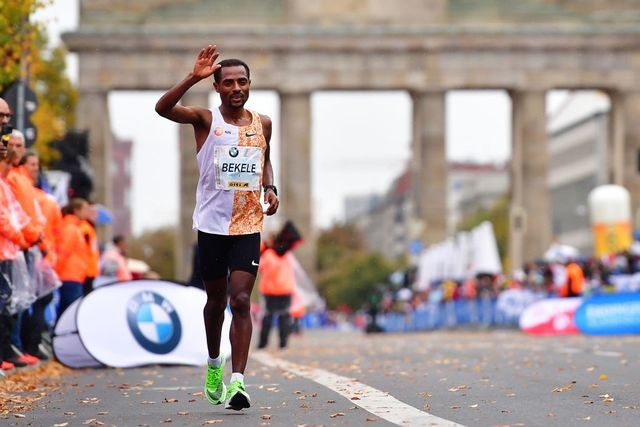
According to Ethiopian journalist Teferi Debebe, whom LetsRun.com spoke to on Wednesday evening, in the above document Bekele said he was 100% healthy but criticized the Ethiopian Athletics Federation for changing its selection criteria and staging its trials too close to the Olympic marathon in Sapporo, which will be held on August 8. The gap between the two races is 14 weeks. For reference, when Eliud Kipchoge won Olympic gold in 2016, there was a 17-week gap between Kipchoge’s spring marathon (London) and the Olympic marathon in Rio de Janeiro. Fourteen weeks between a 35 km race and a marathon is a relatively tight turnaround and Bekele said he would not be competing as a result. In the document, according to Debebe, Bekele mentioned how countries like the US are honoring selections from a long time ago.
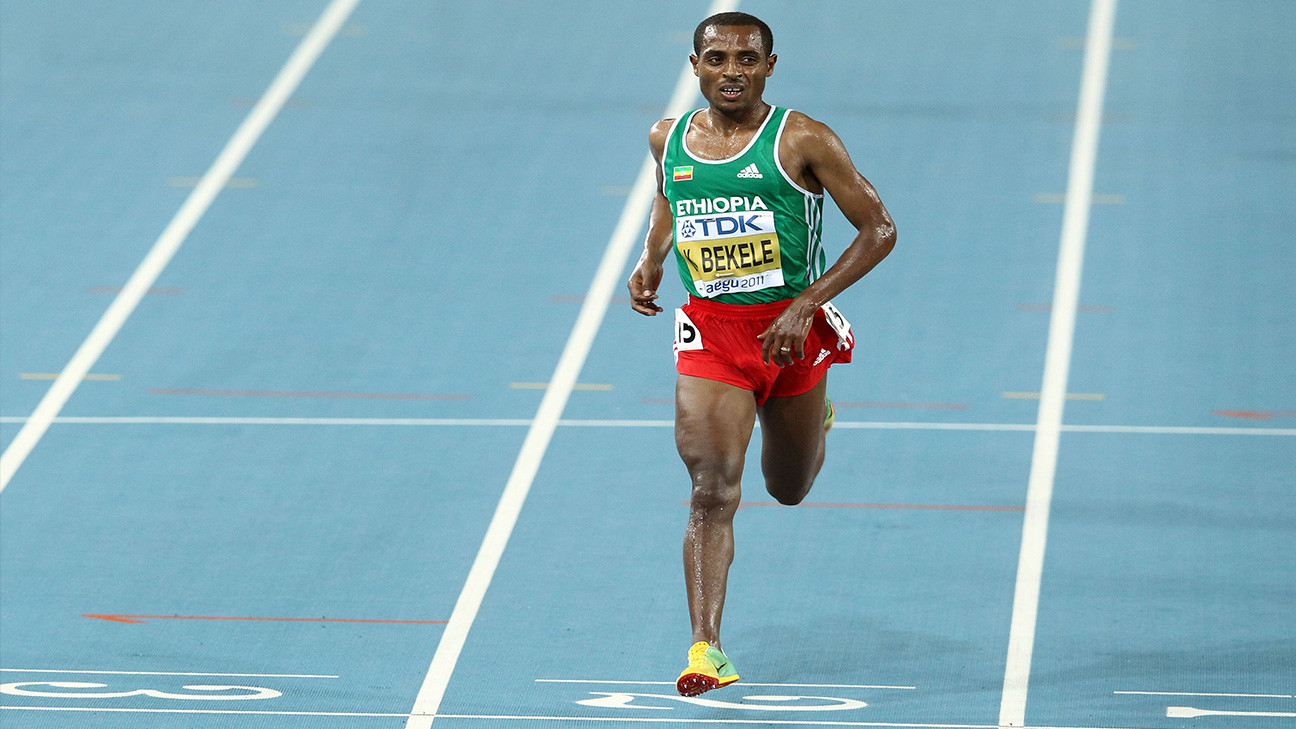
Debebe told us that Bekele started off the letter by reminding the federation that he’s got an amazing resume of success in representing Ethiopia in the past. He’s very proud of his past performances on the world stage while representing the country, as was everyone in the country. He hopes to do so again in 2021 or he says he’ll have to consider “another option.” He also complained that in 2016 he was left off the team according to what he said was discrimination.
We asked Debebe if he thought Bekele’s appeal would be successful and he said yes. In fact, he guaranteed us that Bekele would eventually be named to the team. “His appeal is very powerful because it comes from Bekele. At the end, he says he will consider another option and that will get him a lot of support….Definitely, the federation is going to do something in my opinion.”
Debebe did add that he didn’t really agree that discrimination kept Bekele off the Olympic team in 2016 as while Bekele is from the Oromo tribe, so is Feyisa Lelisa who was selected and famously did his X protest.
Bekele is not the only notable athlete who will be missing Saturday’s Olympic trials, which will be contested over 35 kilometers rather than the 42.2-kilometer marathon distance. A reliable source confirmed to LetsRun.com that Birhanu Legese and Mule Wasihun will both miss out as well.
(04/30/2021) ⚡AMPby LetsRun
Canada wants athletes vaccinated ahead of Olympics
In the wake of the International Olympic Committee’s (IOC) second playbook announcement on Wednesday, top officials from Athletics Canada (AC) are calling for all athletes competing in this summer’s Olympic and Paralympic Games to be vaccinated before heading to Tokyo.
In an interview with CBC Sports, Athletics Canada CEO David Bedford called it a matter of “national interest” to have all athletes and support staff heading to Japan fully vaccinated before leaving the country. He argued that if the government is already expecting most Canadians to be vaccinated by July 1, it only makes sense that we would prioritize these people, who are heading into what he called a “potential petri dish.”

“We’re not asking for something that isn’t happening all over the world. Even Kenya has vaccinated their athletes,” he added. “I would love to see the government come out and say this is in the national interest, these athletes represent all of us, so let’s get this taken care of so everyone is safe and healthy.”
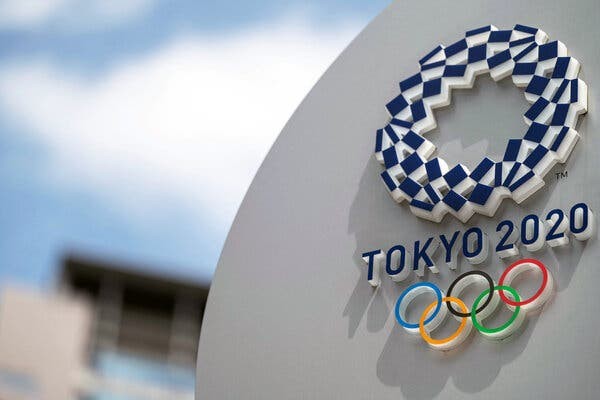
The recent surge in COVID-19 cases in Japan has many people concerned that the Olympics could turn into a public health disaster, despite the protocols officials will be taking to ensure participant safety. Many countries, including Australia, have already announced they will be vaccinating their athletes ahead of the Games, but David Shoemaker, CEO of the Canadian Olympic Committee, maintains the organization’s original stance that athletes will not be given priority vaccinations.
“We maintain that Canada’s front-line workers and most vulnerable populations should be the priority for vaccinations,” he said. “With the growing numbers of vaccines available to Canadians, we are hopeful that athletes will have access to them prior to Tokyo, which would provide an additional layer of protection to the significant countermeasures that have been put in place.”
The biggest takeaway from Wednesday’s playbook announcement was increased testing, which mandates that athletes must provide two negative COVID-19 tests prior to boarding the plane for Tokyo. While this may help curb the spread of infection somewhat, many are concerned that the incubation period of the virus could render these tests useless. Infectious disease specialist Dr. Isaac Bogoch explained to the CBC that if an athlete is exposed to the virus, it could be two to five days before they start shedding it. This means they could have two negative tests before leaving Canada, but still test positive upon arrival in Tokyo. He added that vaccinating athletes isn’t a perfect solution, but it is a key way to ensure all 15,000 athletes competing in the Olympic and Paralympic Games stay safe.
“Vaccinations for all athletes,” he said. “We’re in the vaccine era. It’s not foolproof, but again this is serious. The variants of concern are more transmissible.”
The Olympics are set to begin on July 23, and as of now, the IOC has maintained they will take place no matter what.
(04/30/2021) ⚡AMPby Brittany Hambleton
Tokyo 2020 Olympic Games
Fifty-six years after having organized the Olympic Games, the Japanese capital will be hosting a Summer edition for the second time, originally scheduled from July 24 to August 9, 2020, the games were postponed due to coronavirus outbreak, the postponed Tokyo Olympics will be held from July 23 to August 8 in 2021, according to the International Olympic Committee decision. ...
more...2021 Flying Pig Marathon is coming back, Marathon will run this fall in-person
The Flying Pig Marathon is coming back! Executive Director Iris Simpson Bush says the marathon will run this fall over Halloween weekend.
“As of Oct. 29 through Oct. 31, Flying Pig events will be returning in person. We know that 2021 can't look exactly like the Flying Pig has looked in the past but we are so excited to be coming back in person,” Simpson Bush said.
Specifics on the race are still being worked out especially with COVID-19 guidelines changing often. Bush says they’ve coordinated with the local health departments and will stay in contact as the race gets closer.“I think that it's fair to say we have held off this long because safety measures for our participants, volunteers and the community at large is of primary importance,” Bush said.
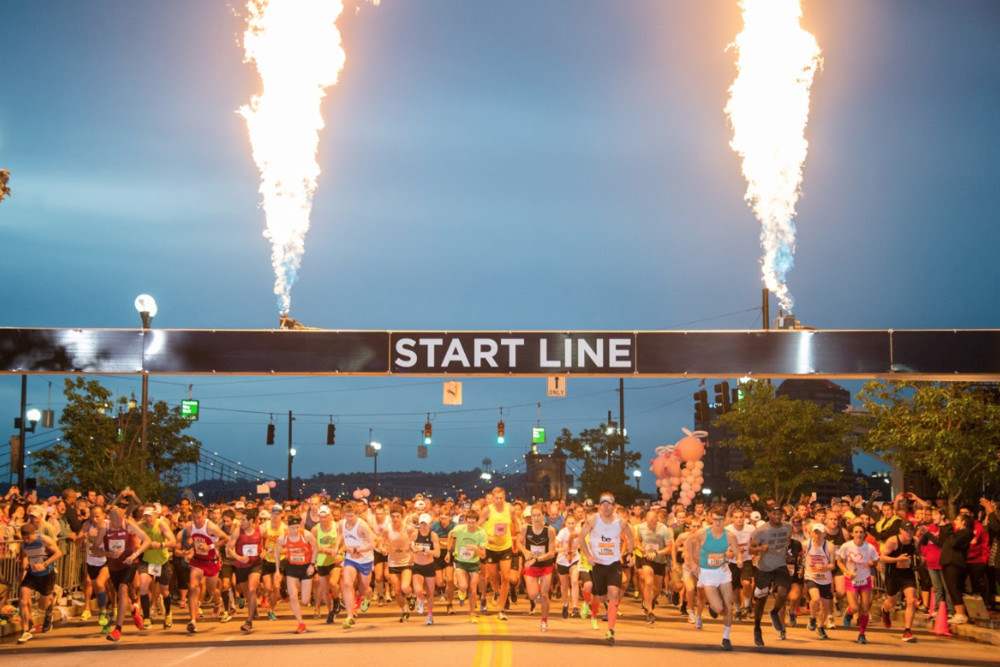
As for the runners themselves, Bush says their expecting a lot of new faces even though they aren’t sure what their capacity will be just yet.
“The research says that the industry is likely to attract a bunch of newbies because for many people it's the only thing they could do during the pandemic,” she said.This weekend, the virtual event is set to host around 5,500 participants.
The hope is this Cincinnati staple event will be a step toward normalcy as they plan for the return of runners from all 50 states and around the world.“Call it our return to flight. This year we plan to soar,” Bush said.
If you are signed up for the virtual event, you’ll have the first opportunity to sign up for the in-person event. Registration for the public will open up on May 10.
(04/30/2021) ⚡AMPby Steven Albritton
Cincinnati Flying Pig Marathon
This beloved race found it's name from Cincinnati's pork history which dates back to the early 1800's. Cincinnati is also known as "Porkopolis."Our weekend line up of events are designed to welcome athletes of all abilities from the Diaper Dash to the full Marathon and everything in-between, we truly have something for everyone. We even added a dog race several...
more...Dave Proctor set to start TransAlberta run on Friday, he hopes to finish in 72 hours, and fans can track him the whole way
Canada’s Dave Proctor will start his TransAlberta FKT (fastest known time) attempt on Friday at 9 a.m. MDT, kicking the challenge off at the Alberta-B.C. border. He’ll follow the Trans-Canada Highway all the way across Alberta for 537K before reaching the border with Saskatchewan. Proctor hopes to complete this run in 72 hours or less, which would set the TransAlberta FKT and break his own national 72-hour record of 500K. The run starts Friday morning, and anyone interested in following along can track Proctor’s progress.
Proctor has had multiple Canadian and world records to his name, and he is the current national record holder over 24, 48 and 72 hours. His original plans for this spring involved running across the entire country in an attempt to set a cross-Canada speed record. He had actually hoped to complete that run in May 2020, but the pandemic forced him to postpone. Those plans have been put off once again due to COVID-19, but Proctor didn’t want to let his fitness go to waste.
Certain province-to-province travel might not be allowed right now, but Proctor is free to run within Alberta’s own borders, so he decided to shift his focus to a shorter but still gruelling challenge. While he hoped to complete his cross-Canada run in around 67 days (which would beat Al Howie‘s 1991 record of 72 days on the 7,200-kilometre route), Proctor will now look to run across Alberta in three days or less.
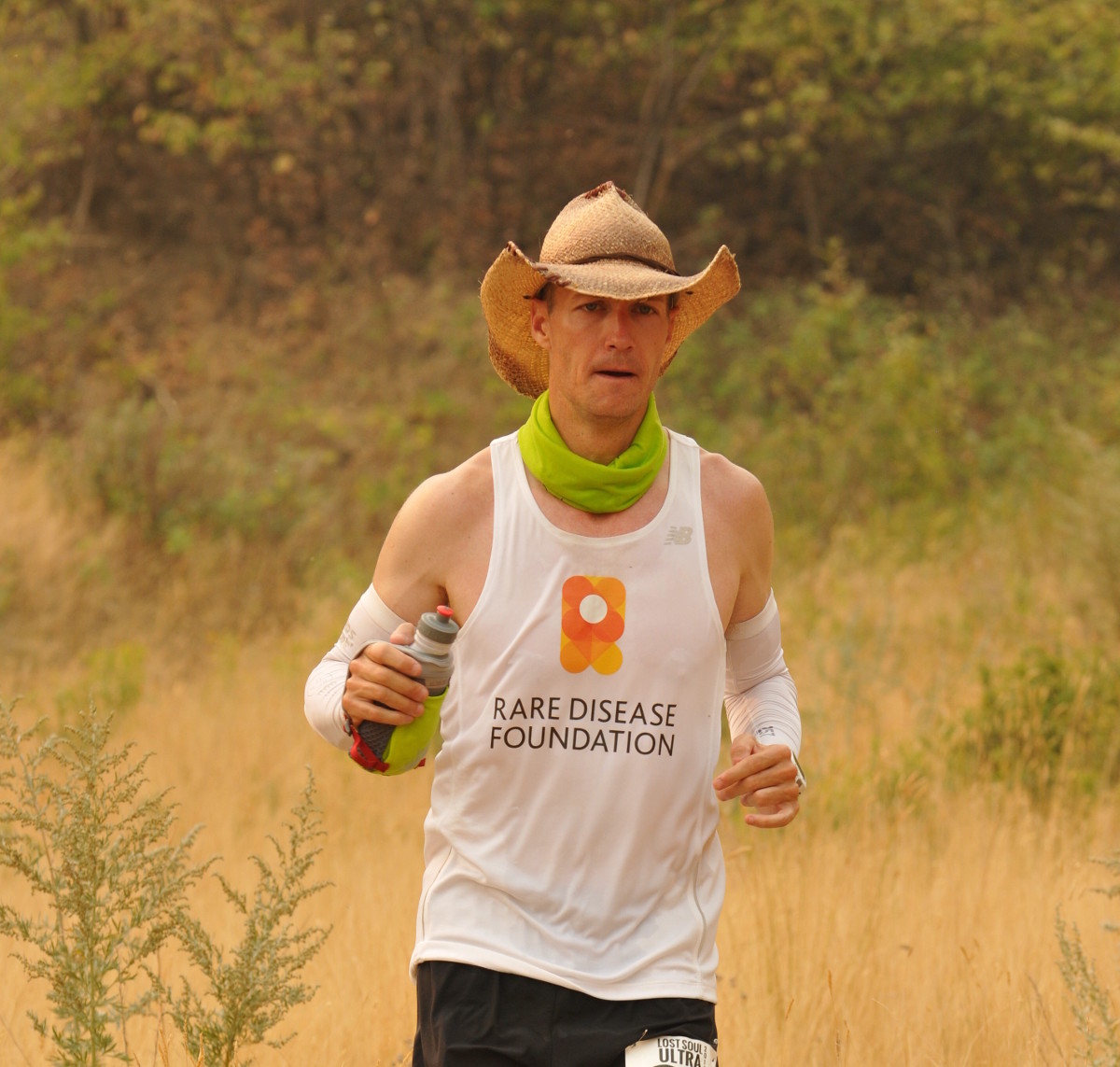
“I have all this fitness, and I wanted to put it to the test,” Proctor said after announcing his run. “I wanted to go out and test myself with something really, really hard.”
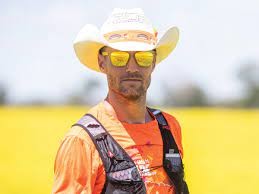
The coast-to-coast run would have been supported, but Proctor will be all alone during the TransAlberta FKT, pushing his food, water and other supplies in a stroller.
kilometer“After 200 miles, I can’t really say what the pacing strategy will be,” he said. “From there, it’s just a sustained effort and I have to hold on for dear life and pray that I make it in time.” More and more races are cropping up around the world after so few events last year, but the total is still far from where it was before the pandemic.
Proctor’s run isn’t an official race, but it is a chance for fans of the sport to watch something exciting and special. Follow his progress on the route here (his dot and route won’t appear on the map until he starts running) and check out his Instagram page for updates over the weekend.
(04/30/2021) ⚡AMPby Ben Snider-McGrath
Chevron Houston Marathon opens registration for 2022
The Houston Marathon Committee (HMC) will open its first window of registration – Guaranteed Registration – for the 2022 Houston Marathon Weekend of Events this Saturday, May 1, with Open Registration available to all runners on June 2, 2021.
The in-person race for the 50th Anniversary Celebration of the Chevron Houston Marathon and the 21st annual Aramco Houston Half Marathon will take place Sunday, Jan. 16, 2022, with the We Are Houston 5K presented by Aramco and Chevron on Saturday, Jan. 15, 2022.
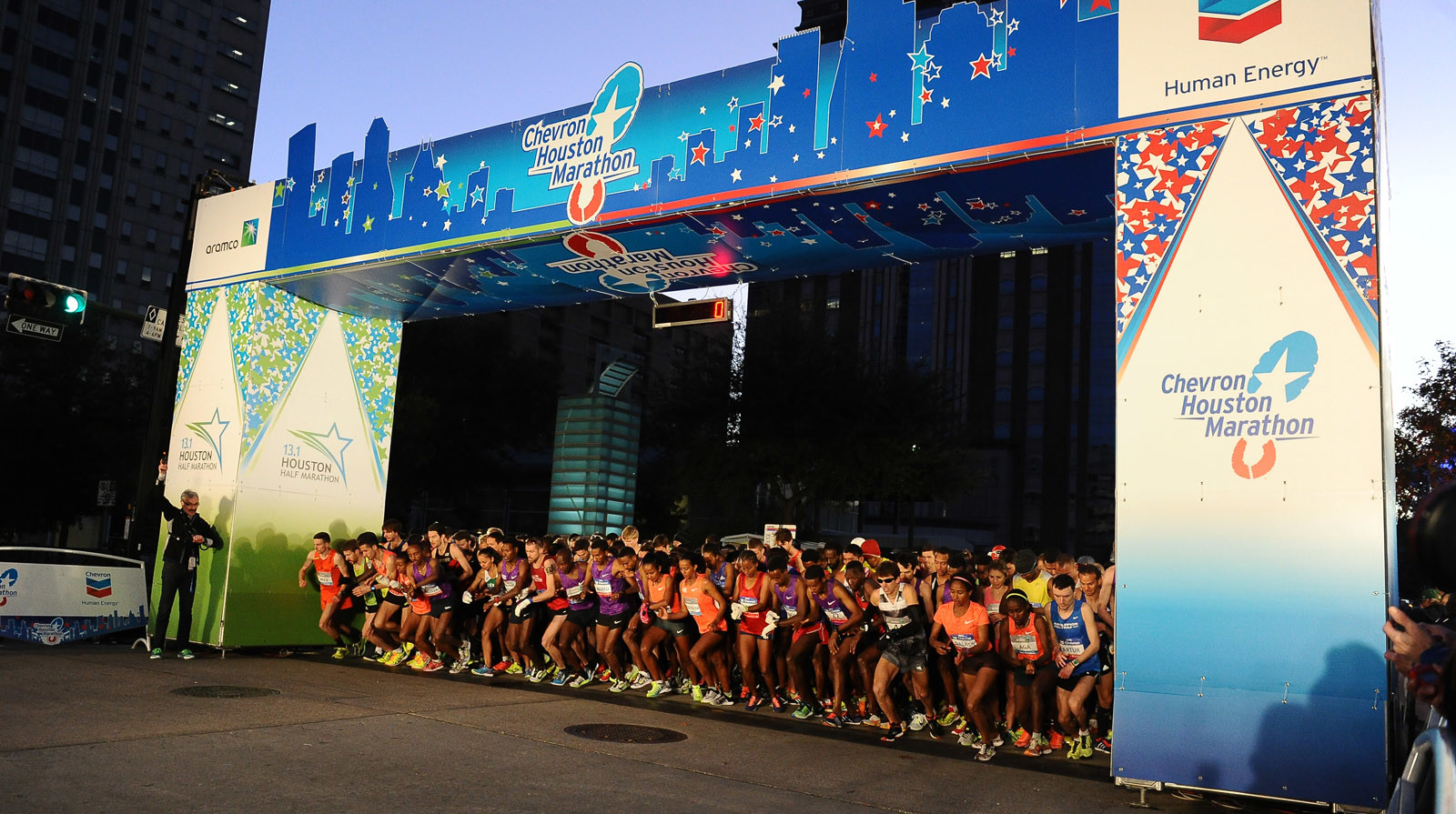
“We are grateful for the continued support from our running community throughout the past year and look forward to safely welcoming back our runners to the road in Houston,” said Wade Morehead, Executive Director of the Houston Marathon Committee. “Through thoughtful planning alongside our city partners, we are confident that 2022 will be an event year that successfully celebrates the history and camaraderie of our runners, volunteers, race partners, and spectators – all who have made this event possible for the past 49 years.”
(04/30/2021) ⚡AMPChevron Houston Marathon
The Chevron Houston Marathon offers participants a unique running experience in America's fourth largest city. The fast, flat, scenic single-loop course has been ranked as the "fastest winter marathon" and "second fastest marathon overall" by Ultimate Guide To Marathons. Additionally, with more than 200,000 spectators annually, the Chevron Houston Marathon enjoys tremendous crowd support. Established in 1972, the Houston Marathon...
more...Former NCAA champ Justyn Knight wants to double at the Tokyo Olympics
After missing the Olympic qualifying standard in the 1,500m by only 85 one-hundredths of a second at the USATF Grand Prix in Eugene, Ore., on Saturday, Canada’s Justyn Knight told CBC News that he is open to the possibility of running both the 1,500m and the 5,000m at the Tokyo Olympics, should he achieve standard in the event. His time of 3:35.85 was a personal best, but the 24-year-old says he knows he can do better.
“I wasn’t pleased with the time I ran,” he told the CBC. “I know I’m better than that, but I felt good.”
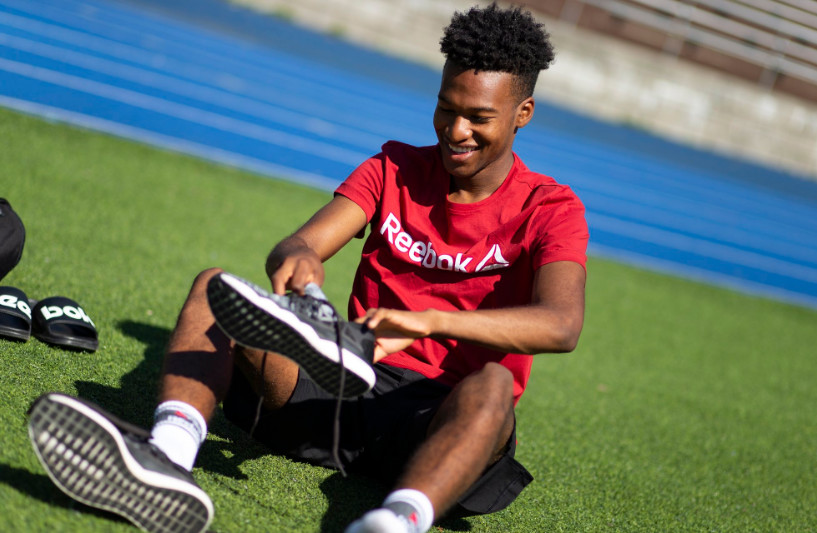
We tend to agree with the Markham, Ont., native, considering the conditions on Saturday were windy and rainy, far from ideal for a track race. On top of that, the young athlete explained that he hadn’t done any speed training leading up to this race, so he didn’t have his usual finishing kick we’ve come to associate him with.
"The last 400, I wasn’t able to accelerate the way I usually would,” said Knight. “It’s just embarrassing how the race got away from me with a lap to go.”
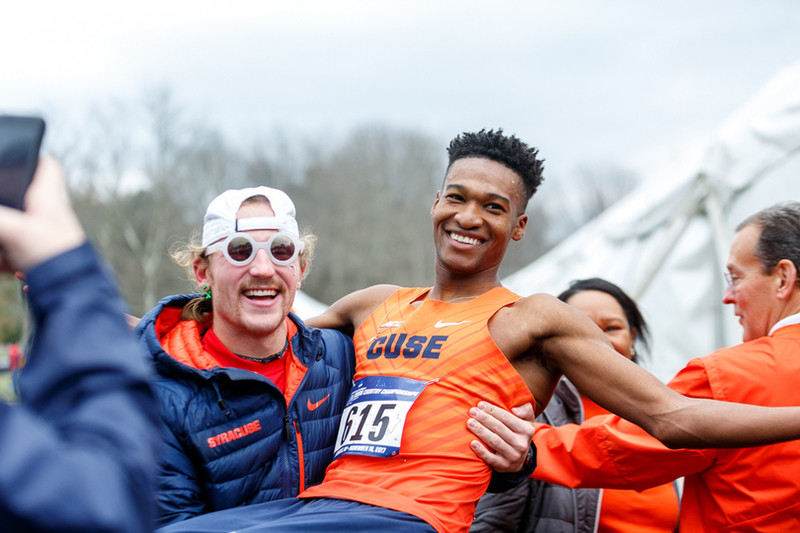
Knight holds the Canadian record for the indoor 1,500m with a personal best of 3:36.13, but isn’t sure he’ll have another opportunity to run the outdoor standard before the Games. Instead, he said he will now be shifting his focus to the May 23 Diamond League season opener in Gateshead, U.K., where he’ll be racing in his first 5,000m of the outdoor season.
He fell just 1.36 seconds short of qualifying for the 2016 Rio Olympics, but this year he has already achieved standard in the event when he ran his PB of 13:09.76 in June 2019, and so it will be his main priority heading toward Tokyo. Still, he said doubling is “definitely something to consider” if he got standard in the 1,500.
“Right now, I am just focused on having a good season.”
(04/29/2021) ⚡AMPby Brittany Hambleton
Tokyo 2020 Olympic Games
Fifty-six years after having organized the Olympic Games, the Japanese capital will be hosting a Summer edition for the second time, originally scheduled from July 24 to August 9, 2020, the games were postponed due to coronavirus outbreak, the postponed Tokyo Olympics will be held from July 23 to August 8 in 2021, according to the International Olympic Committee decision. ...
more...2021 Copenhagen Marathon has been cancelled due to pandemic
The Copenhagen Marathon due to take place on May 16, 2021 has been cancelled.
Organizers said: “We unfortunately see no other option than cancelling this years version of the Copenhagen Marathon. The reason is that we are still awaiting the official guidelines for mass participation events, and we are getting so close that we are running out of time in regards to be able to organize and complete productions for the race.”
(04/29/2021) ⚡AMPCopenhagen Marathon
The race is special in many ways But one thing is the course around almost every part of Copenhagen. The course goes to Frederiksberg which is a very beautiful part of the city. Theres a fantastic atmosphere in the city, and a lot of spectators along the route. The course is pretty fast, and the field of elite runners is...
more...Protecht company will provide peace of mind for Boston Marathon participants
Protecht, the leading provider of financial security solutions for today's online economy, has been selected by the Boston Athletic Association to provide insurance coverage to participants who have registered for the 125th Boston Marathon, which will be held on Monday, October 11, 2021. The financial protection will be offered through Protecht's RegShield insurtech platform.
"The Boston Marathon is a crown jewel in the endurance/registration space, and we are delighted to align with the Boston Athletic Association to provide registration insurance for this world class event," said Bryan Derbyshire, Protecht CEO.

Participants who elect to purchase registration insurance through RegShield, will be able to have entry fees and the COVID-19 health and safety fee refunded for multiple reasons including loss of job, pregnancy, illness, and injury.
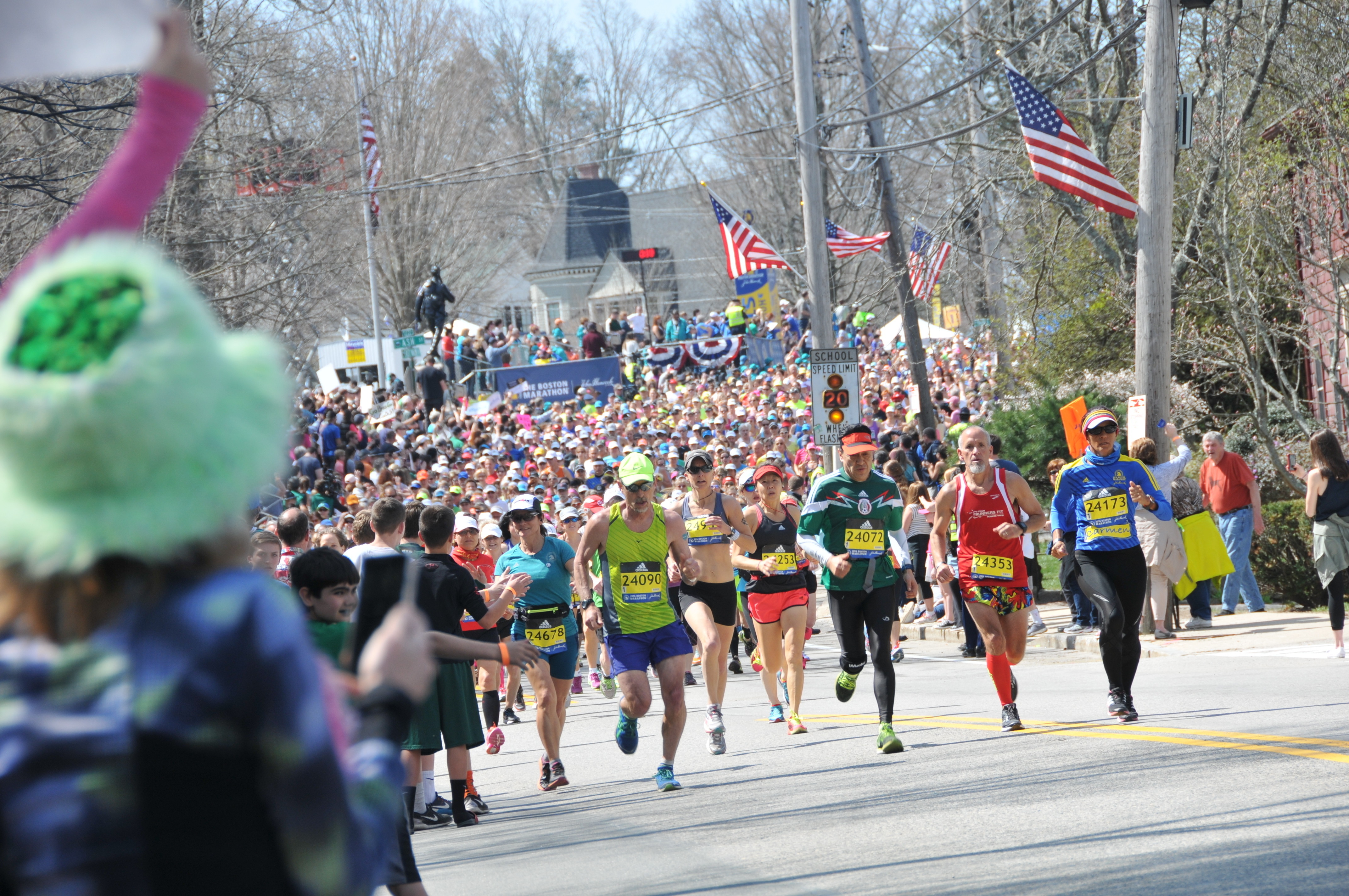
ProtechtProtecht, Inc. is a family of companies leveraging embedded technologies to distribute insurance solutions across today's sports, live entertainment and convention landscapes. We power our partners with financial and inventory control, security protocols, data analytics, customer engagement, and increased conversions. With over 100 years of combined experience in fraud, risk, insurance, finance and payments, our industry-leading technologies provide a robust economic infrastructure by giving peace of mind for business and consumers, while providing an end-to-end solution for our select insurance partners.
Protecht's RegShield platform provides the event organizers with the unique opportunity to offer financial protection within the registration space, giving athletes the option to cover their registration in case of injury, illness, or one of the 15+ covered reasons. The RegShield platform offers a wide variety of registration types and covers a range of event constituents, from everyday athletes and dedicated competitors to superfans and business professionals.
(04/29/2021) ⚡AMPBoston Marathon
Among the nation’s oldest athletic clubs, the B.A.A. was established in 1887, and, in 1896, more than half of the U.S. Olympic Team at the first modern games was composed of B.A.A. club members. The Olympic Games provided the inspiration for the first Boston Marathon, which culminated the B.A.A. Games on April 19, 1897. John J. McDermott emerged from a...
more...Sara Hall will aim to defend her Mini 10K title as professional athletes return to NYRR races for the first time since 2019 due to pandemic
The 2021 Mastercard New York Mini 10K, the world’s original women-only road race, is expected to host approximately 1,200 runners on Saturday, June 12, including the return of professional athletes to New York Road Runners races for the first time since 2019. It will be the first regularly scheduled and largest NYRR race to take place since the COVID-19 pandemic began and will follow comprehensive health and safety guidelines and procedures.
“We are thrilled to be bringing back the Mastercard New York Mini 10K and our professional athletes for a race that has inspired and empowered women in the running community and beyond for nearly 50 years,” said NYRR interim CEO Kerin Hempel. “NYRR will ensure a smooth and safe experience for all involved in the event through the health and safety guidelines we have developed with the City of New York and medical experts.”
The event, taking place in Central Park, will operate under NYRR’s Return to Racing guidelines. Health and safety procedures were developed under the guidance of public health officials and medical experts and in partnership with the City of New York and the NYC Department of Parks & Recreation. As part of NYRR’s commitment to health and safety, guidelines for the general runner field will include masks, temperature checks, increased and staggered starts, self-hydration options, hand sanitation stations, and limited race amenities to uphold adherence to social distancing. Race registration for the general public will open on April 22.
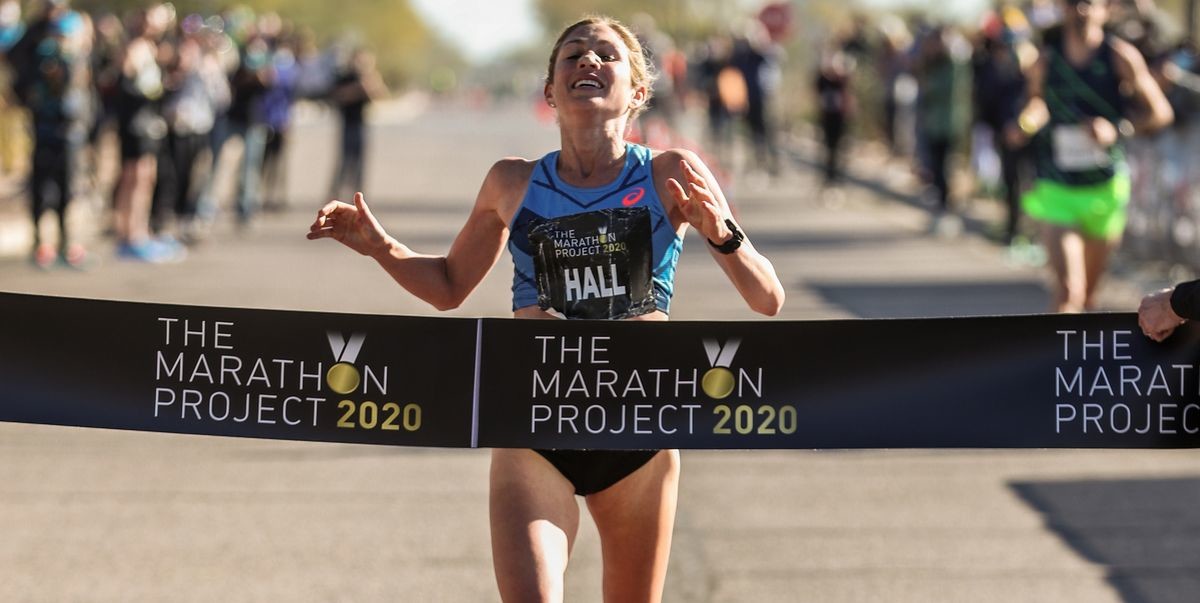
Sara Hall will headline the professional athlete field, looking to defend her title from 2019, when she finished first in a time of 32:27 in a race that doubled as the USATF 10 km Championships. Hall, who has eight national titles to her name, was runner-up (2:22:01) at the 2020 Virgin Money London Marathon last October and then in December clocked the second-fastest marathon ever by an American woman (2:20:32) at The Marathon Project in Chandler, Ariz. The year prior, she was the top American finisher and fifth overall (2:22:16) at the Berlin Marathon. Hall is the only athlete in history to have won the Mini 10K, the New Balance 5th Avenue Mile, and the Abbott Dash to the Finish Line 5K in New York.
“The Mini is such a great celebration of women, history, and running, and it was an honor to add my name to the winners’ list in 2019,” Hall said. “It’s been such a groundbreaking race in so many ways, so it seems fitting that it will be one of the first big events in New York City since the pandemic began. I’ve been really lucky to benefit from some cool new race opportunities over the last year, and it’s exciting to see the return of established and historic events like the Mini.”
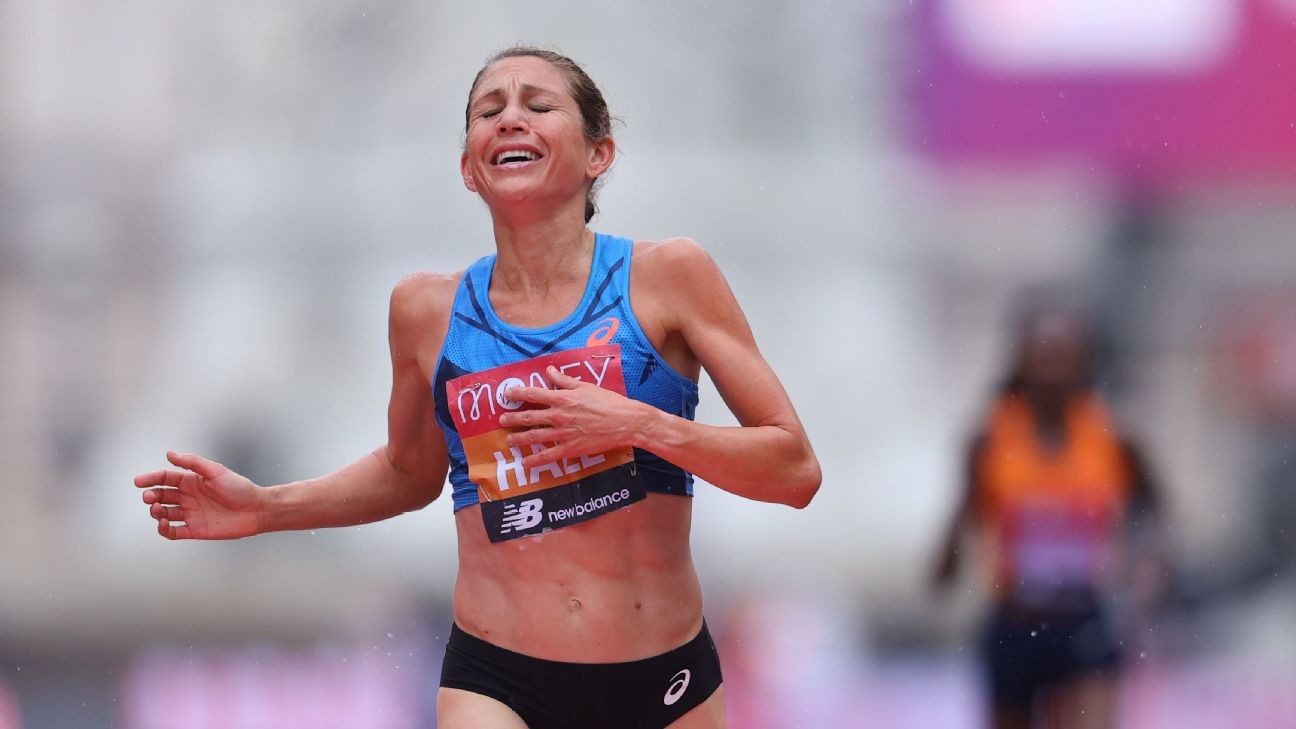
The professional athletes taking part will be in a controlled environment. The field will be required to provide proof of a negative COVID-19 test before traveling to New York and will undergo daily COVID-19 testing and tracing while in New York for the race. There will be a separation of the pro field and general field at the start, no guests will be allowed to accompany the athletes, and they will be required to wear masks at the start and finish. Additionally, there will be an elimination of touchpoints, including no large gatherings or in-person meetings until race morning.
The full professional athlete field – both the open division and wheelchair division – will be announced closer to the race; the event is the only all-women professional wheelchair race in the world.
The Girls’ Run at the Mastercard New York Mini 10K, a 1-mile race for girls ages 12-18, will follow the adult race, and there will also be a Virtual Mastercard New York Mini 10K, which runners can participate in from anywhere in the world from June 12-20.
Mastercard will serve as title sponsor of the event for the first time after becoming NYRR’s newest foundation partner in 2020. As part of its long-term partnership with NYRR, Mastercard will also serve as the presenting sponsor of professional women’s athlete fields at NYRR events and provide support to NYRR’s Run for the Future program.
“The New York Mini 10K is a momentous symbol of the perseverance and dedication shared by women all around the New York running community," said Cheryl Guerin, Executive Vice President of North America Marketing & Communications at Mastercard. "We are proud to partner with New York Road Runners on bringing this special race back and inspiring all New Yorkers to prioritize their health, wellness and exercise in their daily lives.”
From those who led the way 49 years ago, such as legends Kathrine Switzer and Nina Kuscsik and the event’s inaugural champion Jacqueline (Marsh) Dixon, to the more than 200,000 women who have finished the race since 1972, the Mini 10K has served as one of the most impactful women’s races in running history.
The event was founded as the world’s original women-only road race in 1972, and was first called the six-mile Crazylegs Mini Marathon. The Mini 10K got its current name when race founder Fred Lebow convinced the sponsor to support a six-mile “mini” marathon—named for the miniskirt, a big fashion trend of the times. Seventy-two women finished that first race, which helped show that women deserved to run in road races as much as their male counterparts. Three weeks later, Title IX was signed into law, guaranteeing women the right to participate in school sports and creating new opportunities for female athletes. The International Olympic Committee added the women’s marathon to the Olympic program for the first time at the 1984 Los Angeles Games, a decision sparked by the growth of women’s road racing, which was led by the success of the Mini.
(04/29/2021) ⚡AMPNew York Mini 10K
Join us for the NYRR New York Mini 10K, a race just for women. This race was made for you! It’s the world’s original women-only road race, founded in 1972 and named for the miniskirt, and it empowers women of all ages and fitness levels to be active and to look and feel great on the run. Every woman who...
more...Adidas Ad Features Orthodox Jewish Marathon Runner
Orthodox Jewish marathon runner and mother-of-five Bracha “Beatie” Deutsch stars in a new advertisement for Adidas.
Deutsch, 29, shared on April 20 the new Adidas Facebook ad, which features a partial view of her face and the message, “Where some see an Orthodox runner, I see my belief pushing me forward. Impossible is nothing.”
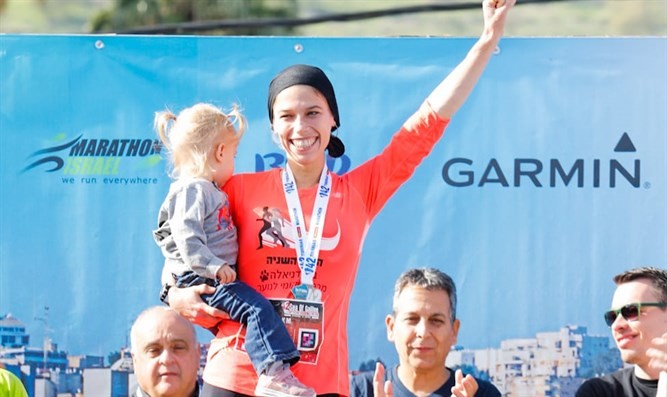
The US native, who moved to Israel a decade ago, also wrote a lengthy Facebook message about perseverance, saying, “if there’s anything I’ve learned from running, it is to stand strong and stay positive, to drown out the voices of self-defeat and hold on to faith. And that nothing is ever IMPOSSIBLE … Thank you @adidas for the opportunity to share this powerful message.”
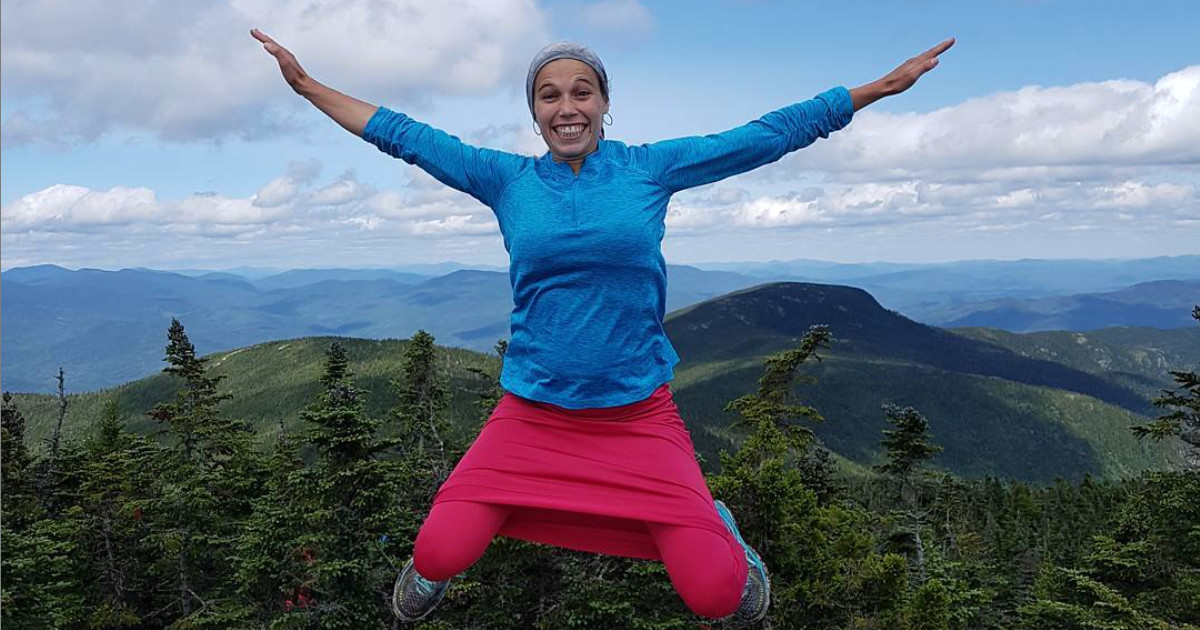
Deutsch is the Israeli national champion in the marathon and half marathon, according to her website. She was named one of the 50 most influential Jews of 2019 by The Jerusalem Post.
In 2016, she finished sixth in the Tel Aviv Marathon just four months after began running. She had dreamed of competing in the upcoming Tokyo Olympics, but recently lost a competition that would help her qualify for the Olympic Games.
(04/28/2021) ⚡AMPby Shiryn Ghermezian
Athletes and their close contacts will have daily coronavirus tests at this summer's Tokyo Olympics
"In principle, athletes and all those in close proximity with athletes will be tested daily to minimize the risk of undetected positive cases," Tokyo 2020 said in a statement.
Both athletes "and all those in close proximity with athletes will be tested daily to minimize the risk of undetected positive cases that could transmit the virus," Olympic officials said.
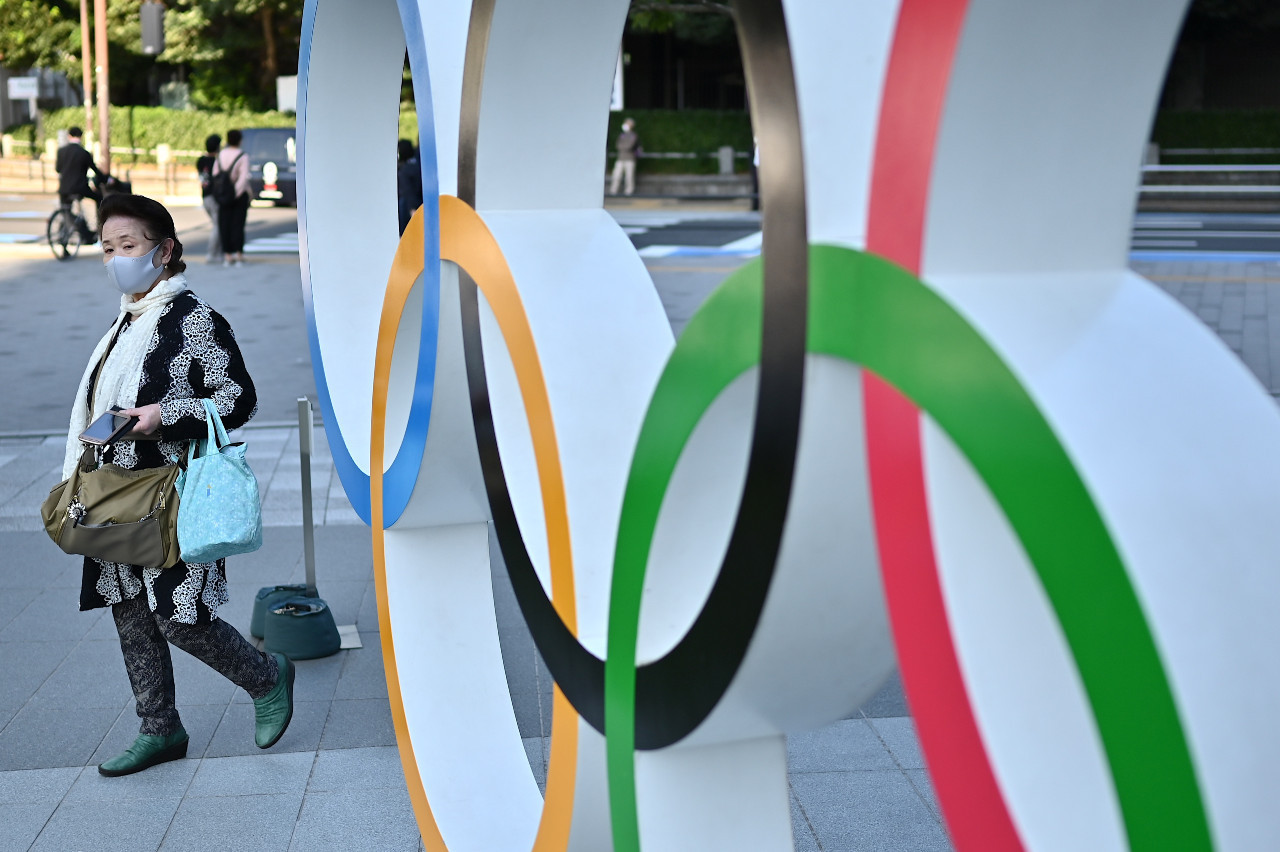
Other rules for Olympic participants will include a ban on the use of public transport and avoiding restaurants.

Olympic organizers hope that bolstering the rules will help build support for the 2020 Games in Japan, where polls show most people back either a cancellation or further delay.
"We are ready with you to take all the necessary measures to minimize the risks to make the Japanese people feel safe," International Olympic Committee chief Thomas Bach said at the start of the talks.
"Our top priority is health and safety for everyone –- not only for the participants of the Olympic Games but, first and foremost, also of our gracious hosts, the Japanese people."
'People are anxious'
Japan has seen a comparatively small virus outbreak, with just over 10,000 deaths, but it is now battling what experts call a fourth wave of the virus.
A new state of emergency was imposed on Tokyo and three other areas on April 25, and the government's top medical advisor warned Wednesday that discussions should start soon on how the Games could be held if infections remain high by the summer.
"What's very important is the situation of the infections and how overwhelmed the medical system is," Shigeru Omi told parliament in response to a question from an opposition lawmaker.
"I think it is time to discuss the Olympics," he added, while stopping short of calling for either a postponement or cancellation.
Olympic officials insist the Games can still be held safely, Hashimoto last week saying that organizers are "not thinking about cancellation".
"There are so many people who are looking forward to the Games," she said on Wednesday.
"But, on the other hand, there are a lot of people who are anxious. That's the reality, and we need to look at both sides."
Olympic chiefs took the unprecedented decision to ban overseas fans in March, in a bid to reduce virus risks.
(04/28/2021) ⚡AMPTokyo 2020 Olympic Games
Fifty-six years after having organized the Olympic Games, the Japanese capital will be hosting a Summer edition for the second time, originally scheduled from July 24 to August 9, 2020, the games were postponed due to coronavirus outbreak, the postponed Tokyo Olympics will be held from July 23 to August 8 in 2021, according to the International Olympic Committee decision. ...
more...Pacing fellow Paralympian Michael Roeger accidentally breaks marathon world record while pacing training partner
Australian Paralympic runners Jaryd Clifford and Michael Roeger both set marathon world records in their respective para athletics classifications on Sunday at the Athletics Australia Tokyo Qualifying Marathon in Sydney. Clifford, a visually-impaired athlete competing in the T12 classification, set out with the original plan to simply pace Roeger, who competes as a T46 athlete, as his right arm only goes until about his elbow. Clifford paced Roeger well, helping him to a new T46 world record of 2:18:53 before continuing on and completing the marathon himself and accidentally breaking the T12 world record after crossing the line in 2:19:08.
As Clifford, who competed for Australia at the 2016 Paralympics, wrote on Instagram, his world record came as a shock for a number of reasons. He had never run a marathon before, and the plan was never to complete the race. Instead, he wanted to pace Roeger for as long as he could, and then he would bow out. At around 36K, though, Clifford said he realized he was going to stick in the race until the very end.
“It hurt like hell, but it’s a day I’ll never forget,” he wrote. He crossed the line just 15 seconds after Roeger (who has much more experience in the marathon), beating the world record of 2:21:33 by more than two minutes. After the race, Clifford spoke to Athletics Australia, noting that he would never have guessed that he could have run such a fast marathon.
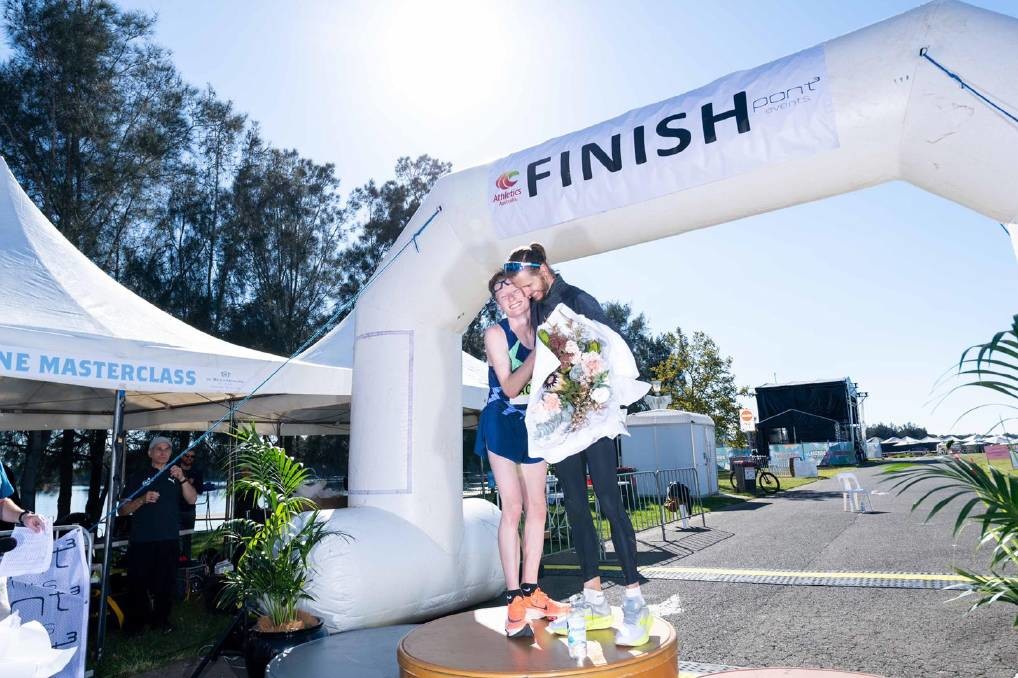
“I think [Roeger] asked me at 15K how many laps I had left in me, and I think I said I had two,” Clifford said. “Then I had one more, and then another. I feel a bit silly upon reflection, but I think psychologically all I was doing throughout the race was focus on Roegs.” Clifford may be an accidental marathoner, but if he chooses to focus on the longer race (he primarily competes in the 1,500m and 5,000m, two events in which he won gold at the 2019 World Para Athletics Championships), there’s no telling how quickly he could run.
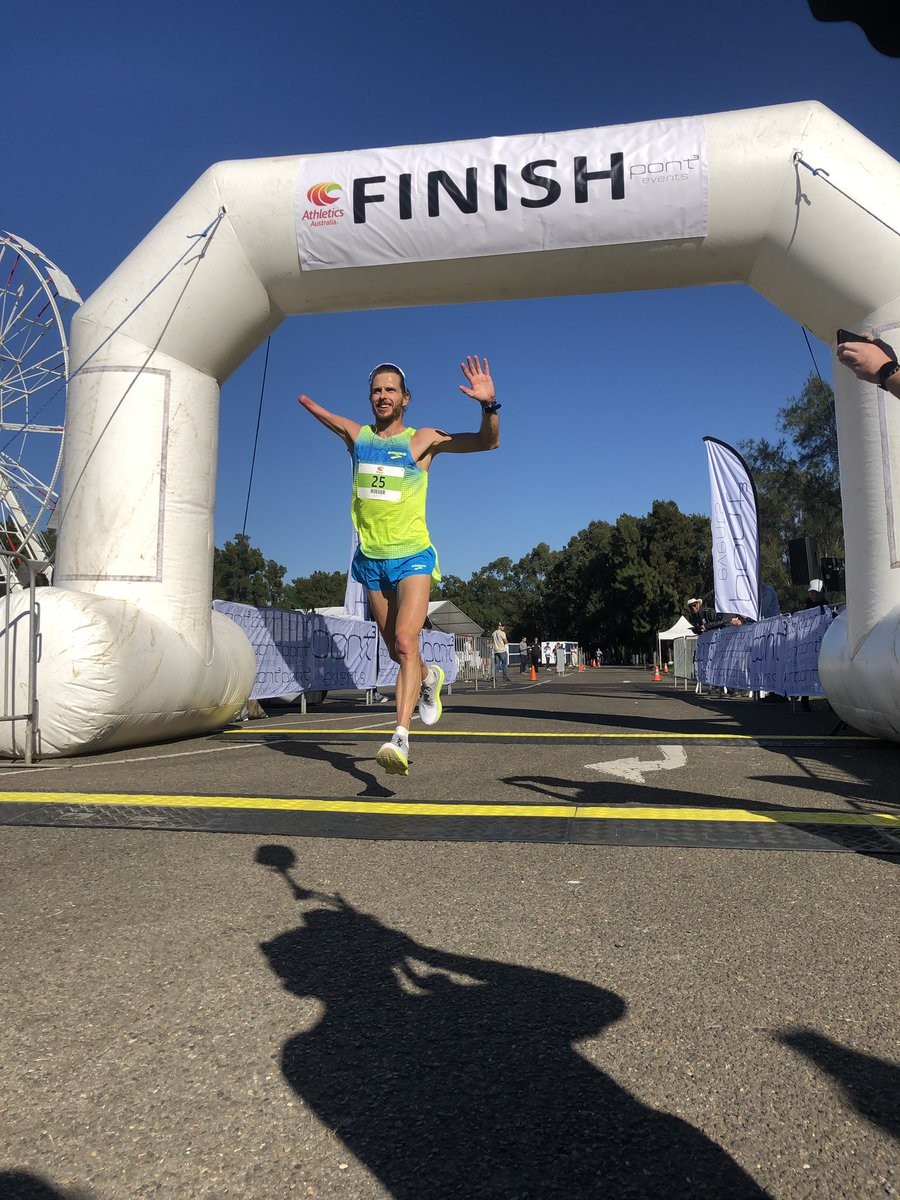
While his result in Sydney would easily qualify him for the Tokyo Paralympics, Clifford told Athletics Australia that he still plans to focus on the track this year. He has broken the T12 1,500m world record on multiple occasions in 2021, with the most recent coming in March after he ran 3:41.34 at a race in Canberra. He hopes to win gold in Tokyo in both the 1,500m and 5,000m.
Roeger, however, is all in on the marathon, and he will be looking to win gold in Tokyo. He is the reigning T46 world champion in the marathon, and the world record (which stood at 2:19:33) that he broke on Sunday was his own. Since debuting at the marathon in 2018, Roeger has broken the T46 world record four times (although his first race, which he ran in Melbourne, was not ratified). He will be the heavy favourite heading into this summer’s Paralympics, and if he wins gold, he will add to his lone Paralympic medal from 2016, which was a bronze that he won in the 1,500m.
(04/28/2021) ⚡AMPby Ben Snider-McGrath
Due to flight suspension India could miss Olympic qualifier world relays in Poland
Star sprinters Hima Das and Dutee Chand might miss the Olympic qualifying World Athletics Relays in Poland on May 1 and 2 as the Indian team's connecting flight to Amsterdam has been suspended following the record-shattering spike in the country's Covid-19 case load.
The women's 4x100m and the men's 4x400m relay teams were to board a KLM flight to Amsterdam in the wee hours on Thursday but the Dutch government has suspended flights from India effective Monday evening.
The Athletics Federation of India is trying to book an alternate flight available to any European city en route to Silesia in Poland where the event will be held.
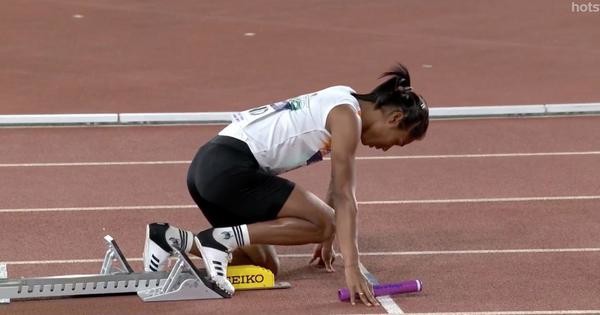
There is no direct flight to Poland from India."There is a serious doubt that our team may not be able to take part in the World Relays. Many European countries have suspended flights from India. So we may be stuck and there is a high possibility that the team may not go for the event," a top AFI official told PTI.
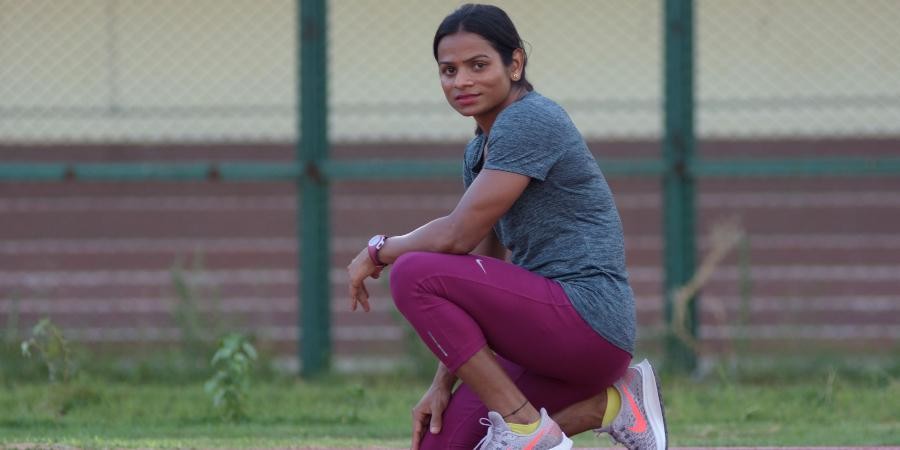
"But still we are trying, talking to the government and to our embassies if they can help our athletes to fly in any European city like Frankfurt from where they can proceed to Poland. We are also trying for any connecting flight to Dubai or any other West Asian city."
India will also field teams in the men's 4x400m in the event to be held in Chorzow, Silesia, in Poland.The top eight teams from the World Athletics Relays will automatically qualify for the Tokyo Olympics.
The women's 4x400m relay team has pulled out of the event as more than two members are unfit.
The Indian mixed 4x400m relay team has already qualified for the Tokyo Olympics after reaching the final during the 2019 World Championships in Doha.
The AFI was hopeful of the women's 4x100m relay team qualifying for the upcoming Olympics in Tokyo.The World Relays will be the first major international event for Indian sprinters since the Asian Athletics Championships in Doha in April 2019.
(04/28/2021) ⚡AMPHow COVID-19 has changed the Face of Running
Behind the scenes of ASICS’ “BE(AT) Your Personal Best” event.
It’s 8:00 am in the French woodland area of Morton, Domaine du Bois aux Daims, on April 24. Situated almost 300 miles from the country’s capital, a select group of Europe’s top runners, including Julien Wanders and Sondre Nordstad Moen, ponder at the start line of ASICS’ “(BE)AT Your Personal Best”, with some preparing for their first taste of competitive running in almost a year.
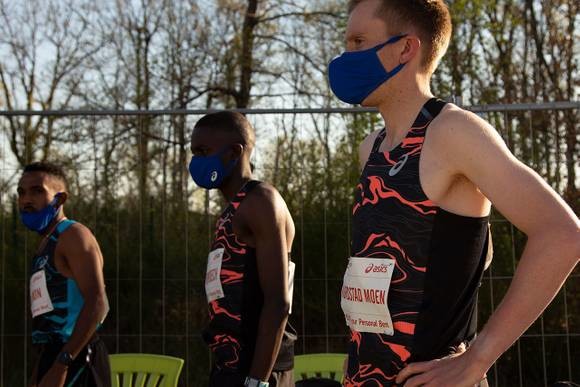
Lanyard-wearing event organizers disguised behind heavy-duty facemasks scurry around frantically with walkie-talkies and clipboards in hand, as a select few press and photographers scout out the best view points along the course.
While, from the outside, it might look like any other pre-race meet, the events past year have made things a lot more complex.
Of course a return to a resemblance of normal doesn’t come without its barriers. Following a number of elite-only events like last year’s London Marathon, a handful of behind-closed-doors championships have taken place across the world, many of which have resulted subsequent positive COVID tests. Such is the worry, more recently with the Tokyo Olympicsjust a few months away, both the Jamaican and U.S. relay teams joined a host of others in withdrawing from the upcoming World Relay Championships.
(Photos by Anne-Sophie Soudoplatoff)
This trial and error approach to the now-successful return of athletics has created many barriers to overcome for an event to go ahead which can be both time-consuming and costly — something of an issue to a sport renowned for its severe underfunding in a vast majority of countries. Such barriers, though, for ASICS(TOKYO:7936.T +0.68%) are seen more as a hurdle — and one they’re keen to clear.
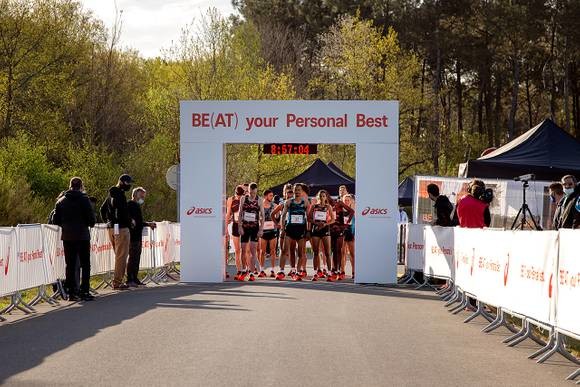
Taking place just West of Paris, in the heart of Nouvelle-Aquitaine, ASICS created a biosecure bubble within a Center Parcs location. Alongside negative COVID tests prior to travelling, upon arrival and before departure, each athlete resided alone in separate accommodation, with food and drink delivered to their doors.
For ASICS itself, the event was more than just another race. Three months in the making (a relatively short lead time in this field), the occasion marked the brand’s return to hosting live events and the follow-up to the launch of its new METASPEED Sky sneaker — ASICS’ answer to the “super shoe”. Equipped with a full-length carbon plate and a design that intends to improve its users overall performance, “(BE)AT Your Personal Best” was not only a test of the runners’ current condition in an Olympic year — but a test run of the sneaker itself too.
The 2.5km course saw runners head out along a wide asphalt path, before looping around a roundabout and back to the start. With near-on idyllic running conditions (a slight breeze, but nothing to be considered a headwind) and months of planning and testing behind them, the scene was finally set.
Pre-event much of the talk was about the current the European 10km and half marathon record-holder Julien Wanders’ planned attempt at attacking the 5km record too, but a bout of pneumonia two weeks prior saw him fall off the pace just over halfway. Instead it was Kenya’s Boniface Kibiwott who grabbed a personal best, winning in 13:24, followed by France’s Felix Bour (13:34) and Etienne Daguinos (13:36) who ran a new French under-23 record.
In the men’s 10km, pacer Hillary Kipkoech cruised to victory to set a new world-lead at 27:35, with Spain’s Jorge Blanco (28:27) and Sondre Nordstad Moen (28:35) almost a minute behind, while Sarah Lahti broke the Swedish women’s 5km record. Rounding things out was Mekdes Woldu who achieved a personal best in the women’s 10km with 31:47, finishing almost 2 minutes in front of Austria’s Julia Mayer (33:35).
In total, 24 of the 34 runners achieved personal best times in Domaine du Bois aux Daims, with one world leading time. And while these numbers and personal accolades are important — as well as the clear quality the METASPEED Sky brings — the real success story of ASICS’ “(BE)AT Your Personal Best” is a glimpse into the world of running’s new normal.
Whether these restrictions stay in place for years to come or they’re simply a temporary measure, its success bodes well for the upcoming Tokyo Olympics and how things might operate on a much larger scale – and suggests that the pandemic won’t keep sport down for long.
(04/27/2021) ⚡AMPby Tayler Willson
New modern pentathlon format for Paris 2024 gets thumbs up at test event
Modern Pentathlon test event have endorsed the new 90-minute format after the completion of four days of competition in Budapest.
Unlike the previous test events in Budapest and Cairo in 2020, different permutations of the format were rehearsed at the University of Public Service in recent days, with 12 athletes competing in the women’s final and 18 athletes taking part in the men’s final.
The new finals format begins with riding, followed by the fencing bonus round and swimming, before closing with the laser run combining shooting and running - with breaks of between five and 15 minutes in between each discipline..
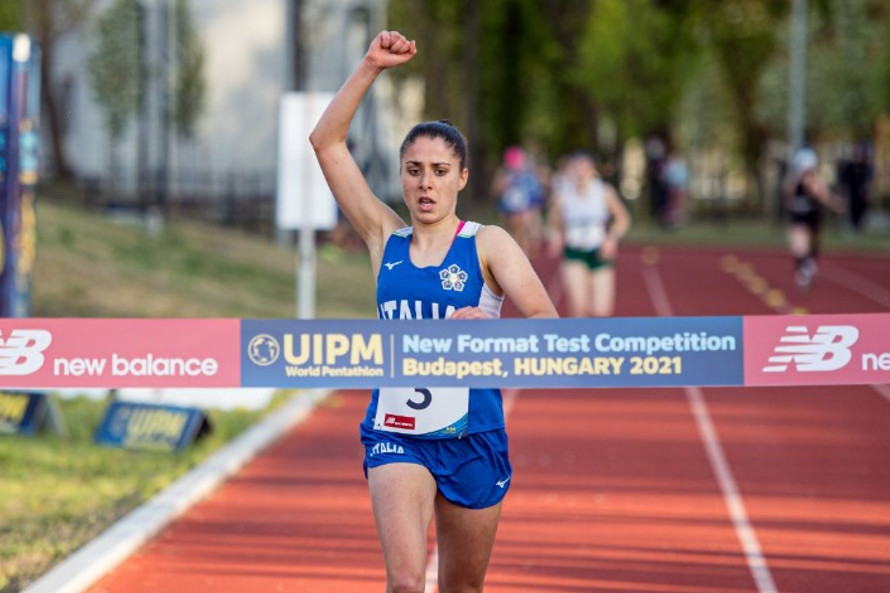
The programme being tested involves an equestrian leg lasting 20 minutes, followed by 15 minutes of fencing, 10 minutes of swimming and 15 minutes for the laser run - with breaks between events.
All disciplines were set to take place on the same field of play in Budapest, except for the fencing ranking round which were held on the opening day.
The International Modern Pentathlon Union (UIPM) claimed there would be no more than a 120-metre walking distance separating the swimming, fencing bonus round, riding and laser run courses.
"The format is designed to create a more compelling spectacle for TV and online viewers - and for on-site audiences like the Olympic Games spectators who will become the first to see all five modern pentathlon disciplines in the space of 90 minutes at Paris 2024,” a UIPM release said.
Asked for his impressions of the new format after winning the men’s final, UIPM Pentathlon World Cup and Pentathlon World Championships medallist men’s winner Pierre Dejardin of France, said: "It goes very fast, it's quite hard
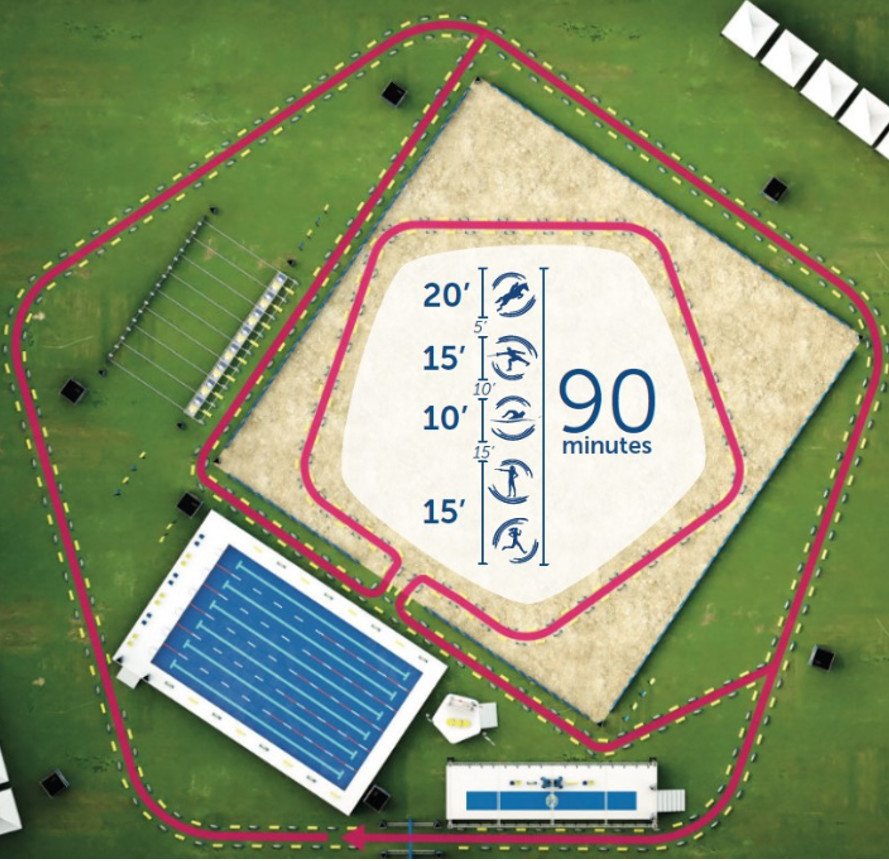
"The transition between swimming and Laser Run goes very, very fast.
"Shooting after swimming is really not easy but it brings a little something extra because it's harder, so you have to focus much more on the shooting than before.
"We start almost without warming up so we need to manage everything well.
"But it's interesting!
"Mentally, it's one and a half hours of intense pressure."
Asked if viewers might find the new modern pentathlon easier to follow and understand, Dejardin added: "Yes, definitely, because you can follow the whole pentathlon from beginning to end in only 90 minutes.
"Honestly, I am happily surprised that everything was running smoothly.
"Yes, it goes fast and it's harder but it's part of the change and we need this change so it's cool.
"I was a little scared because I didn't know how it was going to all work out.
"But in the end it doesn't change that much for us, even the 5 x 600m, and it's even better because it gives us an extra lap of running.
"It's all about managing your race."
Women’s winner Alice Rinaudo of Italy, the 2018 under-19 world champion, said: "I enjoyed the competition and I like this new format.
"I have to better manage the time but it can work really well and I like this sequence.
"One thing I would change is to have more time between Swimming and Laser Run - just five minutes more would be enough.
"If this can help to have more visibility or more spectators, obviously it’s important to change the format for Paris 2024."
UIPM secretary general Shiny Fang commented: "This is an exciting moment not only for our core Olympic sport but for the wider Olympic Games product.
"Our test events have proved that the new Modern Pentathlon format is not just a dream but a reality.
"We can all look forward with confidence to the implementation of the format in 2022 and to the very special moment when spectators at the Olympic Games will see all five disciplines of the Modern Pentathlon in a 90-minute showpiece."
"It’s important to have feedback from the athletes, coaches and trainers.
"We will study these documents and then we have to make some changes, or not – this is what we will find out in the next days.
"But I would like to underline that all the feedback so far from athletes, coaches and trainers from the 10 nations competing here have been nearly 100 per cent positive.
"It was much more than we thought we could achieve."
(04/27/2021) ⚡AMPby Mike Rowbottom
Paris 2024 Olympic Games
For this historic event, the City of Light is thinking big! Visitors will be able to watch events at top sporting venues in Paris and the Paris region, as well as at emblematic monuments in the capital visited by several millions of tourists each year. The promise of exceptional moments to experience in an exceptional setting! A great way to...
more...Eliud Kipchoge leads athletes in getting Covid-19 vaccination
Olympic marathon champion Eliud Kipchoge was among Kenyan athletes who received their Covid-19 vaccination at Kenyatta University Referral Hospital on Monday.
Also to receive their AstraZeneca jab were Olympic 1,500m champion Faith Chepngétich, Geoffrey Kamworor, the former World Half marathon champion and record holder and 2019 National Cross Country champion, Amos Kirui.
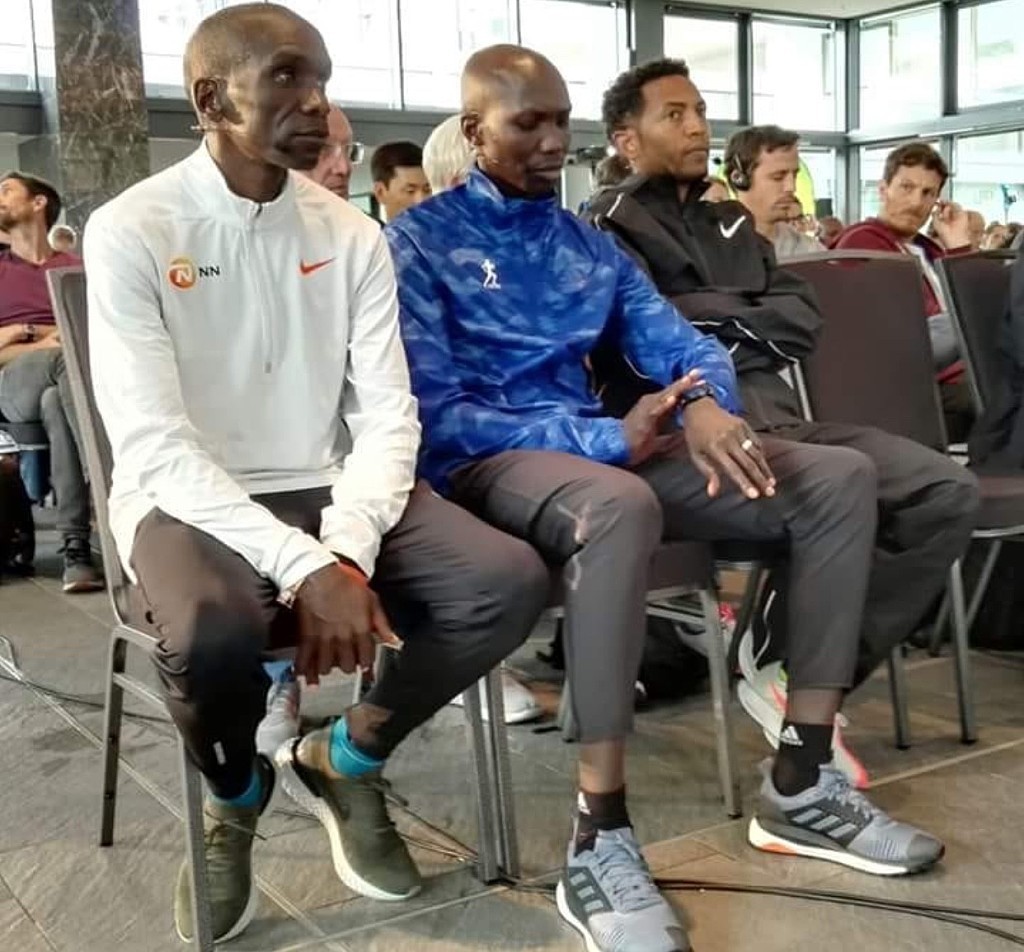
“The only other way we can conquer this pandemic is getting vaccinated, “said Kipchoge, who had just arrived from the Netherlands where he won the NN Mission in 2:04:30 on April 18.
“Taking the vaccination is also one way of helping us prepare for the Tokyo Olympics well since that Covid-19 vaccination certificate could in days to come be the ticket for the Games,” said Kipchoge, the marathon world record holder.
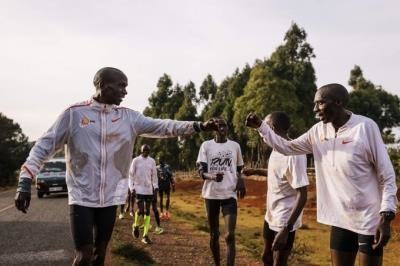
Cabinet Secretary for Sports Amina Mohammed oversaw the launch of the vaccination exercise for Team Kenya for the Olympic Games at Kasarani on April 8.
Amina said her ministry in collaboration with their health counterparts and Nairobi Metropolitan Services had secured 3,500 Covid-19 vaccines for Team Kenya going for the Tokyo Olympic Games and other teams for international assignments.
Amina disclosed that it’s their target to inoculate a total of 3,500 athletes, coaches, officials and athlete handlers across the country not only for Tokyo 2020 Olympic and Paralympic Games but other events.
Those who have benefited from the vaccine are all personnel working on Safari Rally, World Athletics Under-20 Championships in athletics, World Athletics Continental Tour’s Kip Keino Classic and the 2021 Rugby Africa U20 Barthes Trophy.
Others are Sports Kenya, the Kenya Academy of Sports, Anti-Doping Agency of Kenya, Sports, Arts and Social Development Fund and all Ministry of Sports frontline staffers.
(04/27/2021) ⚡AMPby Ayumba Ayodi
Hundreds of Japanese towns and cities have been forced to rethink plans to host Olympic teams because of the coronavirus
Japan's Olympic host towns pull out over pandemic.
The western town of Okuizumo spent more than $5 million preparing to welcome India's hockey team for a pre-Games training camp, only to scrap the visit because of Covid-19.
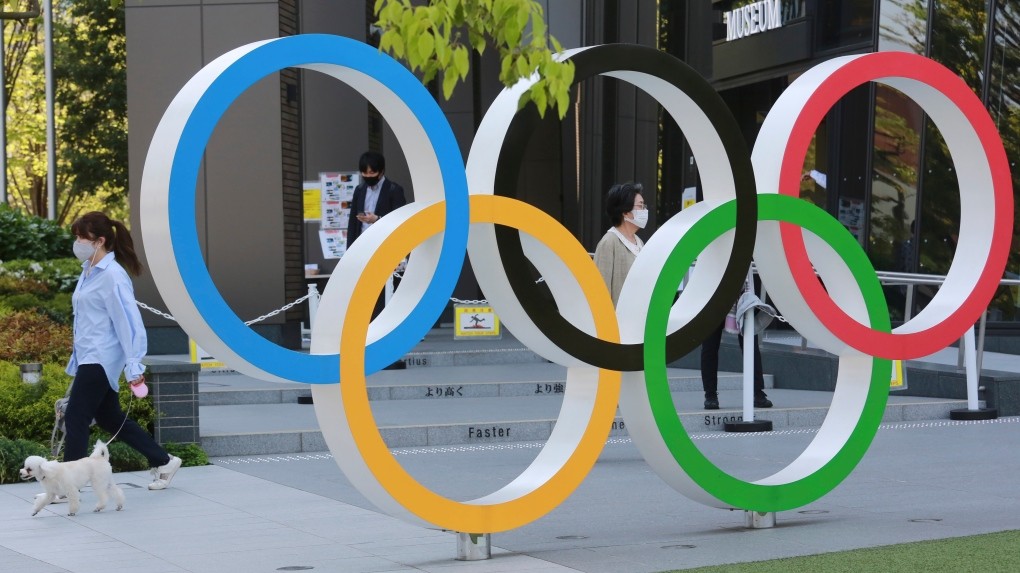
After sinking money into upgrading sports facilities, Okuizomo balked when it became clear it would have to provide bubble-like biosecurity measures with regular virus tests and medical care.
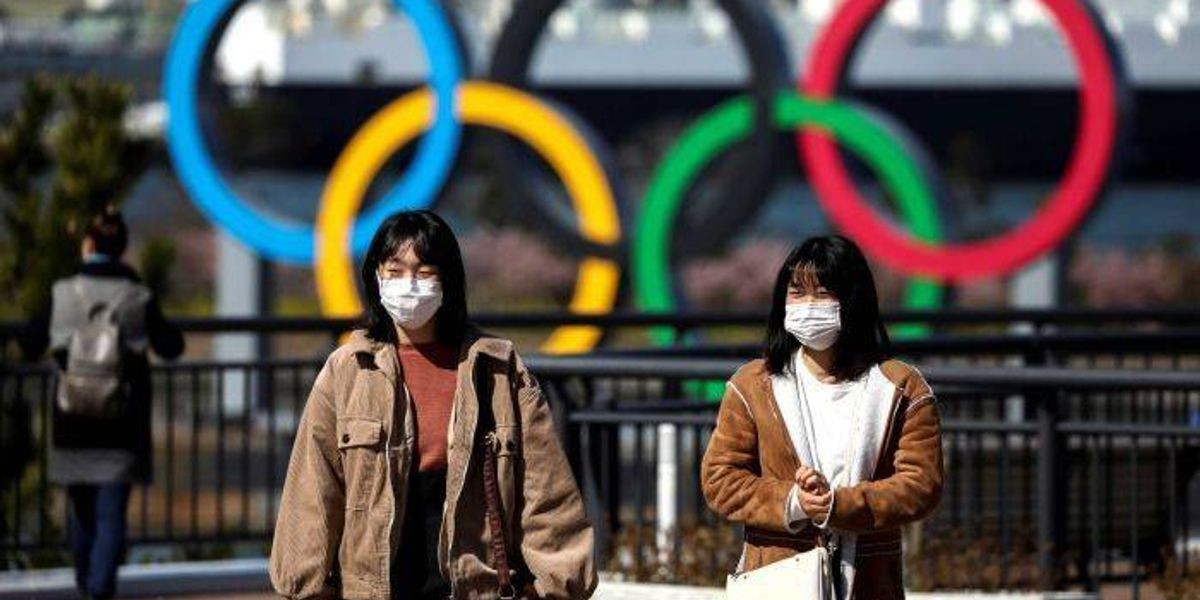
"We wanted to have one of the world's top tier teams visit our town and show their skills to local children," town official Katsumi Nagase told AFP.
"But that seems impossible now."
More than 500 municipalities signed up to host athletes and officials in a scheme aimed at broadening the Olympics' benefits beyond Tokyo.
Some, like Okuizumo, have already scrapped plans to host overseas athletes, while others are devising careful programmes they hope will keep everyone safe.
Instead of giving residents the chance to meet elite athletes and try out new sports, towns will have to ditch any physical contact, school visits and public training sessions.
Kurihara city in northern Miyagi prefecture was planning to host South Africa's hockey team, but decided the expense was no longer worth it given the limitations imposed by virus measures.
"It's a project that will use our tax resources," Hidenori Sasaki, an official with the local board of education, told AFP.
"If it becomes just athletes holding a training camp without any exchanges with local residents, local citizens won't enjoy the benefits."
In some cases, Olympic teams have cancelled, worried about the risk of infection before the Games.
Australia's swimming team ditched its plan to train in Niigata's Nagaoka city, its mayor told media in March.
And Canada's table tennis team will no longer go to Nagano's Okaya city, which instead plans to put posters of athletes around town, said Tomoko Hirose of the city's planning division.
"Our cheering may become a one-way engagement, without physical exchanges, but given the situation, we just have to move on," she told AFP.
(04/27/2021) ⚡AMPby AFP
Tokyo 2020 Olympic Games
Fifty-six years after having organized the Olympic Games, the Japanese capital will be hosting a Summer edition for the second time, originally scheduled from July 24 to August 9, 2020, the games were postponed due to coronavirus outbreak, the postponed Tokyo Olympics will be held from July 23 to August 8 in 2021, according to the International Olympic Committee decision. ...
more...Canada withdraws from World Athletics Relays due to COVID-19
Athletics Canada has confirmed its withdrawal from the 2021 World Athletics Relays, with it being the latest nation to pull out of the event in Chorzów in Poland.
Scheduled to take place on May 1 and 2, Canada joins Trinidad and Tobago, Jamaica and Australia in missing the event, while the United States reportedly has also withdrawn, but USA Track and Field has not confirmed this.
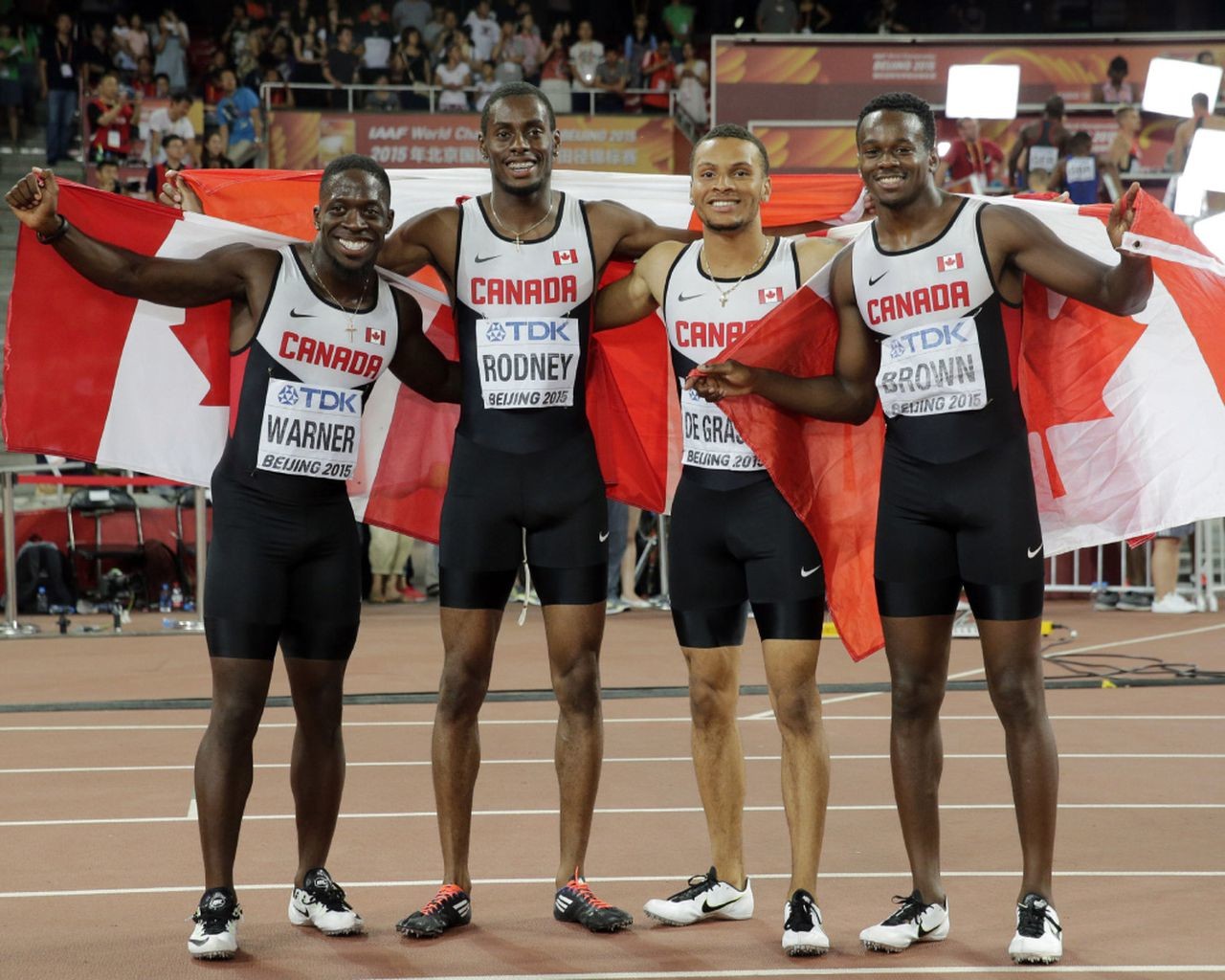
Athletics Canada made the decision in light of the COVID-19 situation in Poland, as well as a rise in cases in Canada and around the world.
The Canadian relay squad had been in Baton Rouge in Louisiana in the US over the past week to participate in its annual relay training camp.
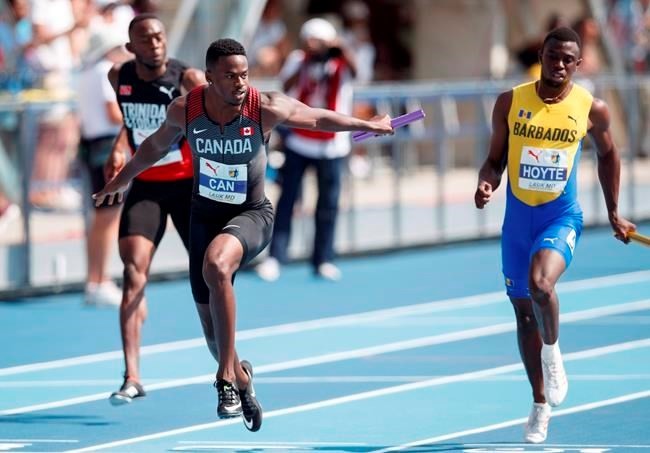
Before withdrawing from the competition, the Canadian team were set to practice with races at Louisiana State University.
"The safety of our athletes, coaches and staff is our top priority," said Athletics Canada's high performance director Simon Nathan.
"Though showing signs of improvement, Poland is reporting a very high level of COVID-19 and travelers are strongly encouraged to avoid all non-essential travel in and out of Poland, even those who are fully vaccinated.
"Most of the Canadian team is not vaccinated, neither are most of the people who will be involved with the competition, therefore, there are increased risks associated with gathering alongside others from different parts of the world.
"We know this is disappointing news given the implications it may have on qualifying for the Olympic Games - however, we made this decision with our team's health and safety at heart.
"If an athlete were to contract COVID-19, it will compromise their preparation for Tokyo - even if they are asymptomatic - as they will be required to self-isolate.
"It will also compromise everyone with whom they have had close contact with, as they will have to isolate regardless of their symptoms or a positive COVID-19 test.
"These issues are magnified for a relay team, as compared to individual events."
Canada had entered men's and women's 4x100 meters relay teams as well as women's and mixed 4x400m relay teams for the event.
Poland recorded 7,235 new cases of COVID-19 yesterday, with 193 new deaths.
(04/27/2021) ⚡AMPby Michael Houston
Canada´s Cam Levins runs unofficial Canadian record with 1:01:04 half-marathon time trial
The result won't count, but Levins's new lifetime best is 24 seconds faster than the national record.
Levins smashed the Canadian half-marathon record on Sunday, running an incredible 1:01:04 time trial near Portland, Ore. Since he didn’t run it in a certified event or on a real course, his time won’t count as an official record, but he still deserves a lot of credit for posting such an amazing time. Levins’s new unofficial PB is 24 seconds faster than the Canadian half-marathon record of 1:01:28, a time that Jeff Schiebler ran in 1999, and it adds to his official national marathon record of 2:09:25.
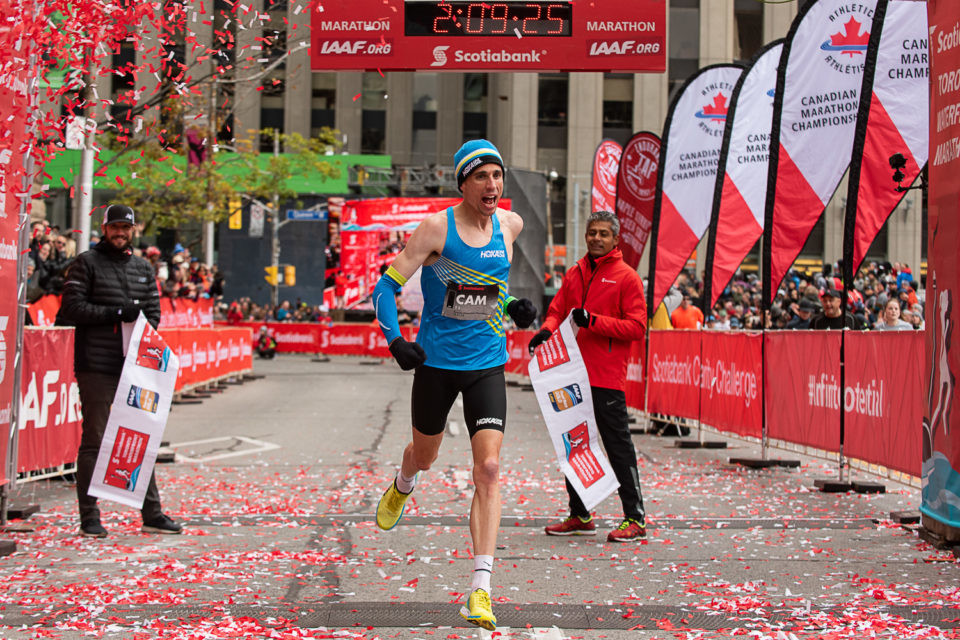
Levins seems to be as surprised as everyone else is by his new lifetime best, which he recorded on Strava. He posted on Instagram after his run, writing, “Accidentally ran an (unofficial) Canadian record in the half marathon this morning. 61:04 per Strava. Didn’t expect that, but pleasantly surprised.” Levins of course meant to go out quickly in the time trial, but it’s unlikely he thought he would come anywhere close to Schiebler’s 22-year-old record.
His official half-marathon PB is more than a minute slower than the time he ran on Sunday, sitting at 1:02:14. Levins ran this time at the Houston Half-Marathon in 2020, and it’s the fourth-best half-marathon ever run by a Canadian. He also owned an unofficial PB of 1:02:12, a result that he posted in a time trial last August. He managed to shatter both of those times on Sunday with his new unofficial best, which works out to a blistering average pace of 2:54 per kilometer.
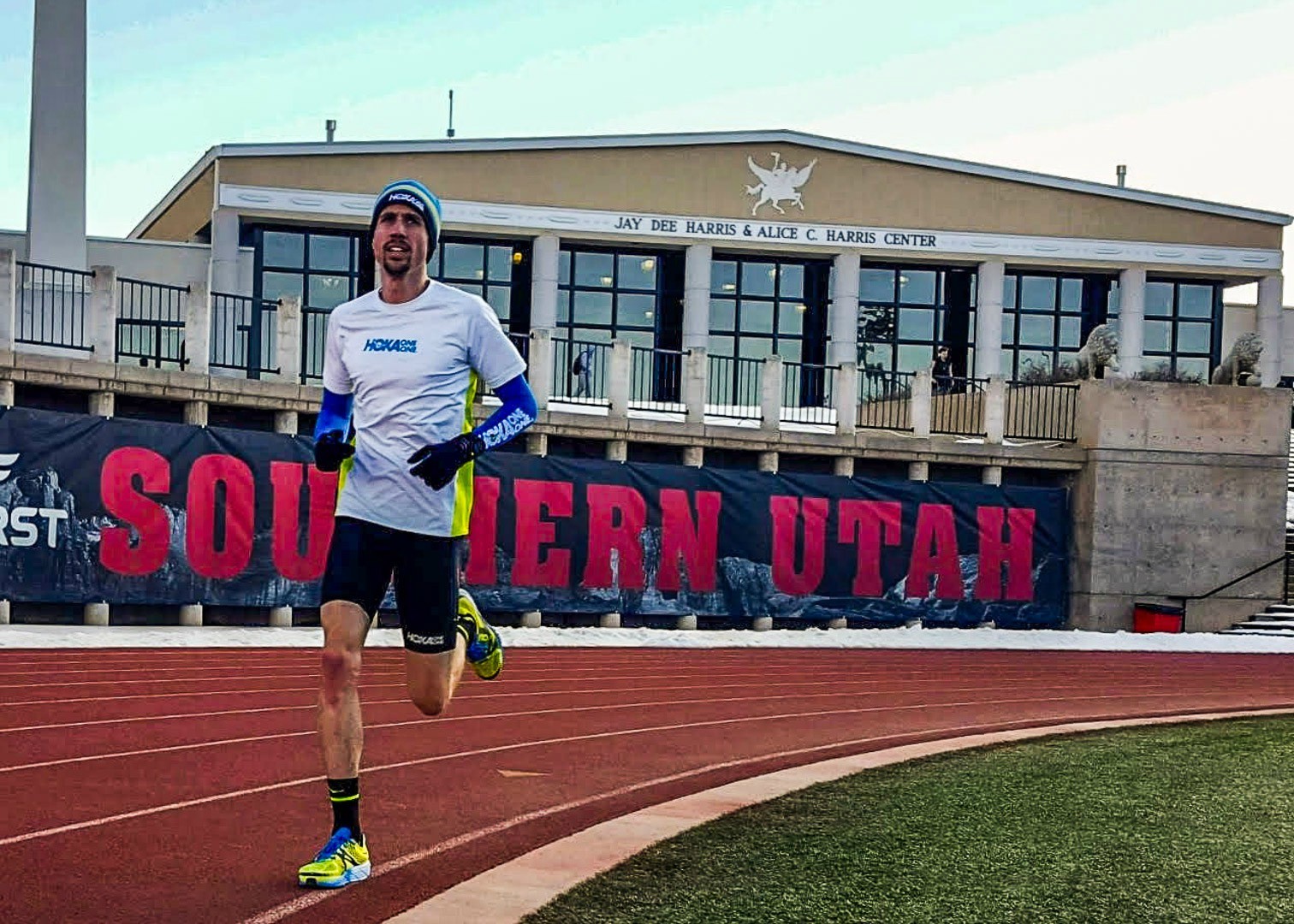
Back on Instagram, he wrote that he hopes to “get the chance to set [the record] in stone in the future” at a certified race. Regardless of the record books and his official or unofficial PBs, this run is a great chance for Levins to bounce back after a couple of disappointing results in the past year.
He kicked 2020 off with a great run in Houston, but he fell short of Olympic standard in his next two races (both of which were marathons). Sunday’s result is proof that he’s in the best shape of his life, though, and he might be able to use its momentum to carry him toward another big (and official) result in the coming months.
(04/26/2021) ⚡AMPby Ben Snider-McGrath
Pacer Great Britain's Jake Smith makes mid-race decision to run full marathon and wins in 2:11:00
British road runner Jake Smith ran an impressive debut marathon on Sunday, taking the win at the Cheshire Elite Marathon in Wales in 2:11:00. His win was a big surprise, not because he was an underdog in the race, but because he wasn’t supposed to finish the marathon at all. Smith started the race as a pacer, but after his planned exit point, he decided to keep running on a whim, and he carried on to the finish line far ahead of second place and well under the Olympic standard of 2:11:30.
Smith is one of the fastest British half-marathoners ever, and his PB of 1:00:31 (which he ran at the 2020 World Athletics Half Marathon Championships, where he finished in 18th) is third-best in national history, behind only Callum Hawkins (1:00:00) and British legend Mo Farah (59:32). His success over 21.1K made him a perfect pacing candidate to help marathoners through the first half of their races, and he did so on several occasions before Sunday.

In October, just two weeks before he ran at the World Half Marathon Championships in Gdynia, Poland, Smith paced a group of elite men (including Canadian Cam Levins) at the London Marathon. As Smith wrote on Instagram after that race, he led that pack through 21.1K in 1:03:45, and instead of stopping, he kept going for another mile or so before his coach told him he had to get off the course. “The marathon life is not for me just yet,” Smith wrote.
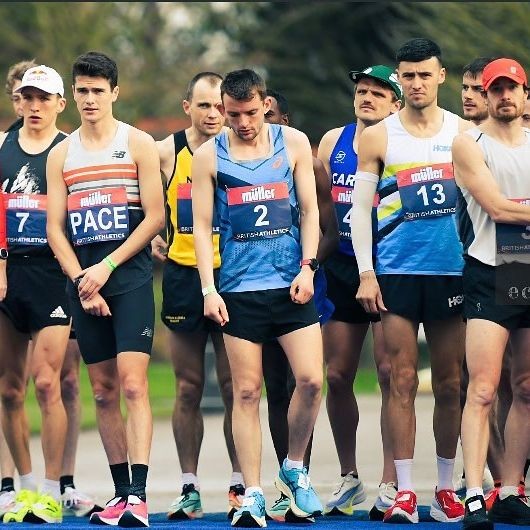
Next up was the British Olympic Marathon Trials, once again in London, in March. Back on Instagram, Smith wrote before the race that he planned to run 25K, leading the front pack through halfway in around 1:05:00. Again, he went farther than originally planned, sticking in the race until 29K, writing that he was “tempted at one stage to keep going.” He fought this impulse, though, and pulled out well ahead of the finish, again noting that he wasn’t ready to run a full marathon, saying, “[I] think I’ll pass on the distance for a few more years.”
It turns out that waiting period was actually only a few weeks, and on Sunday, just a month after his run in the British Olympic Marathon Trials, Smith was back on pacing duties, but this time he let the urge to keep running win. He entered the event expecting to pace elite men in both the half and full marathons, but at around 27K into the run, he decided to finish the race. “Looked down at the watch at like mile 17 and thought ‘sod it,’ let’s try to run the Olympic time,” Smith wrote on Instagram.
He had carried the leaders close to two thirds of the way at that point, and with his role as a pacer fulfilled, he shifted focus to his own goal — one that he hadn’t known he wanted to hit until that moment mid-race. He ran away from the rest of the field and closed impressively (despite never having run that fast for that long before), crossing the line in 2:11:00, 38 seconds in front of the second-place runner. Smith’s run now places him at 30th all-time among British runners, and he didn’t even train specifically for the event.
To add to his achievement, Smith’s debut marathon win came just four days after he won a 1,500m, also in Wales, in 3:50.89. After his run on Sunday, he wrote on Instagram that he plans to focus on the shorter event this season, and based on both times, he’s certainly capable of thriving at either distance.
(04/26/2021) ⚡AMPby Ben Snider-McGrath
Lithuanian ultrarunner Aleksandr Sorokin breaks 100-mile, 12-hour world records at U.K. race
Lithuanian ultrarunner Aleksandr Sorokin broke the 100-mile and 12-hour world records at an event in Ashford, U.K., on Saturday, setting marks of 11:14:56 and 170.309K in the two categories. These results beat American Zach Bitter‘s world records, both of which he ran at the Six Days in the Dome event in Wisconsin in 2019. According to Centurion Running, the company that organized the elite-only event, Sorokin also broke the 150K world record (10:27:48) and the Lithuanian 50-mile best (5:32:01) on his way to the 12-hour finish.
Sorokin is no stranger to big results, and his resume includes top finishes at the 2019 IAU 24-Hour World Championships, which he won with a total of 278K in 24 hours, and the 2017 Spartathlon ultra in Greece, where he completed the 246K course in a little over 22 hours. His list of accomplishments just got even more impressive, though, with his records from Saturday’s run.
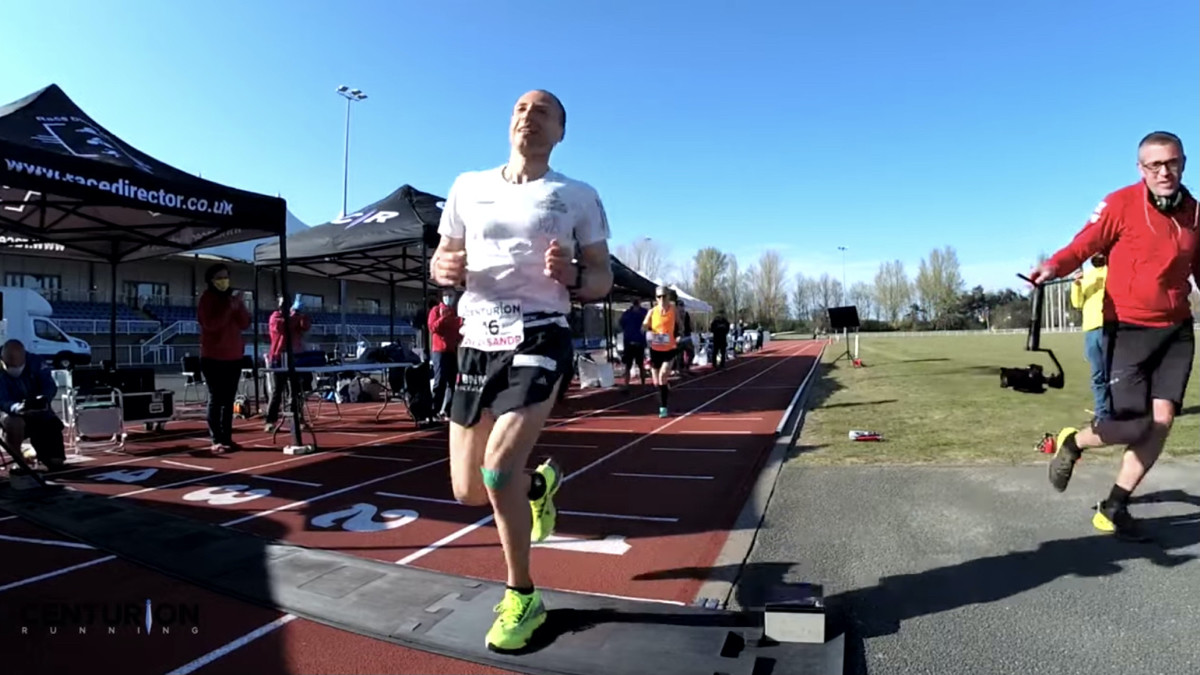
The event, which was dubbed the Centurion Track 100, featured a lineup of just 15 elite runners, each of whom was personally invited to compete. Entrants ran on a regular 400m track, and despite the race’s monotony and repetitiveness, Sorokin thrived, powering through each lap for 12 straight hours. He ran an incredibly even race the whole way, averaging 4:07 per-kilometer pace through 50K (he posted a 3:25:38 split), 4:08 pace after 50 miles (5:32:01) and the same at the 100K checkpoint (6:54:25).
After 100 miles (another 60K of running after he hit the 100K mark in the race), Sorokin faded only slightly, and his overall pace for the record run to that point was 4:12 per kilometre. His 170K in 12 hours works out to 4:14 per-kilometre pace. For context, that’s like running 16 straight 10Ks and finishing each one in about 42 minutes. Sorokin’s results bettered Bitter’s 100-mile record of 11:19:13 and 12-hour record of 168K from 2019.
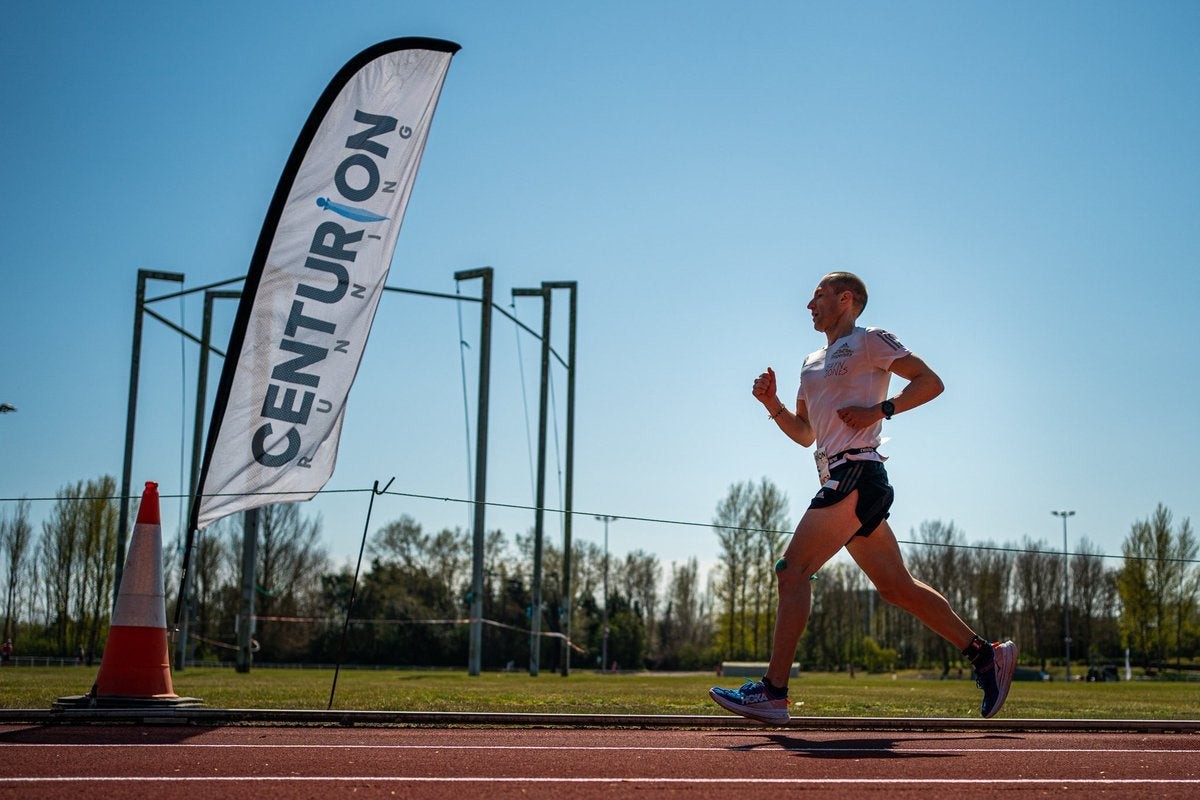
While Sorokin was chasing down his world bests, Britain’s Samantha Amend was busy working on records of her own. At the six-hour mark, Amend set the W40 British record of 72.995K, and she passed through 100 miles in 14:34:05, breaking the open national record for the distance. Several other athletes set national age group records over the various distances as well on Saturday.
All records set in Ashford are still unofficial, but the Centurion Running website notes that the course was certified by UK Athletics, so the times should all be ratified soon.
(04/26/2021) ⚡AMPby Ben Snider-McGrath
Shaunae Miller-Uibo smashes stadium record in Eugene
World-leading marks achieved at this stage of the season don’t tend to leave too much of an imprint on the world all-time lists, but Shaunae Miller-Uibo’s 49.08 to win the 400m at the USATF Grand Prix in Eugene – the first World Athletics Continental Tour Gold meeting of 2021 – broke the stadium record for an iconic venue.
The Bahamian Olympic champion ran a well-timed race. She held a slight lead at half way and still had USA’s Lynna Irby for company on the final bend, but she opened up a clear margin on the rest of the field down the home straight to cross the line in 49.08, the fourth-fastest time of her career.
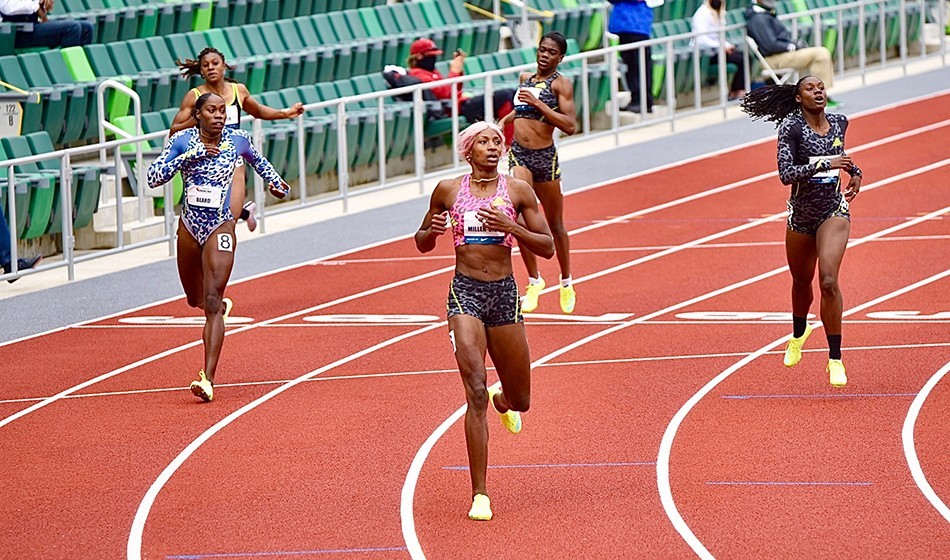
It also chopped 0.26 from the previous stadium record, set in 2003 by Ana Guevara. Global champions Sanya Richards-Ross, Allyson Felix and Tonique Williams-Darling are among the other past winners on the Hayward Field track, so Miller-Uibo will gain a boost in confidence knowing that she has out-performed such legendary athletes at this venue.
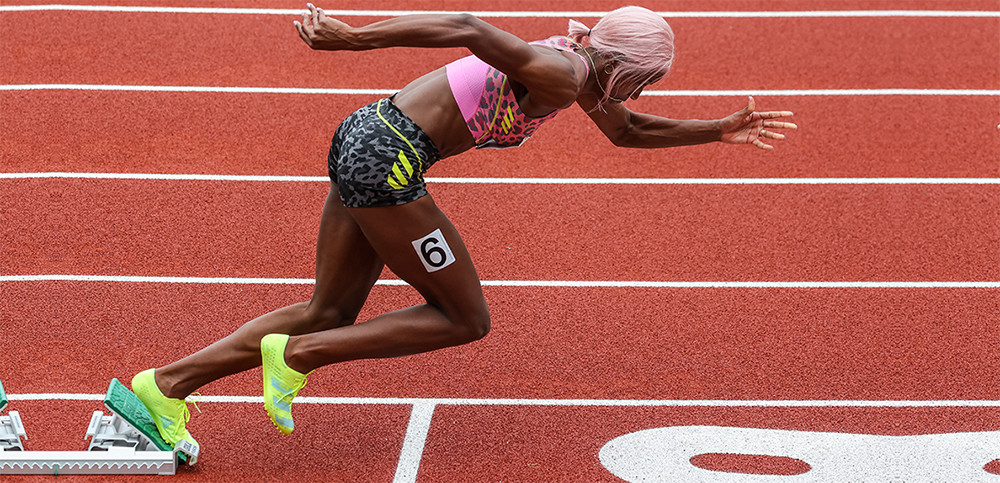
“The 400 is my favorite event, so I love coming in and trying to figure it out and having some fun with unravelling the secrets of it,” said the world silver medalist. “We’ve been really working on getting our strength up and now that we are in the middle of the season we are going to work on speed and getting ready to put down some great performances in the 200s.”
Irby finished second in 50.28, holding off Jessica Beard (50.38).
(04/26/2021) ⚡AMPby World Athletics
NBC Olympics to use outdoor studio for Tokyo 2020 primetime show
In a first for the United States Olympic broadcaster, NBC Olympics' primetime coverage of the Tokyo 2020 Games will be anchored from an outdoor location.
The organisation has held US rights to the Games since Tokyo 1964, but has never before had its primetime show filmed outdoors.

Anchored by Mike Tirico, this year's show will come from a fifth-floor deck with a backdrop of the Tokyo skyline, including the Rainbow Bridge.
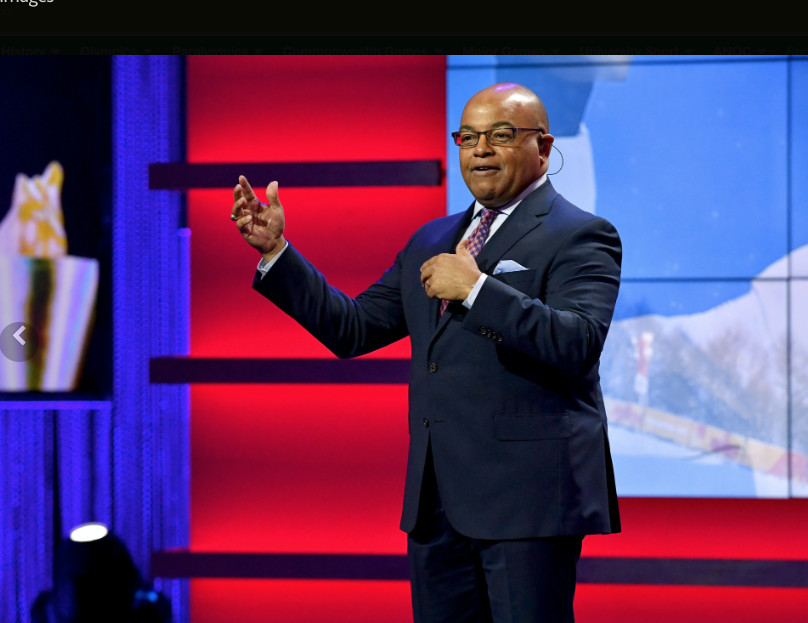
As COVID-19 is spread more easily indoors, the set could potentially aid in preventing infections, although this was not cited as a reason for open-air location.
The pandemic led to the Olympics and Paralympics being postponed by a year to 2021, with the Opening Ceremony now scheduled for July 23.
The set will be designed by Michael Sheehan and the TODAY show will also broadcast from the location.
It will be former National Football League play-by-play announcer Tirico's first Summer Olympics as the primetime host.
At Rio 2026, Tirico was a daytime host from an open-air set on Copacabana Beach.
"Tokyo is one of the great cosmopolitan cities in the world," said Tirico.
"The chance to use the city as our daily setting will help bring our viewers back in the States even closer to the Olympic experience."
The Olympics will also be broadcast on NBC's streaming service Peacock, which will show four live studio programmes every day to allow viewers to catch up on the action.
These four shows will stream for free on Tokyo NOW, Peacock's channel for live coverage and highlights, and will start from July 24.
All content will be produced by NBC Olympics.
"Peacock is thrilled to stream the most anticipated Olympics in history," said Jen Brown, senior vice-president of topical programming and development for Peacock.
"Our shows on the Tokyo NOW channel will give audiences the latest and greatest from the Games, including live competition each morning and quality coverage every night, all for free."
Rob Hyland, who joined NBC Sports in 1997, has been named the producer for the NBC Olympics' primetime show.
Hyland, who will be working on his 10th Olympics for the organisation, is an 18-time Sports Emmy winner has previously served as lead producer for two of the Games' most-watched sports - athletics at London 2012 and figure skating at Sochi 2014.
(04/25/2021) ⚡AMPby Inside The Games
Tokyo 2020 Olympic Games
Fifty-six years after having organized the Olympic Games, the Japanese capital will be hosting a Summer edition for the second time, originally scheduled from July 24 to August 9, 2020, the games were postponed due to coronavirus outbreak, the postponed Tokyo Olympics will be held from July 23 to August 8 in 2021, according to the International Olympic Committee decision. ...
more...World and British records fall at Centurion 100-miler
Aleksandr Sorokin sets world marks while Samantha Amend breaks national best at ultra-running track event at Ashford in Kent
Aleksandr Sorokin set a world record for 100 miles with 11:14:56 at the Centurion Running Track 100 in Ashford on Saturday (April 24) and then carried on to break another global mark for the furthest distance covered in 12 hours with 105.825 miles (170.3km).

At the same event, Samantha Amend broke Eleanor Robinson’s long-standing UK record for 100 miles with 14:34:05.
Sorokin’s performances beat the previous records of 11:19:18 for 100 miles and 104.88 miles for 12 hours set by Zach Bitter in 2019 in Wisconsin.
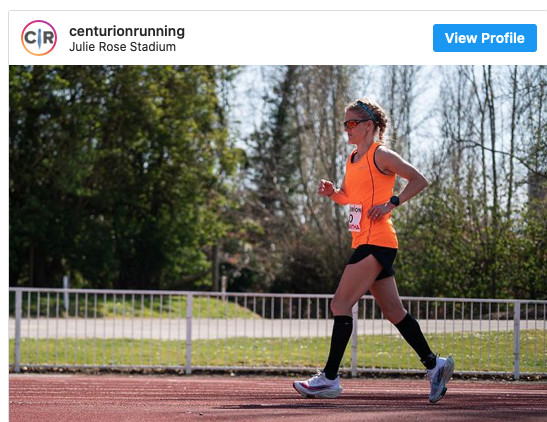
The Lithuanian, who won the IAU world 24-hour title in 2019 and who outside athletics works as a croupier in a casino, averaged 6:45 per mile (sub-3hr pace) for his 100-mile effort. This was despite having to finish his final preparations on a treadmill due to being quarantined in the UK on the eve of the race.
He celebrated by striking a Usain Bolt-esque lightning pose on the track and then watched Amend break a national record.
Robinson ran 14:43:40 at Milton Keynes in 1990 but Amend broke that mark by almost nine minutes as she finished under floodlights at the Julie Rose Stadium.
Amend, who works for an IT company and races for Belgrave Harriers, has clearly been building into good form after winning the Dorney Marathon in 2:52:36 at the start of April.
(04/25/2021) ⚡AMP
by Athletics Weekly
Can Yerba Mate Give You the Same Pre-Run Energy Boost as Coffee?
We investigate whether it’s time to turn over a new leaf when it comes to your hot beverage of choice.
Many of us call upon the powers of caffeine to perk us up and put a little more spring in our stride before workouts. Most often, we turn to coffee, but lately, some have been brewing up another drink that promises to energize the body without any jittery side effects: yerba mate.

There are only a handful of plants in the world that naturally produce caffeine, and yerba mate is one of them. This makes the herbal tea a potential stand-in for java, and it may have you wondering if it’s time to turn over a new leaf when it comes to your hot beverage of choice. Here’s everything you need to know about yerba mate’s benefits and if it can help in your PR pursuits.
What Exactly Is Yerba Mate?
Yerba mate is an herbal tea made from the dried leaves and twigs of the evergreen Ilex paraguariensis plant, which is native to South America. This is not the same plant that green tea hails from. Traditionally it is consumed from a container called a gourd (calabash) and sipped with a metal straw (bombilla) that has a filter at its lower end to strain out the leaf fragments.
Yerba mate is often described as earthy, vegetal, herbaceous, and bittersweet in flavor. Several brands of mate also contain tender stems and branches in the mix, which can impart a woodsy flavor to tea.
What Are Yerba Mate’s Benefits?
Yerba mate may help give your runs a jolt. While the caffeine content of yerba mate will be impacted by a few factors, including brewing time and quantity of leaves used, it’s thought that a cup of the beverage contains about 40 milligrams of caffeine. In comparison, brewed coffee ranges from 60 to 180 milligrams in a 6-ounce serving. Yerba mate also contains two other stimulants—theophylline and theobromine—which may work together with caffeine to put more pep in your stride or help you shake off morning brain fog.
Caffeine has been shown to help improve athletic performance for a few reasons, including lowering perceived effort. But you may need more caffeine than yerba mate delivers for all the performance-boosting benefits. To effectively rev up your workouts and races, you’ll need between 3 to 6 milligrams of caffeine per kilogram of body weight. So for a 150-pound runner, that’s 204 to 408 milligrams of caffeine or roughly 5 to 10 cups of yerba mate. People who are not used to consuming caffeine (and are thus more sensitive to it) may get more of a boost from less.
For some people, the naturally caffeinated beverage delivers enough without the pre-run jitters or irritability. But this benefit remains largely anecdotal. And since the drink contains fewer acids than coffee, some people find this beverage is easier on their stomachs than coffee, which can be especially beneficial before a big workout.
What’s more, an investigation in the journal Medicine and Science in Sports and Exercise reported that trained male cyclists who took 5 grams of capsulated yerba mate for five days and then the same amount again one hour before the exercise trials burned more fat during exercise and had improved time trial performance than when a placebo was consumed. So when paired with endurance activities like running and cycling, yerba mate could help aid in efforts to burn body fat and also improve athletic performance by conserving carbohydrate stores for high-intensity moments, but this was a very narrow study conducted only on trained males.
The optimal amount of yerba mate from a supplement or drink to consume daily and prior to exercise is still to be determined. Many studies have used standardized capsules, so we need more research to see if the same benefits would occur using brewed tea.
When yerba mate leaves are brewed, they release several types of antioxidants, which may limit oxidative stress (a harmful chemical process) and inflammation in the body, leading to a lower risk for several health conditions such as heart disease, dementia, and cancer. And while no research has shown any definitive links between yerba mate and the reduction of disease risk, a study in the British Journal of Nutrition speculates that the abundance of phytochemicals (plant compounds) in yerba mate is the main reason why 11 days of its consumption was found to improve the rate of strength recovery from eccentric exercise (weight lifting) by an average of 8.6 percent. It should be stressed that brewed coffee also contains a slew of antioxidants, and it’s not yet known which drink wins out for packing the biggest antioxidant punch.
Additionally, in one 40-day investigation, participants who drank a little over a cup (330 milliliters) of yerba mate each day lowered their LDL (bad) cholesterol levels by about 8 percent and raised HDL (good) cholesterol by 4.4 percent, which may lower the risk for heart disease.
Yerba mate does contain a few essential minerals including manganese, iron, zinc, and copper, but levels are likely not large enough to make a big impact on your diet compared to what you get from foods.
It’s worth noting that there is some evidence that drinking large amounts of yerba mate for an extended period of time may increase the risk for upper-body cancers, namely in the esophagus, larynx, and mouth. One possible explanation is that the drying process of yerba mate produces polycyclic aromatic hydrocarbons (PAHs), known carcinogens also found in tobacco smoke and grilled meat. A more likely scenario, however, is that the very hot temperatures that yerba mate is commonly consumed at in countries with frequent use induces tissue damage that leads to cancerous cell formation. As long as you are not brewing up liters a day and also letting your drink cool for a few minutes so that it is below 150°F before sipping, the cancer risk should be minimal. Levels of PAHs can vary considerably among brands.
The latest recommendations are that women who are pregnant should limit their intake of caffeine from any source, including yerba mate, as it may raise the risk for complications including low birth weight and miscarriage.
How Do You Use Yerba Mate?
To prepare yerba mate, fill the bottom third of the gourd with dried mate leaves before adding hot water, or use a tea strainer filled with a tablespoon or so of leaves set in a mug. You can also brew it up using a French press. Yerba mate tea bags are also available, but you’ll likely get the freshest flavor (and more of a caffeine boost) with loose leaf.
For the warmer days ahead, you can prepare mate like you would iced tea and keep a jug stashed in the fridge. A few brands are offering pre-made bottled or canned mate drinks, but read labels so you aren’t also drinking heaps of sugar.
Some sports nutrition products, like chews and gels, will include yerba mate extract as a way to deliver you a shot of caffeine when on the go. These products should tell you how much mate-derived caffeine you’re getting in a serving.
Remember, because it contains stimulants, sipping yerba mate within a few hours of bedtime may lead to a restless night.
(04/25/2021) ⚡AMPby Runner’s World
A Very Good Dog Crashed a High School Relay Race and Stole the Show
Humans aren’t the only ones who want a finisher’s medal.
Whether you are interrupting a race as runners go by or jumping into the field without officially entering (also known as banditing, which is always against race rules), it is pretty much always looked down upon by those who are running.
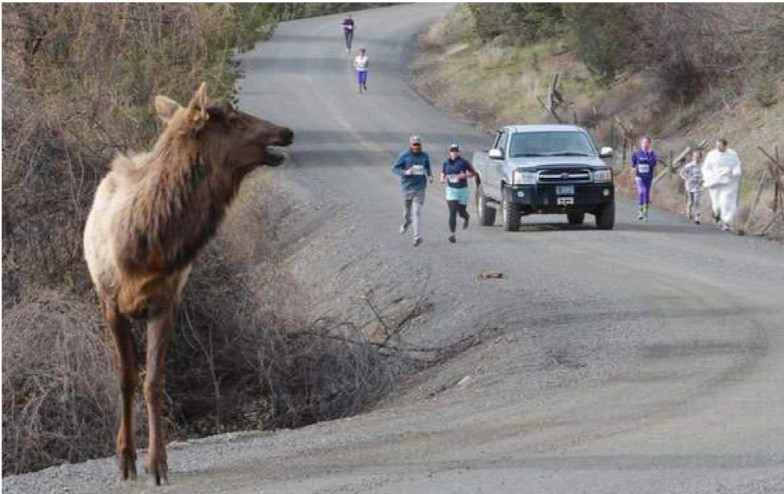
Yet not everyone seems to get the memo. Animals especially have trouble remembering to fill out the prerace forms, though they occasionally enjoy participating in the sport or making their presence known to the runners nearby. From deer to bears to elk to dogs, these are the most memorable creature encounters caught on camera during running events.
And down the stretch Fido comes!
In April of 2021, with high school runners back on the track after a year of COVID-restrictions, a puppy showed that humans weren’t the only ones tired of being away from competition. A puppy made its way onto a track during a 4×200-meter relay race at the Grizzly Invitational in Logan, Utah on Saturday. And we have to say, we’re impressed with the finishing kick this pup had.
A Bear Crashes a 10-Miler
A group of runners were at the halfway point of the Garden of the Gods 10 Mile Run in Colorado Springs, Colorado, when a bear meandered across the road right in front of them, the Colorado Springs Gazette reported. The bear initially hesitated before a large enough gap in the crowd opened up. Although some participants seemed to remain calm, most were clearly not expecting to come across the bear on their route. (Nobody was harmed during the race.)
Cross-Country Deer
Football is supposed to be the fall contact sport. Unless there are deer. At an NCAA regional cross-country meet in Pennsylvania, a deer running full throttle collided with Justin DeLuzio, a senior competing for Gwynedd Mercy University. DeLuzio suffered bad bruising, but managed to finish the race with aid from a teammate.
Ludivine the Hound
The inaugural Trackless Train Trek Half Marathon in rural Elkmont, Alabama, welcomed an unexpected, and unofficial entrant last January. Ludivine, a two-year-old hound, wandered to the start line after being let out to pee. The dog went on to complete the entire 13.1 miles in 1:32:56, receiving a medal and heaps of praise for her efforts. The race has even been renamed to the Hound Dog Half Marathon in Ludivine’s honor.
Buddy the Elk
In the small town of Dayville, Oregon, locals are used to the occasional elk encounter. Which is why participants in the Bunny Hop 5K last Easter barely flinched when Buddy, one of the town’s notorious elk, jumped into the course. The animal stayed with a pack of runners for nearly the entire race, and even hung around for a few minutes at the postrace party.
Bear Cubs in Alaskan Triathlon
Ambling through the woods in Anchorage, Alaska, a family of black bears unexpectedly interrupted the running leg of the Golden Nugget Triathalon in May. While crossing the dirt path on the course, one of the curious cubs approached a runner, who calmly stepped back to let the family meander away. In a video of the encounter, one volunteer can be heard saying, “Just another day in Alaska.”
A Shetland Pony in a 10K
Imagine participants' surprise when they found themselves running alongside a horse at the Trafford 10K in Manchester, England. Mildred, a 12-year-old Shetland Pony, escaped from her field along the route and ran two kilometers before being caught by race marshals at the 9K mark. Watch our video on tips for running with a miniature horse in case you find yourself in this situation at your next race.
(04/25/2021) ⚡AMPby Runner’s World
Almost Half of Recreational Runners Get Injured—But That Doesn’t Have to Be the Case
Nearly half of all recreational runners sustain injuries, according to new research—knee injuries account for 27 percent of injuries and Achilles tendon and calf injuries account for 25 percent of injuries.
Paying attention to your training load, the intensity of your runs, and your biomechanics can be helpful in preventing injuries.
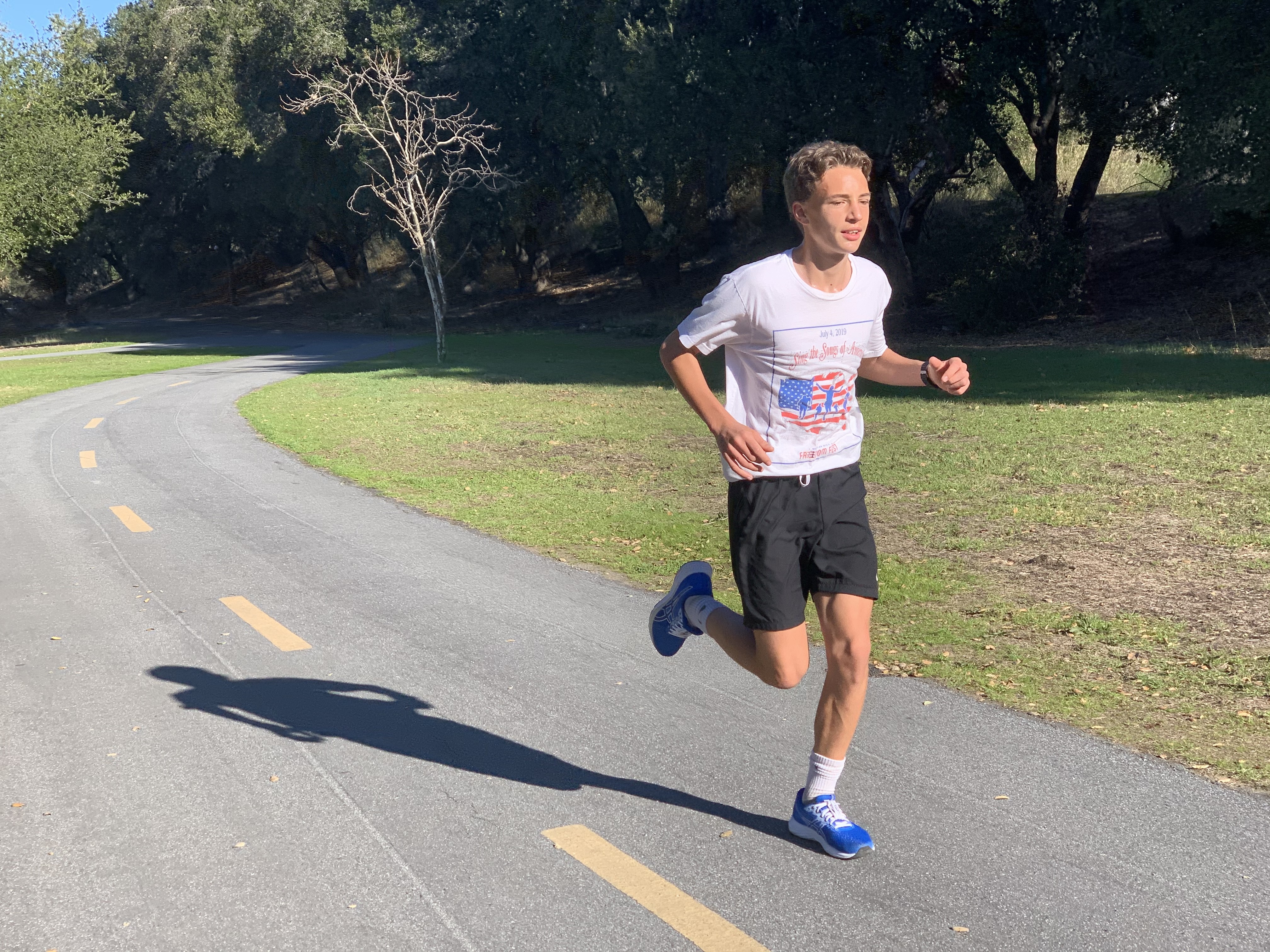
If you seem to always be getting injured, it’s best to consult with professionals—a running coach, sports medicine physician, physical therapist, etc.—to nail down the reason why and what you can personally do to stay healthy.
It should go without saying that running is a high-impact sport. So if it seems like you and your running buddies are constantly taking turns battling injuries—big and small—you’re not alone: Nearly half of all non-professional runners sustain injuries, according to research by Jonatan Jungmalm, Ph.D., in the Department of Food, Nutrition, and Sport Science at the University of Gothenburg in Germany.
As part of his doctoral dissertation, Jungmalm recruited more than 200 recreational runners between 18 and 55 years old and monitored them over a one-year period. “To take part in the study, they had to have been running for at least a year, have run an average of at least 15 km [9.3 miles] per week over the past year and have been injury free for at least six months,” Science Daily reported.
He found that 46 percent of these runners reported injuries over the course of a year, and the most common locations were the knee—accounting for 27 percent of all injuries—and the Achilles tendon and calf area, representing about 25 percent of all injuries.
Those with a previous injury were almost twice as likely to sustain a running-related injury as those without one, according to a result of Jungmalm’s that was published recently in the Journal of Orthopaedic & Sports Physical Therapy.
Also, newer runners tend to have higher injury incidence rates, Jungmalm told Runner’s World. He added that previous research indicates that running-related injuries seem to be the biggest reason that recreational runners quit.
“For runners, I think the takeaway from this is the awareness of how common injuries can be,” he said. “Recreational runners will, on average, experience at least one injury in about 225 hours of running. What runners think about that wasn’t part of the research, but my experience as a runner tells me that many runners may not acknowledge the real risk of being injured.”
Also not part of the research was whether any specific strategies helped minimize injury risk, but physical therapist Carol Mack, D.P.T., C.S.C.S., owner of CLE Sports PT & Performance, told Runner’s World that risk factors include mismanagement of training load, experience, and biomechanics.
With training load, many recreational runners track mileage, Mack said, and while that’s helpful, it doesn’t give a full picture of true load. Mileage is external load, but it doesn’t measure the body’s physiological response to a run, known as internal load. For that, you’d need to be aware of intensity, heart rate, and level of fatigue. For example, Mack said, think about a 10K run done on tired legs at a fast pace versus fresh legs at a slow pace. The distance is the same, but each workout feels different and has distinctive effects on the body.
“In Jungmalm’s work, it’s noted that four injuries occurred during a single session that was rated with the highest intensity, or a pace-related injury,” Mack said. “There is some evidence out there that higher intensity workouts are associated with injury occurrence. Therefore, recreational runners should understand that intense, pace-related workouts like tempo runs or speedwork can be very taxing on the body.”
She added that it’s best to consult with a coach about how to best incorporate them into your training, and it’s very important to give yourself enough rest and recovery after those workouts.
Experience is also a factor, and as the research indicates, newer runners have higher injury rates. Mack said this might show up as not knowing when it’s okay to push through pain versus when it’s not, or not knowing how fast or far to take some training runs.
The biomechanics factor means paying attention to proper form, said Mack. For those who experience repeat injuries, this might be a major factor, and she added that running gait retraining may help.
If you seem to always be getting injured, it’s best to consult with professionals—a running coach, sports medicine physician, physical therapist, etc.—to nail down the reason why and what you can personally do to stay healthy.
(04/25/2021) ⚡AMP
by Runner’s World
Austin Half marathon runners ready for return of live racing after COVID-19 pause
On Sunday, live running returns to Austin, Texas for the first time since February 2020 with the Austin Half Marathon and 5K, and though it won't be as large as the 2019 race, it may well be the largest half-marathon to be held in the country since events were halted at the onset of the pandemic.
Unlike past years, there is no full marathon race or prize money this year, and participation in the half-marathon was reduced by more than 50%, capped at 6,500 runners. More than 5,000 have signed up; the 5K race, which was capped at 500, has sold out, said William Dyson, the communications director for High Five Events, which is organizing the race.
“Our team is ready for this responsibility and excited to bring this event back, after having canceled all of our events since last March,” Murray said.
The course, which starts at Second Street and Congress Avenue and finishes at Ninth Street and Congress, remains the same as previous years. The half-marathon start will be in waves — every five minutes, with assigned start times to ensure low density. Additionally, runners are required to wear masks in the starting and finish areas.
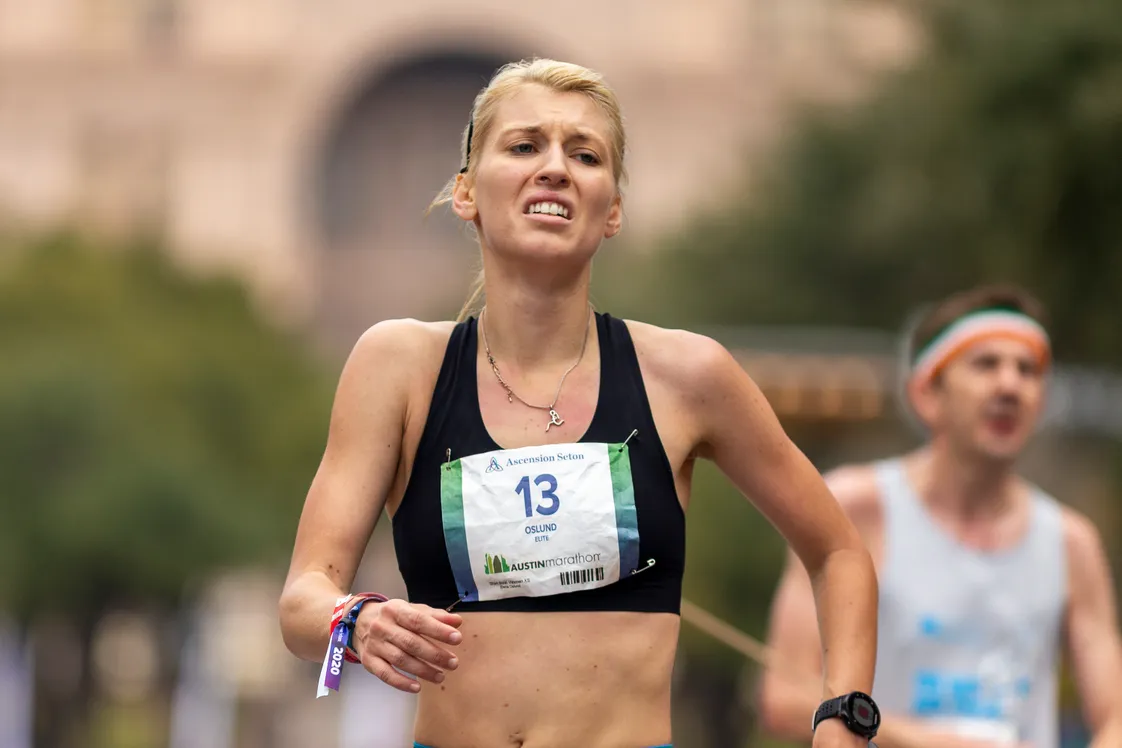
Willie Fowlkes, race director for the Woodlands Marathon, pointed out that in a half-marathon, you have people running along a 13.1-mile route, which is naturally socially distant, so outdoor events like road races are among the safer sports. The Woodlands Marathon, which was held live on March 6, attracted about 3,500 participants, the largest full marathon to be run live since the COVID-19 pandemic struck.
“I am really excited to join the running community out there,” said Michael Morris, who placed second at the Woodlands and won the 2019 3M Half Marathon. “I know a lot of people have been running and training and just waiting for a live race.”
Even without a prize purse, the Austin Half Marathon has attracted a respectable elite field (including Morris), as runners are eager to race in live events again.
“I am very excited to get back to in-person racing,” said Mark Pinales, a favorite to win the men’s race. “I think a lot of the running community is ready to compete with everyone again.”
Like Pinales, it’s Carrie Birth’s first real chance to compete in a top field since the pandemic began.
“This is my first ‘A’ race in well over a year,” said Birth, a favorite in the women’s race. “It’s a race I have trained for, tapered for, and get to run against a highly competitive field. I have had my eye on this one for months, and literally cannot wait to toe the line and get back to what means so much to so many of us. This is a big first step back to normalcy."
(04/24/2021) ⚡AMPby Brom Hoban
Austin Marathon Weekend
The premier running event in the City of Austin annually attracts runners from all 50 states and 20+ countries around the world. With a downtown finish and within proximity of many downtown hotels and restaurants, the Austin Marathon is the perfect running weekend destination. Come run the roads of The Live Music Capital of the World where there's live music...
more...4 Supplements That Effectively Boost Your Running Endurance
Endurance athletics requires a fine balance of strength and endurance, which can only be achieved by years of strategic training and dieting. Endurance supplements can and should be an integral part of this balance. Yet what is marketed to runners, swimmers and cyclists is a variety of sports drinks, power bars and gels that are easy to reach for on the go. All of these things fuel the body during grueling training sessions or intense competitions, but most of them only ensure that the body is able to make it through the competition, and nothing more.
Supplements have a place in endurance sports. In fact, some of the most important endurance supplements are often overlooked by athletes.
Here are five of the most potent endurance supplements to boost performance.

1. Protein
Protein is often associated with bodybuilding and weightlifting. But protein is critical to performance during long periods of exercise. After the two-hour mark, the human body starts to use protein to help meet its energy needs. If the fuel taken during competition or training includes only glucose and no protein, the body must get the protein from somewhere else. Since there is nowhere left to go, it goes straight for muscle.

This process is called muscle cannibalization, or lean muscle tissue catabolism. It tears through your performance because it causes deterioration of the lean muscle required for performance. It also causes an increase in ammonia accumulation, which leads to fatigue and negatively affects recovery time.
2. Beta Alanine
The amino acid beta alanine is a great supplement to take to boost athletic performance. Some research shows that it helps keep fatigue at bay, which keeps you running strong for longer. Research also suggests that it can be used to promote lean body mass and improve overall aerobic activity.
3. Creatine
Creatine is another supplement typically assumed to be a bodybuilder's weapon of choice. However, creatine's potency does not simply create mass. Its properties as an amino acid are important for endurance athletes, too.
Creatine is famous for boosting muscle recovery, and endurance athletes often need more help in this area than they realize. Supplementing with creatine can help the body deal with the damage it incurs during training, like cell damage and muscular inflammation.
Creatine can also possibly be used to help the body use its oxygen in a more efficient manner during exercise by improving heart rate, sweat rate and how the body distributes water. By making the body more efficient, creatine might lead to a reduction in submaximal VO2 levels, which boost performance.
4. Iron
Some evidence suggests that endurance athletes are more likely to suffer from anemia than the general population. This is possibly because of the amount of iron athletes lose when they sweat for several hours at a time.
Most athletes avoid anemia by consuming an iron-rich diet.
(04/24/2021) ⚡AMPPaula Radcliffe warns athletes to be careful of burnout ahead of Olympic Games
Paula Radcliffe says athletes going through their final preparations for this summer’s delayed Olympic Games must be careful not to overtrain before they get to Tokyo.
Radcliffe, who will be working on the Olympics as a commentator, believes this is a nervy time for the athletes involved.
"It's a really tense time in any Olympic year, that fine line between piling everything into training and getting into the best shape possible and overcooking it a little bit, trying too hard," she told Sky News.
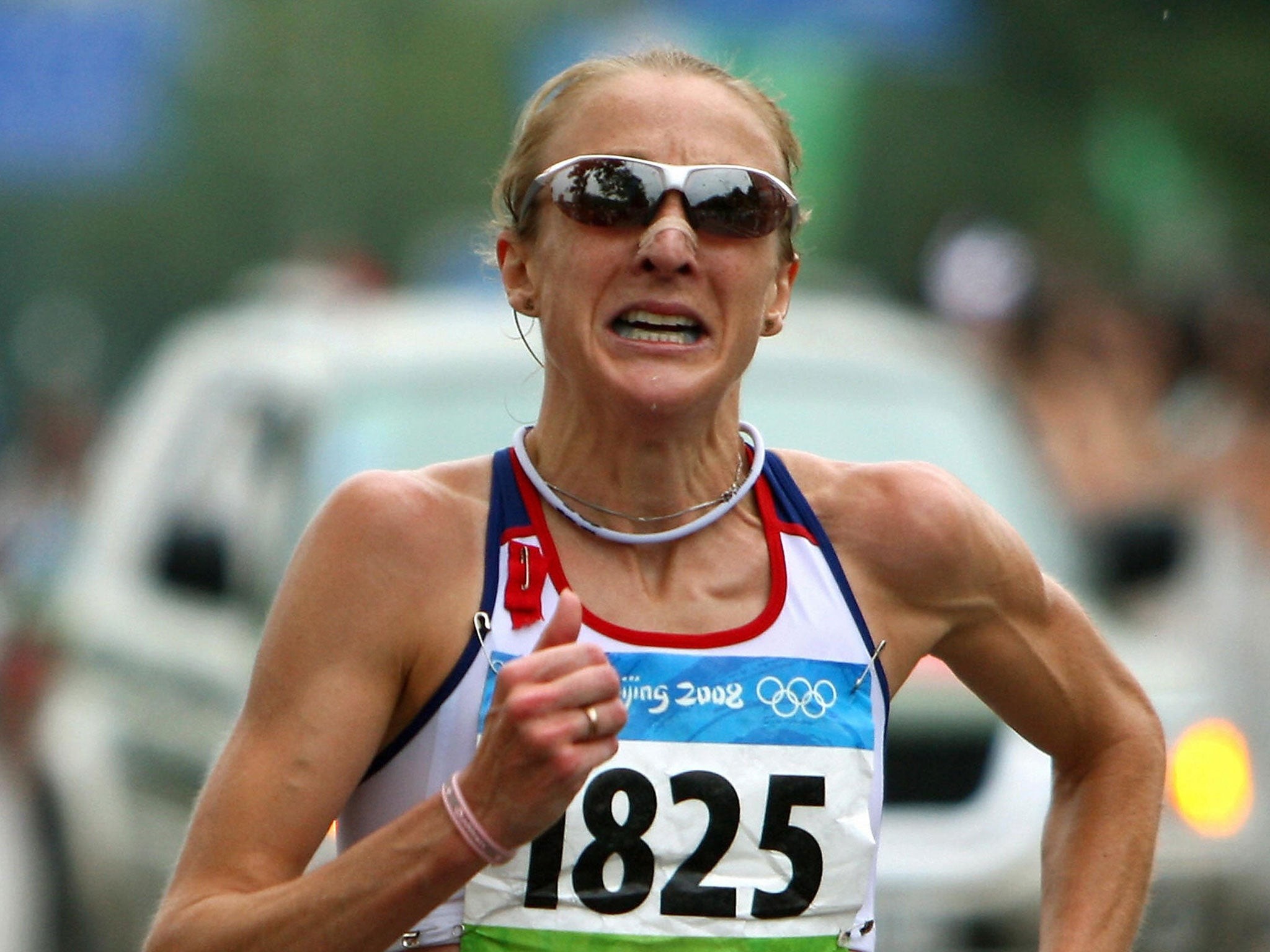
Radcliffe added: "I remember saying to athletes this time last year when we were all in that hopeful stage where we thought this would last a couple of months and the world would get back to normal, the people who handled the uncertainly and were able to take each day at a time do what they could and not stress about what they couldn't do would be the people who are going to succeed in Tokyo."
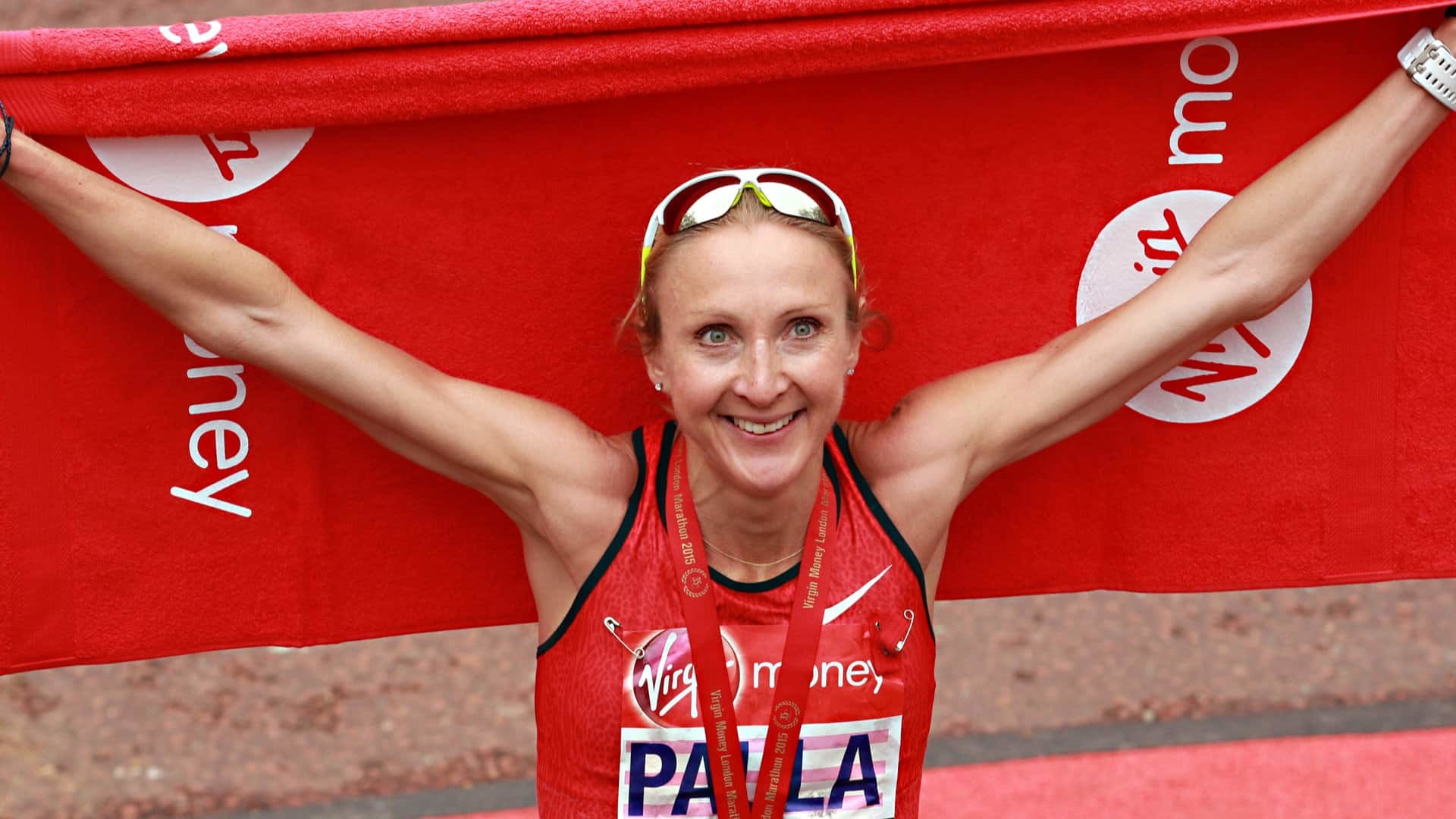
But she predicts a successful Games for Team GB, with many options for medals.
"I don't have any doubt they have the capability to step up. Laura Muir too and Gemma Reekie - this has given her another year to build on the potential she showed indoors.
"Backing her up is Keely Hodgkinson, who came through and you'd never expected her to have an Olympic place had Tokyo gone ahead this time last year.
"This, for her, is an Olympic opportunity without too much pressure because she is the baby of the team. Athletes like that might come through and seize the opportunity and come away with a medal."
Radcliffe is hopeful the Olympics in Tokyo will be drug-free but fears the coronavirus pandemic could allow potential drug cheats to pass under the radar.
(04/24/2021) ⚡AMPby Jacqueline Beltrao
Tokyo 2020 Olympic Games
Fifty-six years after having organized the Olympic Games, the Japanese capital will be hosting a Summer edition for the second time, originally scheduled from July 24 to August 9, 2020, the games were postponed due to coronavirus outbreak, the postponed Tokyo Olympics will be held from July 23 to August 8 in 2021, according to the International Olympic Committee decision. ...
more...Atlanta running legend Jeff Galloway suffers heart attack
After a career of being the cheerleader and coach for those who have come back from injuries and illness, I will now be the athlete on the recovery trail.
Last Monday I was just finishing up a short Elliptigo and rowing session when I got up and suddenly experienced a dizziness that I hadn’t had before. After trying to walk around the house to settle myself, the symptoms got worse - nausea and extreme fatigue.
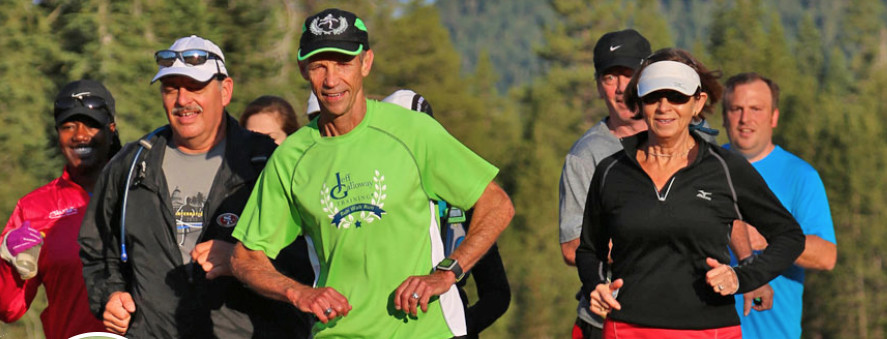
My health and the Piedmont team allowed me to survive what we now know was a heart attack, but even those advantages won’t make it easy to get back to full strength.
My family and I thank you for your support during this recovery time. I will be taking some downtime to recuperate, but I can’t wait to be back seeing everyone at events, retreats, and virtually.
I hope you can get out today and run or walk, hug or call a loved one, and if you are feeling bad GO SEE SOMEONE about it. Doctors and science are pretty amazing!
(04/24/2021) ⚡AMPNone of us would dispute that running makes us happy. But it's also clear that it's not a panacea
“It was running or Zumba,” says James Duncan of Montreal (not his real name), when asked why he started running. Back in 2018, when he first experienced symptoms of depression and anxiety, a friend suggested he take up a new activity. He was attracted to running as an individual sport without too much pressure: “No one expects me to win, so it seemed like a good option,” he says. But Duncan quickly discovered he could do more than he thought, so he registered for his first 5k race. “It gave me a sense of achievement, some sort of purpose,” he says. “It forced me to get up on days when I just wanted to stay in bed.”
Cut to June 2020, when Duncan proudly ran his first unofficial (and entirely unplanned) half-marathon – in the middle of the night. Getting up at 3:30 a.m. after a bout of insomnia, he went out for a quick run to watch the sunrise over the St. Lawrence River, and had his first runner’s high: “It just felt good,” he says. “So I kept running.”
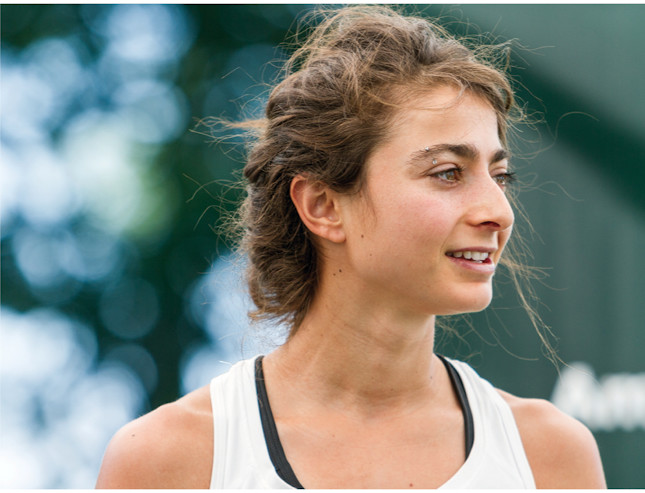
Is runner’s high what kept him running over the past two years? Duncan is clear: “To be honest, that’s only ever happened to me once. Running gives me a way to stop thinking about everything else for a while. When I run, I just focus on my breathing. It’s almost like meditation. And the social connections I got from being part of a running group also really helped me.”
Although thousands of people have taken up running for the first time during the pandemic, COVID has put a damper on group running, so the mental-health boost from socializing with other runners has been absent for most people over the past year. This has given rise to a particularly COVID-specific type of mental distress: loneliness. A recent Angus Reid survey found that almost a third of Canadians report suffering from loneliness and social isolation – and this figure rose 10 per cent between October 2019 and October 2020. (Those reporting that they had “a good social life” dropped from 55 per cent to 33 per cent during the same period – and there are probably a fair number of runners among those numbers.)
With the prospect of a gradual return to normality thanks to vaccination, runners are tentatively signing up for races (where they can find them) and reconnecting with their groups, while solo runners whose motivation to train never flagged are cheered by the approach of spring. Research has repeatedly demonstrated the many mental health benefits of running and exercise, and that has never been truer than now.
But running obviously isn’t a guarantee against anxiety, depression or loneliness. Runners of all levels struggle with mental health issues, while also experiencing running as a mood-booster, at least some of the time. Elite athletes like Canadian ultrarunner Rob Krar, U.S. runners Alexi Pappas, Amelia Boone and Molly Seidel have shared their experiences with anxiety, depression, obsessive compulsive disorder (OCD) and eating disorders in an effort to reduce stigma, and their candour has led to recognition of the need for dedicated support. And while mental performance coaches have for decades helped pro athletes deal with negative mental habits that impede performance, there’s a difference between mental performance and mental health; psychotherapists are only recently becoming an essential part of the team as well. This was brilliantly demonstrated in April last year as Canadian sports groups and associations united to create a dedicated mental health task force to support athletes after the postponement of the Tokyo Olympics. All of which raises the question: if elite professionals, who spend a large portion of their days training, are experiencing anxiety and depression, is exercise really as beneficial for mental health as we thought?
The relationship between running and mental health is both subtle and complex. Multiple studies have demonstrated the crucial role of exercise in well-being. Sport psychology expert, Olympian and dean of the University of Calgary’s faculty of kinesiology, Penny Werthner, says, “Movement is critical for both mental and physical health. There are physiological and neurological changes that occur when we move, when we run and become fitter.” Achieving running milestones (which, depending on the individual, may mean anything from simply getting out the door to setting a new marathon PB) can boost confidence and motivation, foster a sense of accomplishment and improve self-esteem – all of which boost mental health. But it’s only part of the picture: “I would argue that exercise and movement can always help,” says Werthner, “and it would be wise to incorporate them into a treatment plan, along with other treatments, such as cognitive behaviour therapy.”
HOW NEW RUNNERS CAN BENEFIT
If you’re a new runner who’s embraced the sport because you’ve heard of its widely touted mental health benefits, it may not be quite that simple. It may take time to build up the fitness that will allow you to reap any significant mental health benefit. (One study found that running at a moderate pace for 30 minutes produces a much higher increase in the neurotransmitters known as endocannabinoids, which researchers believe may be more responsible for running’s mood-boosting properties than endorphins, than either walking or running at maximum intensity – and it may take some time for a non-runner to be able to run continuously for 30 minutes.) Obviously, the risk for new runners is taking on too much too soon, which is likely to deprive them of any mental health benefit they might have derived from running because they are sidelined with an injury. Werthner suggests reaching out to a trainer or coach to get started in a way that’s appropriate to your fitness level and goals.
Another pitfall for new runners is that running can very easily become a chore, adding nothing to one’s mental health (and possibly compromising it). For running to make you happy, it should be carefree and liberating (as it is for Duncan). It doesn’t mean having to run a marathon – by all means, start training for a marathon if all of the following are true: you’re healthy, that goal excites you and you have support for it from the people in your life whom it may impact. Marathon training and recovery are time-consuming. Most plans recommend starting with some 5k, 10k and half-marathon races to build a base of fitness, which generally means putting off marathon training until you’ve been running for at least six months to a year. Don’t compare yourself to others you see on social media, posting about their running accomplishments, and remember that there are no shortcuts to athletic greatness – elite athletes have years of training (and plenty of failures) behind them.
Whether you start with a few minutes of running and walking or a more ambitious regimen, check in with yourself regularly. “The best gift you can give yourself is to be aware of your own needs,” says Kim Dawson, mental performance consultant and professor at Ontario’s Wilfrid Laurier University.
EXPERIENCED RUNNERS: BALANCE IS KEY
Experienced runners who decide to take on a new running goal may also be at risk of biting off more than they can chew, says Dawson, who suggests runners think carefully about the possible mental health implications of a new training plan: “Be aware of what you are sacrificing,” she says. “Choose a running program that fits your lifestyle and allows for a healthy amount of training, while giving you room for growth in other areas of your life, such as your professional development, social connections and emotional well-being.” While often challenging, running should still be fun, at least most of the time. Regularly ask yourself whether you still look forward to getting out for a run. If not, it may be time to take the intensity down a notch or find a challenge more suited to your current state of mind.
DEALING WITH INJURY
Healing an injury can be a long, emotionally difficult process that sometimes involves giving up short-term goals, such as a much-anticipated race. That is likely to have an impact on your mental health, at least in the short term. The pandemic certainly hasn’t made dealing with injury easier. Being forced to take a break from a much-enjoyed activity is hard enough; doing it without the mood-boosting brain chemicals provided by alternative forms of exercise at facilities that aren’t accessible during lockdown can make recovery that much more difficult. Once again, Dawson suggests focusing on the other areas of your life that bring you joy. It also helps to seek out a supportive friend, or possibly a mental health professional, with whom to talk about the situation.
WHEN RUNNING IS PART OF THE PROBLEM
Finding balance may be a particular challenge for pro runners, for whom training is the biggest part of their daily life. Canadian half-marathon record holder Andrea Seccafien is from Guelph, Ont. but lives and trains in Melbourne, Australia. For Seccafien, feelings of isolation during the first lockdown in 2020, when she couldn’t work out with her teammates and she was a long way from home, were compounded by anxiety about the virus. That impacted her performance, which led to further anxiety, which led to the decision to take a month-long break from the sport last May. “I so badly wanted this to be a physical problem,” Seccafien told Canadian Running in January 2021, adding that she was prepared to deal with an iron or thyroid deficiency. But healing a mental health injury is no different than healing a running injury, and the solution usually isn’t more running, but its opposite – rest. (And treatment by a trusted health professional.)
Alexi Pappas, who was raised in the U.S. but hopes to run for Greece at the Tokyo Olympics, has a similar story, which she tells in her recent book, Bravey: Chasing Dreams, Befriending Pain, and Other Big Ideas. Pappas’s mental health took a nosedive after the 2016 Olympics, where she competed in the 10,000m, setting a new national record for Greece. Instead of taking a well deserved and much needed vacation before setting new goals for the next Olympic cycle, she felt compelled to continue training. And after getting a distribution deal for her first film, Tracktown, she felt pressure to produce another film. There were also deeper psychological issues having to do with her mother’s death by suicide when Pappas was a young child, and she spiralled into insomnia and depression. It was a year before her father finally persuaded her to seek treatment, which was ultimately effective.
Professional athletes have the added pressure of having their performance tied to their livelihood, but recreational runners are not immune to overdoing it to the point of burnout. “The key,” says Dawson, “is to maintain a holistic identity. And this is valid for everyone, professional athlete or not. You are a person first, who happens to run.” It’s important to keep developing other areas of your life, which may include time with family, building a career or pursuing another hobby that you’re passionate about.
Duncan, for his part, still runs four to five times a week and regularly attends therapy sessions. “It’s not a magic pill,” he says of running. “You have to find out what works for you. But it’s definitely been an adventure. You never know where you’re going to end up.” He smiles. “Could be on a riverbank, watching the sun rise at 6 a.m. after running 21 kilometres.”
(04/24/2021) ⚡AMPby Apple News
Keira D'Amato is a must-follow athlete for Strava entertainment
American runner Keira D’Amato has had a phenomenal past year. Within the span of just a few months, she went from a relatively unknown amateur to one of the top road runners in the U.S. With her newfound fame in the running world, she has seen her social media following grow, including on Strava, where her current follower count sits at around 5,400. D’Amato doesn’t only post fast runs on Strava, though, as she also uses the app as a chance to post funny and sometimes-cheesy jokes to go along with each of her workouts. If you’re looking for a daily dose of motivation paired with a laugh, it’s worth checking out D’Amato’s Strava page.
Jokes for days
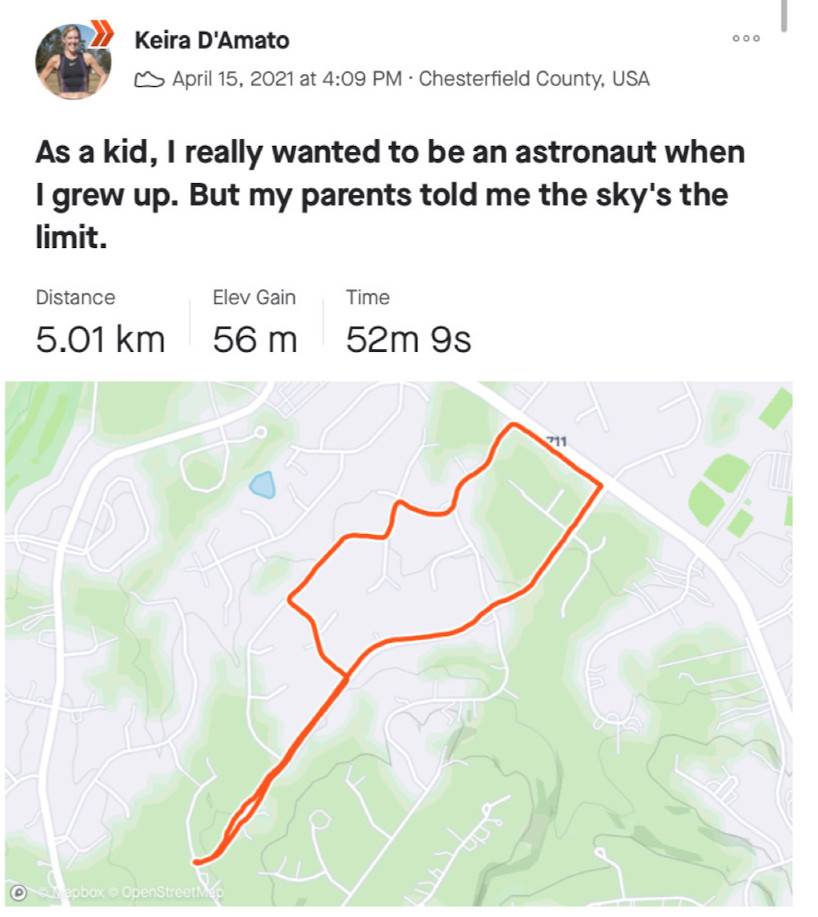
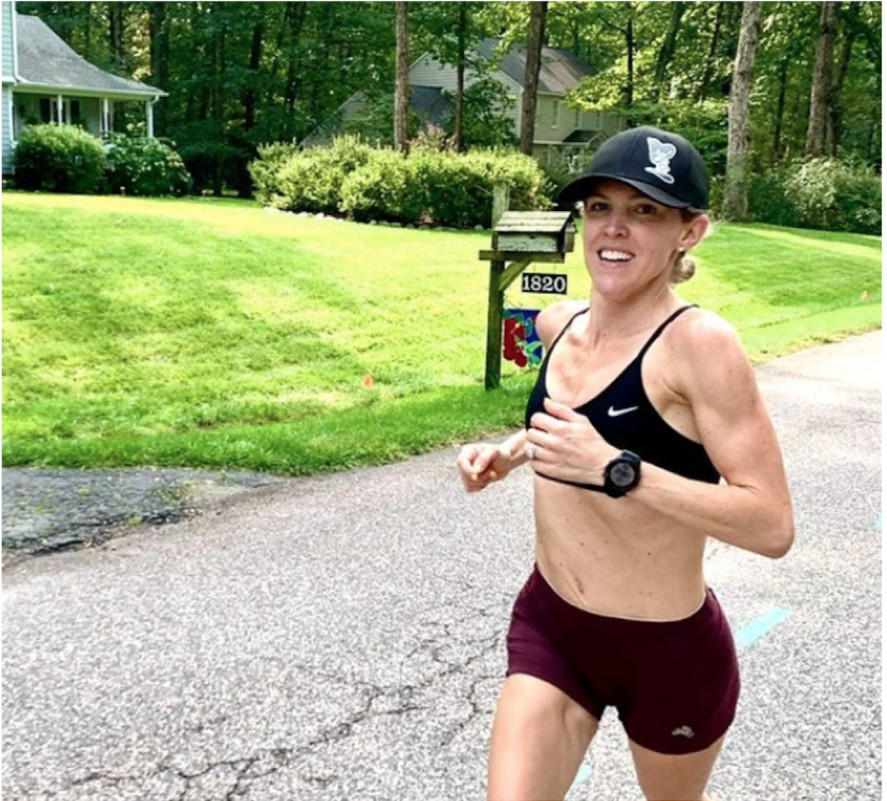
D’Amato’s workout titles on Strava have seemingly no relation to her training, and they might simply be something she pondered while out for her runs. Most aren’t even running related. The title of a 16K run from April 1, for example, was “My husband and I had this long pointless argument as to which vowel is the most important. I won.” Every now and then she tosses a running-related joke in the mix, like her March 23 9K run that was titled, “I quit my job as a treadmill tester. I just felt like I wasn’t going anywhere.”
Many people classify these as “Dad jokes,” but D’Amato, a mother of two, proved that these one-liners aren’t just reserved for the dads of the world. If you’re not into these cheesy types of jokes, D’Amato is still worth the follow on Strava. She is, after all, a rising star on the American running scene, and seeing the runs she lays down in training could help with your own motivation.
Maybe you’re lucky and you’re a runner who does like pun-heavy humour. If that’s the case, then you’ll absolutely love D’Amato’s Strava, because you’ll get joke after joke and run after run to make you laugh while also motivating you to get out and train.
Rising to the top
D’Amato has been on fire in the past year. In February 2020, she ran a marathon PB at the U.S. Olympic Marathon Trials, posting a time of 2:34:24 and finishing in 15th place. This was well off Aliphine Tuliamuk‘s winning time of 2:27:23 and a spot on the American team headed to Tokyo, but it was still a solid result, and especially from D’Amato, who works as a real estate agent full-time on top of her training.
She continued her stellar year of running in June, when she got a lot of attention for a 5,000m time trial in which she ran 15:04 at the age of 35. She followed that up a month later with a 32:33.44 result at a 10,000m race, and in November she set the American 10-mile record at 51:23. She wrapped the year up with a massive marathon PB of 2:22:56 at The Marathon Project, where she placed second in a deep field.
After such an incredible year, D’Amato signed a pro contract with Nike earlier in 2021, and it looks like the running world will be treated to a few more years of her amazing performances (plus her strong Strava-comedy game).
(04/24/2021) ⚡AMPby Running magazine
Alligator interrupts Florida high school track practice
A high school track practice in Florida was recently interrupted by an unexpected guest: an alligator. Members of the Alonso High School track team in Tampa originally thought the gator was a log in the middle of the school’s field. When that log started to move, the team realized that it wasn’t a log at all and that they had a surprise spectator at that day’s practice.
“Yeah, so this interrupted practice,” read a Tweet from the Alonso High track and field team Twitter account. “Casually strolled across our path. Not a care in the world. Absent from photo are the Raven athletes whose track speed was never better.” A representative from the local school board spoke with a CBS News affiliate in Tampa, noting that Roger Mills, the team’s head coach, was the first to see the gator.
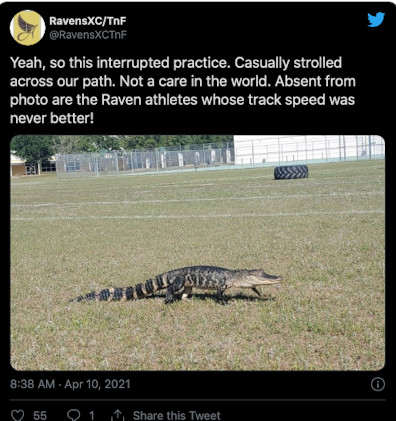
“Coach Mills says the athletes’ running times were record speed that day – wonder why,” the school board official said. “It was great practice for their district competition tomorrow at Alonso.” Few Canadian runners would know what it’s like to cross paths with an alligator on a run (and anyone who has had this experience didn’t see any gators in Canada), but we’re willing to bet that this would be a great motivator to drop some fast times in training.
Alligators can reportedly reach speeds of more than 17K per hour, which is quite impressive for an animal with such short legs. In running terms, this is 3:23 per-kilometre pace. Gators can lay down some quick times if they feel like it. The good news for any runners who do encounter a gator in the future like the Alonso High track team did is that these animals can’t maintain that speed for long, and their poor endurance will likely be the key to your getaway if one decides to chase you.
(04/24/2021) ⚡AMPby Running Magazine
Earth Day 2021: athletes and brands that are making a difference
The Kilian Jornet Foundation
Fans of the sport will know Spanish ultrarunning champion Kilian Jornet well, but they might not realize that he has his own foundation that is dedicated to climate action. The Kilian Jornet Foundation (KJF) works to protect the world’s mountains, which are near and dear to Jornet’s heart, because when he’s not running up a mountain, he’s probably climbing one. As temperatures rise globally, the snow, ice and glaciers found on the world’s mountains melt, leading to rising sea levels, which can cause even more problems, including increased rates of natural disasters, the destruction of unique ecosystems and more.

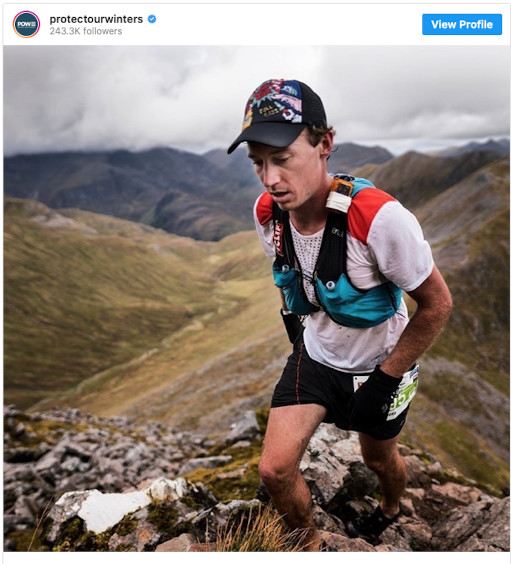
“Mountains play a key role in our global system,” the KJF site reads. “Without them and their environment there would be no life, and that is why it is essential to conserve and manage them sustainably.” The KJF is linked to other nonprofits that focus on mountains, nature and sustainability, and the site also lists how individuals around the world can play a role in protecting the environment.
Protect Our Winters
Protect Our Winters (POW) isn’t a running-specific nonprofit, but it does have the support of multiple runners and several running brands. As the organization’s name suggests, its goal is to save winter, which is becoming shorter and shorter around the world as global temperatures continue to rise. POW uses its network of outdoor athletes to fight for change, with the ultimate goal of playing a part in achieving carbon neutrality by the year 2050. A number of runners are part of the POW team, including Rickey Gates, who is well known for having run every street in San Francisco. To learn more about POW,
The North Face
The North Face also supports POW, but the company has climate initiatives of its own. A big project from the brand is its Exploration Without Compromise lineup of products. Clothing and gear with the Exploration Without Compromise badge is made from at least 75 per cent recycled, regenerative or responsibly sourced renewable materials. The company calls this “sustainably-conscious gear,” and there are plans to add to this product line with “circular systems” of recyclable gear that The North Face will develop itself. These products will be “designed for circularity,” and the company says they will hit stores in 2022. For more on The North Face and its commitments to sustainability,
The Ultra-Trail World Tour
The Ultra-Trail World Tour (UTWT) is responsible for some of the world’s biggest and most famous ultramarathons, but it is also the parent organization of a new initiative called Trail with Purpose. This was introduced this year, and it’s a UTWT effort to promote the preservation of the environment and climate action. “Run and challenge yourself, yes, but don’t forget to commit to a sustainable future,
Trail with purpose
View on the original site.
This initiative will be centred around three “forums” that will be held throughout 2021. These forums will feature climate experts who will speak to how race organizers and runners can “meet the challenges of tomorrow’s world” and play a role in the fight against climate change. The first forum will take place in May, and it will focus on business practices that are “compatible with the environment.” The next is in June, and it’s all about water management during running events. Finally, the third forum will be held in August, and it will look at how organizers can minimize the impact their events have on the environment. Click here to find out more about the Trail with Purpose initiative.
(04/24/2021) ⚡AMPby Running Magazine
Rogers, Brazier and Taylor ready for top-quality test in Eugene
Global medallists Raevyn Rogers, Donavan Brazier and Christian Taylor are preparing for an early-season top-quality test of their form at the USATF Grand Prix – the first World Athletics Continental Tour Gold standard meeting of 2021 – on Saturday (24).
As well as offering the opportunity for some high-class clashes, the event also gives the US trio the chance to compete at Eugene’s recently renovated Hayward Field, which will stage the US Olympic Trials in June and this weekend welcomes athletes for its first professional competition since 2018.
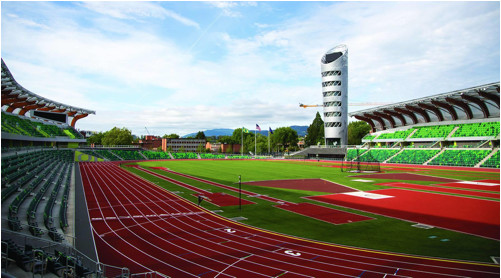
“I am very nervous and excited to compete at the new Hayward,” said Taylor, the four-time world and two-time Olympic triple jump champion. “I had the previous stadium record and had lifelong memories made in front of the grandstands. This is a glorious new beginning but also has that special sense of the unknown.
“This will be a very serious competition for us,” he added, “to have an idea of exactly where we are and what areas we need to focus on moving forward.”
While Taylor has fond memories, world 800m champion Brazier is looking to make up for the disappointment he felt when he last raced at the iconic venue five years ago.
“I’m really excited to race there,” said the 24-year-old, who this time steps up to compete over 1500m. “The last time I raced there I ran pretty bad, I think it was the Olympic Trials in 2016, so I’d like to get the monkey off my back and finally start racing good again in Eugene.
“We’re going to see where we’re at this weekend and that’s part of the reason why we’re doing the 1500m instead of 800m.”
Rogers – star of the track and tower
For Rogers, it's a sense of ‘being home’.
“It is a huge weekend, especially to be running the 800m at Eugene,” said the world 800m silver medallist, who won multiple NCAA titles while racing for the University of Oregon. “I’m just looking forward to kicking it (her 800m season) off and seeing where all of this hard work in practise will lead to.”
Rogers is one of five icons – along with legendary coach Bill Bowerman, Steve Prefontaine, Ashton Eaton and Otis Davis – pictured on the Tower at Hayward Field and on whether there will be any extra pressure to perform, the 24-year-old said: “Just to be able to run the 800m at the ribbon-cutting meet, I did express (to her coach, Pete Julian) ‘you want me to do my first 800m in Eugene at the new stadium?!’ Of course, I was factoring in some of that pressure, but he was very reassuring to understand that the focus is about June and of course later on, God willing, the Olympics.
“It’s more to see where we are and get some races under our belt. That helped a lot to ease some of those outside thoughts in my head in regards to factoring in the pressure of running at the stadium.”
As well as it being the ‘ribbon-cutting’ professional competition at the reimagined Hayward Field – which will host next year’s World Athletics Championships Oregon22 – the event also kicks off this year’s Continental Tour Gold-standard series of meetings. The aim of the Tour is to offer a coherent global series of the best international one-day meetings outside of the Wanda Diamond League.
“I’m excited about the fact that we are getting some World Athletics type of races in,” said Rogers. “I feel like we are still kind of holding on to the slowness of last year, with things not being open, but now people are feeling like vaccinations are a little bit more allowing of us getting outside and being able to do things. And so now that we are able to focus on getting some good competition and more races in, I think it will help get more of that type of competitive experience that we have when it comes to the Olympics, because this is really necessary.
"I feel like as we get into championship season, since it is in almost two months, it’s super necessary and the time window to be able to get those type of races in is very short. So the fact that they are trying to implement this World Athletics Continental Tour will help get those Diamond League type of races and experiences in, instead of just having to have them straight at the Olympics.”
Following the Continental Tour Gold season opener in Eugene, the series will move on to California, Tokyo, Ostrava and Boston in May before meetings in Hengelo, Turku, Bydgoszcz and Szekesfehervar ahead of the Olympic Games in Tokyo.
(04/24/2021) ⚡AMPby Jess Whittington for World Athletics
With fewer than 100 days until the Olympics, Canadian athletes are running out of time to qualify for Tokyo.
The end of the qualification period is even closer, and Olympic hopefuls in the marathon only have until May 31 to book their tickets to the Games, which begin just under two months later on July 23. With only two spots officially taken on the Canadian Olympic marathon team, four remain up for grabs, but with racing opportunities becoming more and more scarce, it looks like the team headed to Tokyo could be set. Here’s how the Canadian squad looks right now, plus other athletes on the outside looking in.
Trevor Hofbauer and Dayna Pidhoresky are the only two Canadian marathoners who have been able to breathe easily in the past 18 months, after they both won at the Canadian Olympic Marathon Trials in Toronto in October 2019. Hofbauer won the men’s race in the second-fastest time in Canadian history, posting a massive PB of 2:09:51. His run, which was well under the Olympic standard of 2:11:30, locked him in as the first member of the Canadian team headed to Tokyo.
Not long after Hofbauer crossed the finish line, Pidhoresky won her spot alongside him on the Canadian team. Like Hofbauer, she also ran a huge PB, crossing the line ahead of the Olympic standard of 2:29:30 and breaking the tape in 2:29:03. While some athletes have put themselves in great positions to be named to the Olympic team, Pidhoresky and Hofbauer are the only two who know with 100 per cent certainty that they will be in Tokyo this summer.
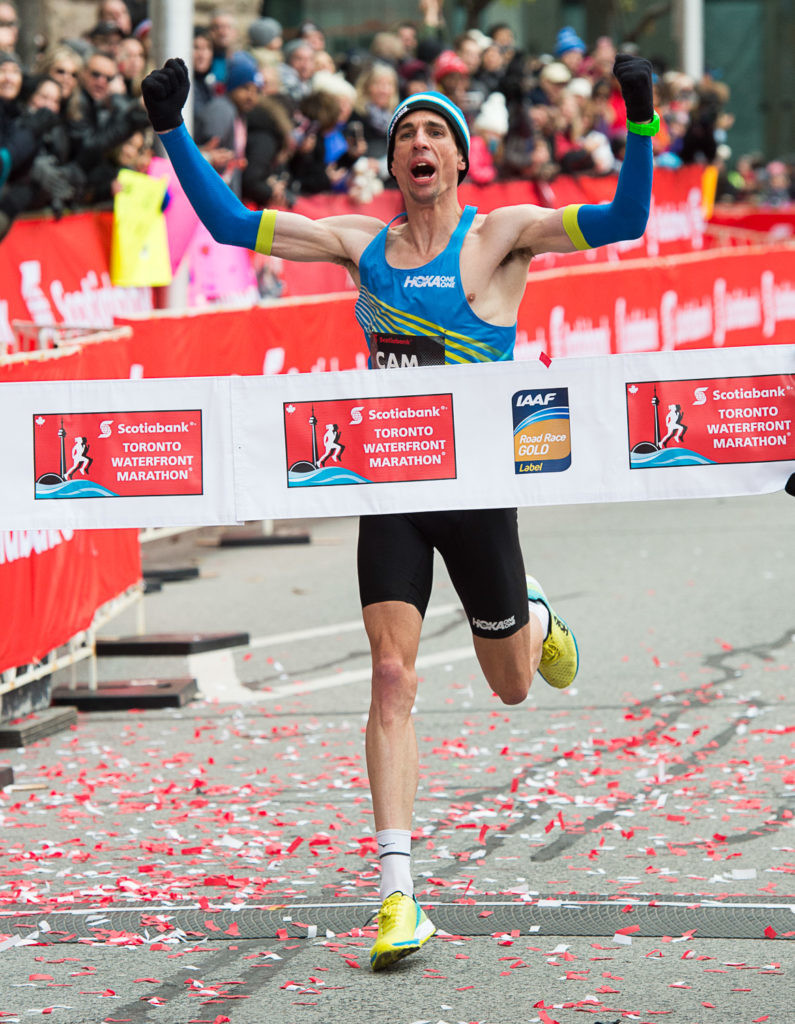
Hit standard
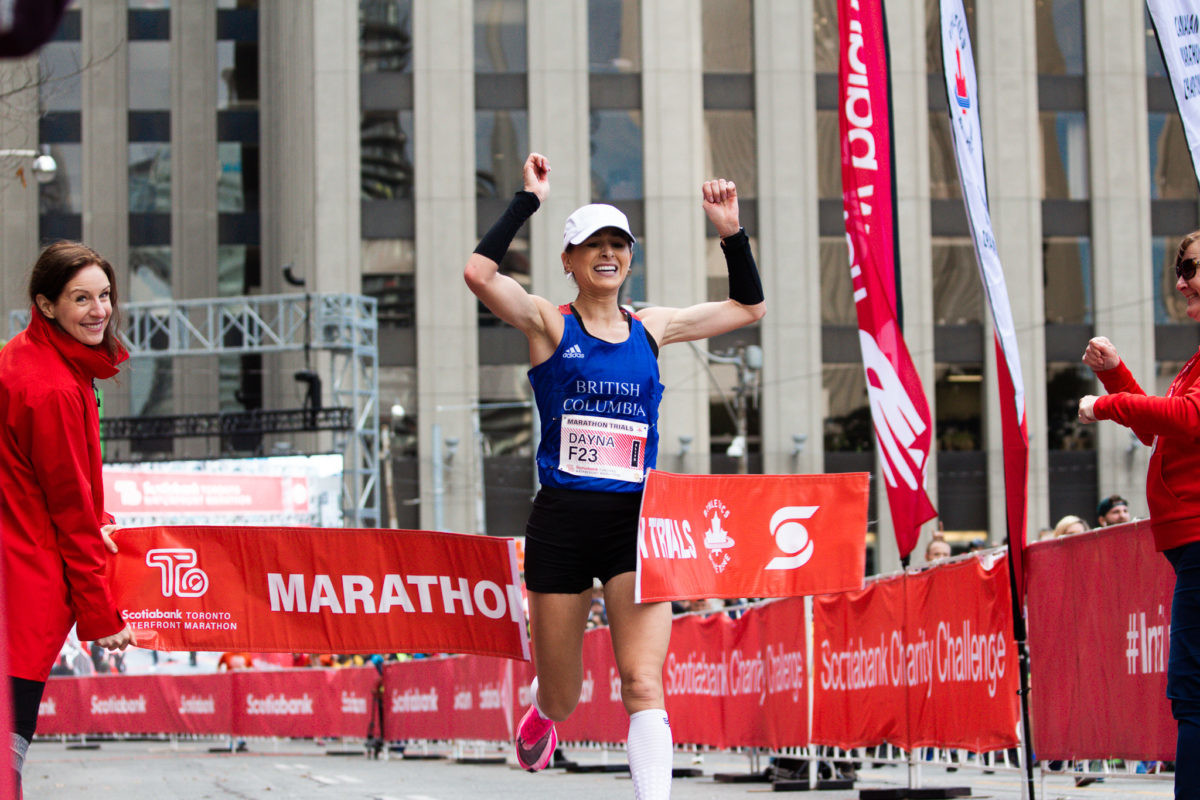
Rachel Cliff was the first Canadian to hit standard in the qualifying period after she broke the Canadian marathon record with a 2:26:56 run in Japan in March 2019. This was more than a minute quicker than the previous national record of 2:28:00 (set by Lanni Marchant in 2013), and at the time, it looked like it was more than enough to guarantee Cliff’s spot on the Canadian Olympic team.
Then Malindi Elmore shattered the national best once more, lowering it to a remarkable time of 2:24:50 at the Houston Marathon in January 2020. This was an amazing and unexpected result from Elmore, and it immediately shot her to the top of the list of eligible runners to send to Tokyo. Even so, Cliff’s 2:26:56 result still looked like it would get her to the Games, but then Natasha Wodak ran an incredible 2:26:19 at The Marathon Project in Arizona in December. The run was Wodak’s first crack at the marathon since her debut in 2013, and it suddenly put her in the third and final position for the Canadian Olympic marathon team.
On the men’s side, matters are much simpler, as only two runners (other than Hofbauer) have hit Olympic standard. Tristan Woodfine was the first to do so, running a PB of 2:10:51 at the elite-only London Marathon in October. A couple of months later, Ben Preisner ran his official marathon debut at The Marathon Project, where he recorded a 2:10:17 finish, which is the fourth-fastest time in Canadian history. Unless someone else runs Olympic standard in the next month, Woodfine and Preisner will join Hofbauer in Tokyo.
Outside looking in
Despite running one of the best marathons in Canadian history, Cliff is now the third-best option to fill one of the spots for the Summer Games. Also in the conversation is Lyndsay Tessier, who qualified for the Games with her top-10 finish at the 2019 World Athletics Championships in Doha, Qatar. In a brutally hot race held in the middle of the night in Doha, Tessier battled for 42K, sticking at the back of the pack for most of the run. While many of her competitors that night dropped out due to the heat, Tessier stuck with it, eventually passing much of the field and climbing to ninth place.
Like Cliff, though, Tessier’s result will be measured against those of Elmore and Wodak. Of course, it’s up to Athletics Canada to pick the team, but based on their individual times, it looks like Elmore and Wodak will be the two women who will join Pidhoresky on the start line in Tokyo.
In the men’s race to Tokyo, the next runners on the list are Cam Levins and Rory Linkletter. Levins is the Canadian marathon record holder, but he ran his PB of 2:09:25 in 2018, several months before the Olympic qualification window opened. Since then, he has missed Olympic standard on three occasions, running 2:15:01 at the Canadian Olympic Trials, registering a DNF at the 2020 London Marathon and posting a 2:12:15 finish at The Marathon Project. Linkletter has only run two marathons, with his second coming at The Marathon Project as well. There, he ran close to a four-minute PB, but he wasn’t fast enough to hit standard, crossing the line in 2:12:54.
Time is running out for any athletes hoping to nab a spot on the Canadian marathon team headed to Tokyo, and anyone who’s on the outside looking in better take a chance soon, although at this point, finding an official race could be the most difficult part of the entire process.
(04/23/2021) ⚡AMPby Ben Snider-McGrath
Tokyo 2020 Olympic Games
Fifty-six years after having organized the Olympic Games, the Japanese capital will be hosting a Summer edition for the second time, originally scheduled from July 24 to August 9, 2020, the games were postponed due to coronavirus outbreak, the postponed Tokyo Olympics will be held from July 23 to August 8 in 2021, according to the International Olympic Committee decision. ...
more...World Champs timetable for 2022 season
Athletes will find tackling two events more straightforward with a spectator-friendly schedule that attempts to tick many boxes
Doubling up at the World Championships will be easier next year after the organisers in Oregon released their competition timetable for the 2022 event at Hayward Field.
The 100m and 200m, 200m and 400m, 800m and 1500m, 1500m and 5000m, 5000m and 10,000m will all now be possible without athletes having to contest more than one discipline on any given day. Other possible doubles include long jump and triple jump, plus the 20km and 35km race walks – although the race walks fraternity is unhappy the 50km distance has gone.

The 10-day schedule from July 15-24 finishes four days before the Commonwealth Games in Birmingham begin, whereas the European Championships in Munich start on August 15.

Medals will be decided in all evening sessions and some morning sessions too. Hammer throwers and 10,000m runners, for example, will have to start their warm-up early in the day for their finals.
The first day also ends with a 4x400m mixed relay final but there are heats on the same day a few hours earlier.
Another break with tradition will see 1500m finals during the first half of the championships. The blue riband 100m finals, however, are still on the first weekend.
There are no morning sessions from July 19-22, while July 18 looks like a big day for British interest with the climax of the heptathlon, Laura Muir potentially in the women’s 1500m and Dina Asher-Smith opening her 200m campaign. For Katarina Johnson-Thompson, a heptathlon and high jump or long jump double is also possible.
The final individual event of the entire championships will be the decathlon 1500m, which organisers say is in tribute to Oregon’s home-grown Olympic and world decathlon champion Ashton Eaton.
For the first time, the championships will end with the women’s 4x400m, honouring a pledge to greater gender equality that World Athletics made on International Women’s Day last month.
“The design of our world championships timetable is both an art and a science, with a lot of moving parts to fit together,’’ World Athletics president Sebastian Coe said.
“We’ve strived to create every opportunity for our athletes to shine, in the stadium, on the road and on screens around the world, and we’re looking forward to watching them do that in Oregon, as our flagship event is held in the United States for the first time.
“You won’t want to miss it,” added Coe, who frequently tackled the 800m and 1500m double during his competitive days.
(04/23/2021) ⚡AMPby Athletics Weekly
Eric Avila and Rachel Schneider both won the first national titles of their careers on Wednesday
The U.S. road mile championships took place in Des Moines, Iowa, on Wednesday evening, and the winners in both the men’s and women’s races won the first national titles of their careers.
Eric Avila took the men’s crown, surging to a 3:58.96 finish, and Rachel Schneider won the women’s race in 4:30.26. The races kicked off the Drake Relays, which will run until Saturday.
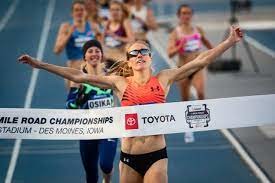
Avila’s first win
Before Wednesday, Avila’s best result in a national championship race came in 2019 at the USATF Outdoor Track and Field Championships. This event was also in Des Moines at Drake University’s stadium, where the mile races finished on Wednesday (the races started on the Drake campus before entering the stadium for the final 600m). Avila ran to a fifth-place finish in the 1,500m in 2019, running 3:45.93.
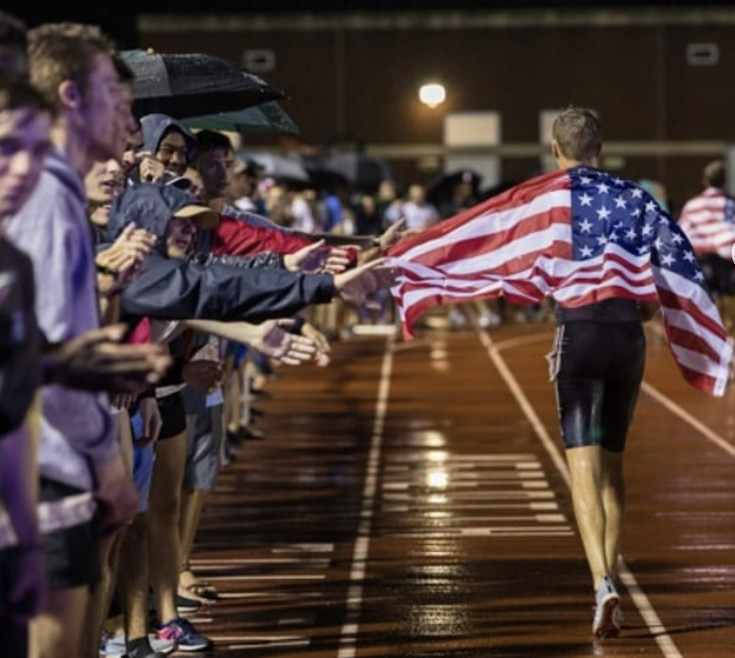
Now, at the age of 31, Avila has his first national title, and he won it in impressive fashion. The men’s race started with a quick opening split of 54.69 from Jeff Thies, who got out to an early two-second lead after the first lap. Thies remained at the front of the race for the next two laps, and although he extended his lead to five seconds after the 800m mark, he faded significantly in the latter half of the race, and his lead was cut to two and a half seconds with one lap to go. Thies closed the race with a 66-second 400m, opening the door for Avila and the rest of the field.
Avila had the fastest last lap of the race, closing in 55.72 seconds to just edge out Craig Engels for the win. Engels finished in second in 3:59.24, and Clayton Murphy rounded out the podium in 3:59.52. Despite his early-race heroics, Thies faded to 10th place.
Schneider’s national crown
Wednesday’s race was also the first USATF championship of Schneider’s career, but she had gotten closer than Avila did to a national title in years past. In 2015, she placed fifth in the 1,500m at the national championships in Oregon, and in 2018, again in Des Moines, she finished fourth in the 1,500m and second in the 5,000m. A year later, she returned to Drake University to race the 5,000m once more, finishing in fourth and earning a spot on the American world championship team. She competed in Doha, Qatar, at the world championships, where she finished in eighth in her heat.
Schneider has had a good career, but a national crown had always eluded her. That changed on Wednesday when she ran an impressive and dominant race in the mile. After the first lap, she was in second place, but only one second behind early leader Anna Shields. By the halfway mark, Schneider had grabbed the lead, and she didn’t let it go, opening up a one-second gap between her and eventual second-place finisher Shannon Osika. Schneider crossed the line in 4:30.26, with Osika just behind her and Heather Kampf in third.
(04/23/2021) ⚡AMPby Ben Snider-McGrath
Five things to consider when shopping for new running gear
It’s the question every runner asks, but what is the best solution for ensuring a great run every time? Here are five things to consider when shopping for new running gear.
Storage
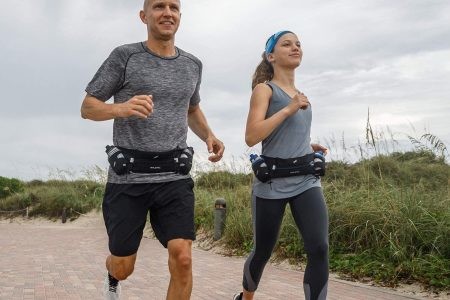
Running armbands are often the least expensive option, whilst offering a practical solution for running with your phone, armbands can’t offer much more than phone and key storage. Running belts often allow runners to carry slightly more – perhaps gels, keys and your phone – but running with even these few essentials around your waist can affect your technique.
Running Vests not only allow you to bring your essentials on your run but won’t affect how you move – providing your vest is a good fit to your body. The V1 and VR vests from Freetrain are equipped with a clever little divider inside the phone pouch where you can store cards & cash. The vests also have a Velcro pocket on the right-hand side for keys and a larger zip pocket on the left for things like energy gels, bars, or even an inhaler.
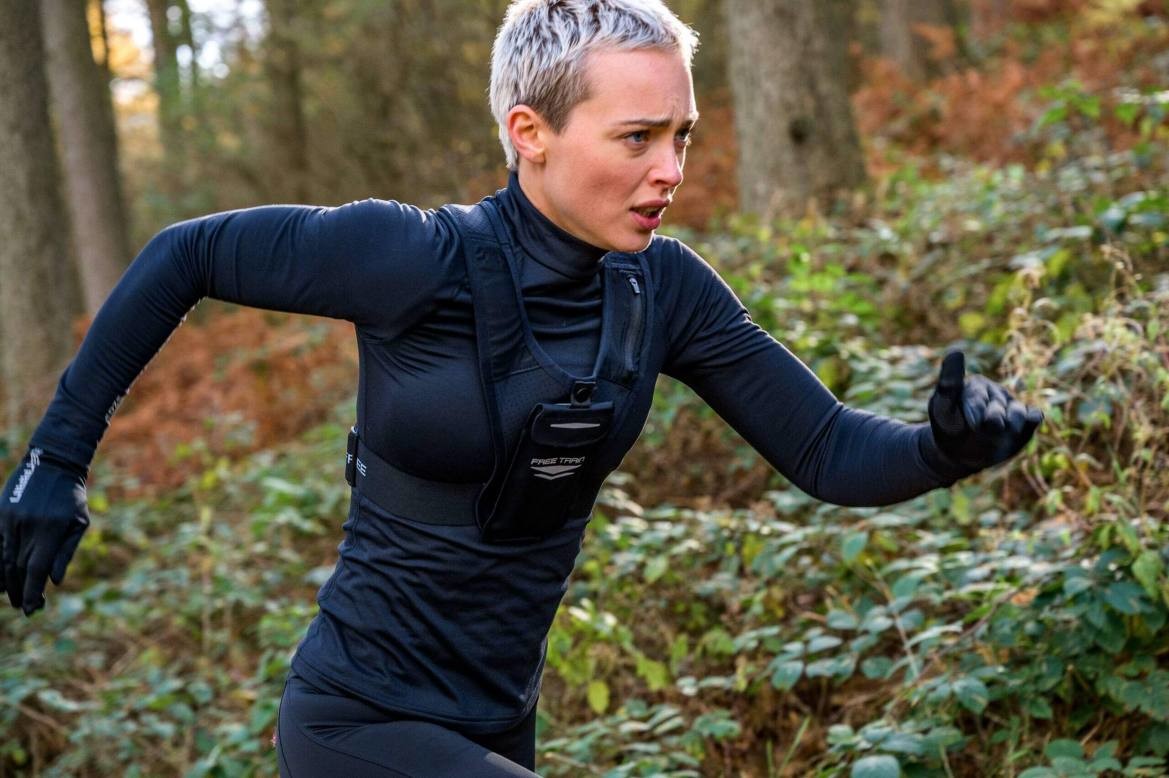
Weight Distribution
Despite their functionality and lower cost, arm bands and waist belts don’t offer even weight distribution. Running with your phone on one arm or holding items around your waist can change your posture and gait and this uneven distribution of weight is proven to lead to injuries.
Running vests allow the wearer to move freely, distributing the weight of their phone and essentials across the body to avoid injury. Freetrain vest pockets are positioned to ensure comfort and technique aren’t compromised whilst you’re in the zone.
Easy Access
Most belts don’t offer visibility or access whilst moving. Arm bands provide basic visibility and access via clear plastic screen protectors, although it can be difficult to check stats or change a song mid-run due to their position on the body.
Freetrain vests are uniquely designed to allow you to check and use your phone on the go. Unlike any other model on the market, the vests feature a centrally located phone pouch which is designed to give seamless access to change song, check maps or even answer calls & eliminate bouncing.
Higher visibility
Whilst some armbands and running belts feature a reflective strip or material, due to their smaller size and location on the body, this can easily be missed by fast-moving traffic. The benefit of reflective running vests is that they offer visibility on a larger surface area – making you more visible on darker runs.
The Freetrain V1 and VR vests both feature reflective print on the front back and sides. The VR vest offers enhanced visibility as it’s from ultra-reflective material that lights up the dark.
Anti-Slip
Armbands and waist belts are often criticized for slipping or riding up during runs. This can hinder performance and make for an uncomfortable run. Running vests fit over the body and are secure – with no need to fix position during a run.
Freetrain vests are designed with lightweight materials that won’t weigh you down. The adjustable waistband allows you to find the perfect fit and the front phone pocket won’t budge, even during the most intensive workout.
The newest innovation in running wear has the answer- the Freetrain V1 and VR running vests are designed to allow you to move freely whilst carrying your phone and essentials. The vests’ balanced weight distribution won’t hinder progress or alter technique and the easy access flip-down phone holder lets you change songs, check progress or respond to messages and calls whilst you’re moving.
(04/23/2021) ⚡AMPby Colorado Runner
Roza Dereje’s dream of bringing marathon glory to Ethiopia
When Roza Dereje broke the tape at the Valencia Marathon in December 2019, smashing the course record in a time of 2:18:30, and becoming the then-eighth fastest marathon runner of all time, she beamed, elatedly.
When she returned home from Valencia, she hosted coaches, Haji Adilo, Kasim Adilo, and Moges Taye, her physiotherapist, Jeroen Deen, and a few others in her inner circle at her home in Sululta as a show of appreciation for their support. Dereje is not one to forget who helps her along each step of the way.
One of the figures in her life that features prominently when she speaks of supporters is her late father, who was an avid running fan. Many women from the countryside in Ethiopia who begin running do so at the behest of their parents, who see the slim rates of success and enormous devotion as a precarious life path. But Dereje’s father, along with her mother and four brothers, encouraged her from the start.
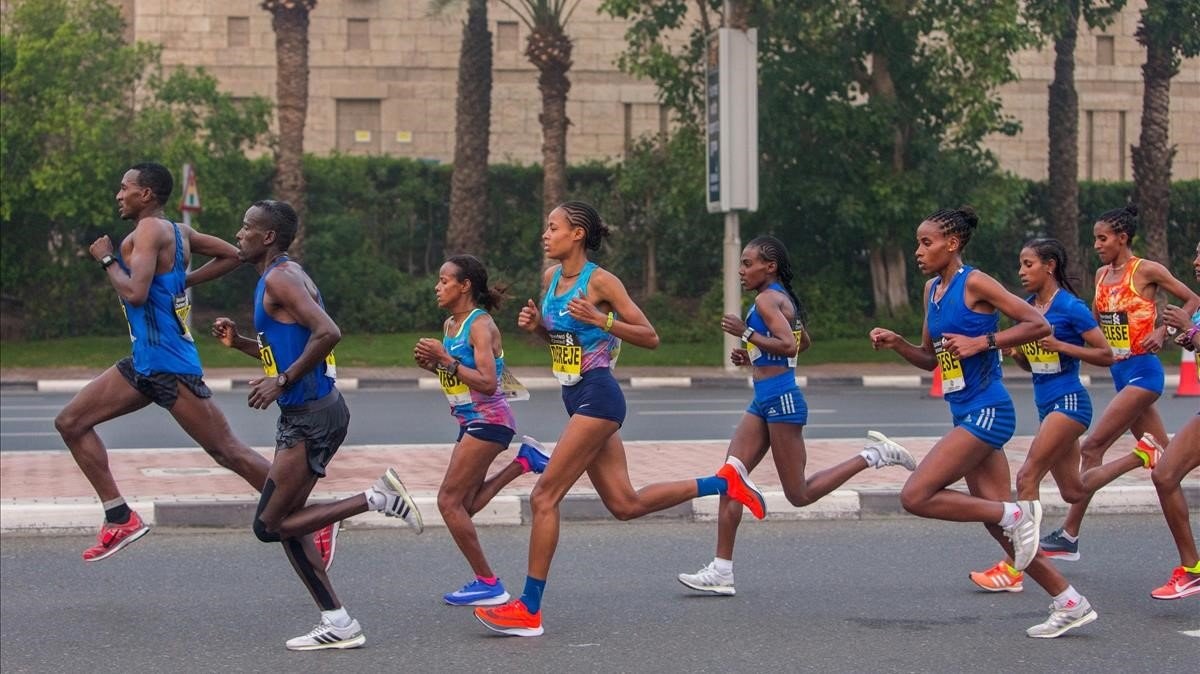
“Before my father died, he would take me to the regional competitions,” recounts Dereje. “My family was always happy and encouraging. They just told me to finish my 10th grade education and continue running as I wanted.”
In her native district of Selale, in the Oromia region of Ethiopia, Dereje took inspiration from Derartu Tulu and Tirunesh Dibaba, whom she would see on television. With the support of her family, and after fulfilling her promise to complete the 10th grade, she moved to Bekoji to train with a project – a type of training group for junior athletes in Ethiopia that usually does not receive government support, unlike the extensive network of funded clubs. There, she focused on the 800m and 1500m.
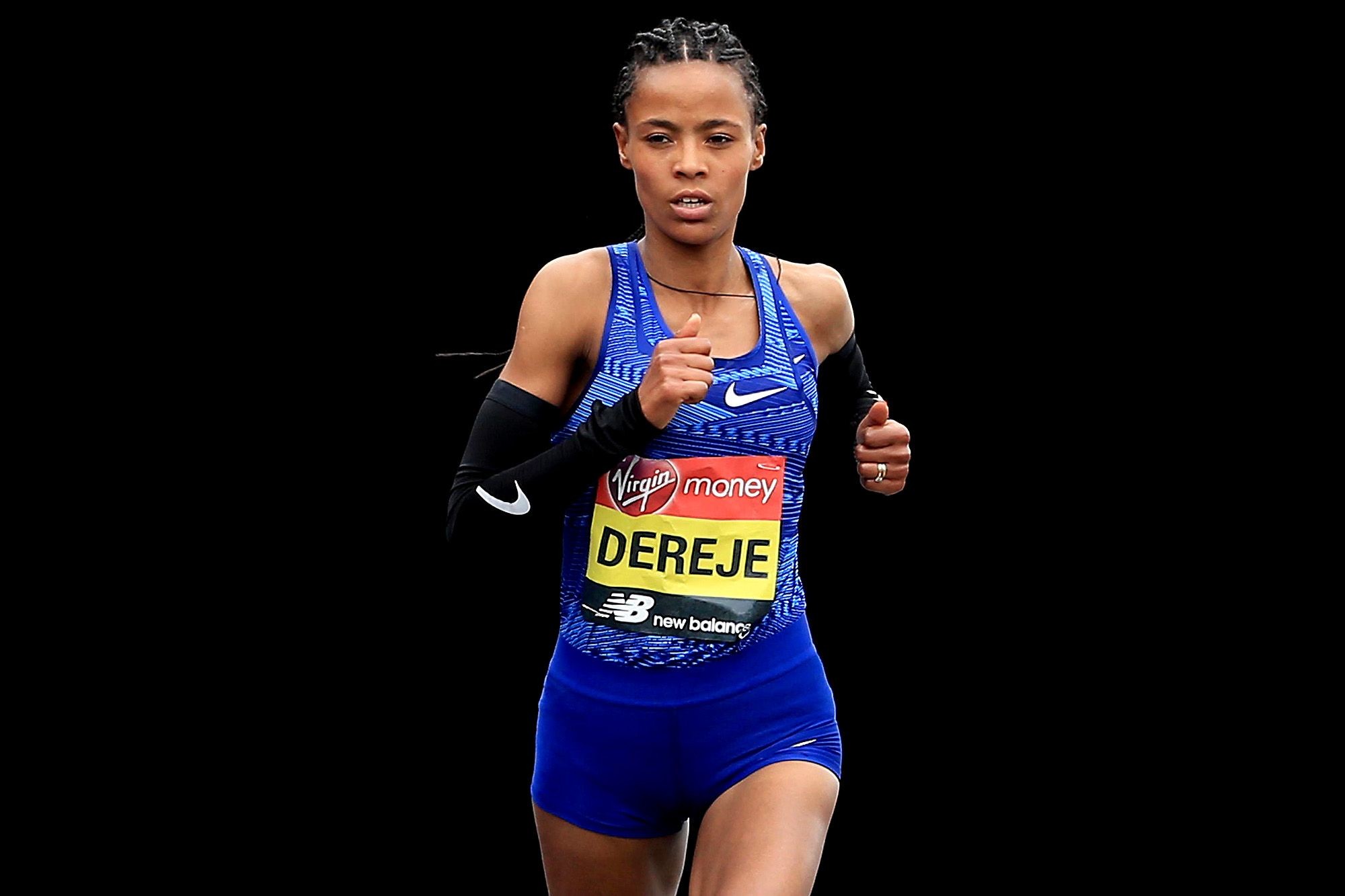
However, Dereje always had interest in eventually running the marathon, and when she won a local half marathon, she caught the eyes of two key figures in her life – her future coach, Haji Adilo, and her future husband, Dereje Abera Ali.
Dereje credits her husband for a lot of her success. Not only did he teach her a lot about training, and take on doing most of the housework – a dramatic gender role reversal in Ethiopia – but he gave her the confidence to succeed in the longer distances.
Her first competition outside of Ethiopia was a marathon in Algeria in 2015 where she finished fourth in 2:34:02. She won the Shanghai Marathon in 2016 and successfully defended her title in 2017. In 2018, an early win at the highly competitive Dubai Marathon in 2:19:17 proved Dereje had what it took to be one of the best ever.
“Roza listens, respects, and trusts in her coaches,” said Adilo, her coach, who has overseen the training of several Olympic and world champions. He thinks she is one of the most talented athletes he has worked with to date. “These are the types of athletes that go far. From the beginning she has improved steadily, year to year, and I think she will become of the best, ever.”
Dereje’s agent, Hussein Makke of Elite Sports Marketing and Management, echoed similar sentiments about Dereje’s character beyond sport. “Roza is a really different and special athlete. She has confidence in both herself and those around her and this reflects in the way she conducts business with her coach and the management so professionally. She’s easy to work with and really one of the best athletes I’ve ever managed.”
In 2019, Dereje finished third at the London Marathon before winning what was her last full marathon in Valencia. She was prepared to race the London Marathon in early 2020, but that race, along with most others, was postponed due to Covid-19. A small set-back led to her sitting out the rescheduled edition of the London Marathon late last year, opting to focus solely on the Tokyo 2021 Olympic Games.
There’s a very common saying in Amharic – kas be kas inculal be egeru yiheal – that translates roughly to, ‘Slowly by slowly, the egg grows legs’. Essentially, it means that this kind of incremental improvement will lead to a sustained success, without any severe fall back. Dereje’s attention to detail, trust in her husband, coaches, and agents, and commitment to her training programme is based on this proverbial advancement.
More than winning any major marathons and breaking course records, representing Ethiopia, and bringing home the gold at the Olympics, drives her steady training.
(04/23/2021) ⚡AMPby World Athletics
Tokyo 2020 Olympic Games
Fifty-six years after having organized the Olympic Games, the Japanese capital will be hosting a Summer edition for the second time, originally scheduled from July 24 to August 9, 2020, the games were postponed due to coronavirus outbreak, the postponed Tokyo Olympics will be held from July 23 to August 8 in 2021, according to the International Olympic Committee decision. ...
more...Performance-enhancing probiotics: A new frontier for running performance?
Do you know the bacteria in your gut can enhance running performance? Or the sports you play when you are a kid impact your bone health as an adult runner? Or your ability to run in the heat depends on how well you hydrate?
At the annual sports nutrition conference hosted in March 2021 by SCAN (the sports nutrition practice group of the Academy of Nutrition & Dietetics; SCANdpg.org), the speakers offered updates on these topics of interest.
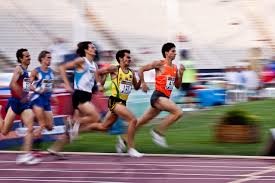
Performance-enhancing probiotics: A new frontier?
Elite runners have endurance, strength, strong minds, and the ability to recover from injuries. Could these positive traits be connected to the kinds of microbes in their guts (their microbiome)? Are the gut-brain and the gut-muscle connections in elite runners comparable to those of non-runners? Could specific gut microbes help non-elite runners run faster?
To discover the impact of the microbiome on exercise performance, FitBiomics, a biotechnology company, is studying the microbiome of top athletes, looking for performance-enhancing microbes. For example, marathon runners (compared to non-runners) have a higher amount of the bacteria Veillonella that efficiently eats lactic acid and reduces inflammation.
Mice fed Veillonella improved 13% in endurance running. What if marathoners consumed Veillonella supplements? Would that help them run longer? Faster? More research is needed, but the information to date seems promising. Stay tuned!
(04/22/2021) ⚡AMPby Colorado Runner
Will There be Local Spectators at the Tokyo Olympics?
With a recent upsurge in the number of covid cases in Japan, and in particular the Tokyo Prefecture, the Tokyo Olympic Organising Committee of the Olympic Games faces a decision on how many domestic spectators will be allowed into Games venues.
It was previously announced that no one from outside of Japan would be allowed into the country as a spectator at the Games.

A decision on local local spectators had been imminent but, with the developing situation, has been put off as long as possible but will likely have to be made in June with the involvement of the International Olympic Committee and the Tokyo metropolitan government.
(04/22/2021) ⚡AMPTokyo 2020 Olympic Games
Fifty-six years after having organized the Olympic Games, the Japanese capital will be hosting a Summer edition for the second time, originally scheduled from July 24 to August 9, 2020, the games were postponed due to coronavirus outbreak, the postponed Tokyo Olympics will be held from July 23 to August 8 in 2021, according to the International Olympic Committee decision. ...
more...

